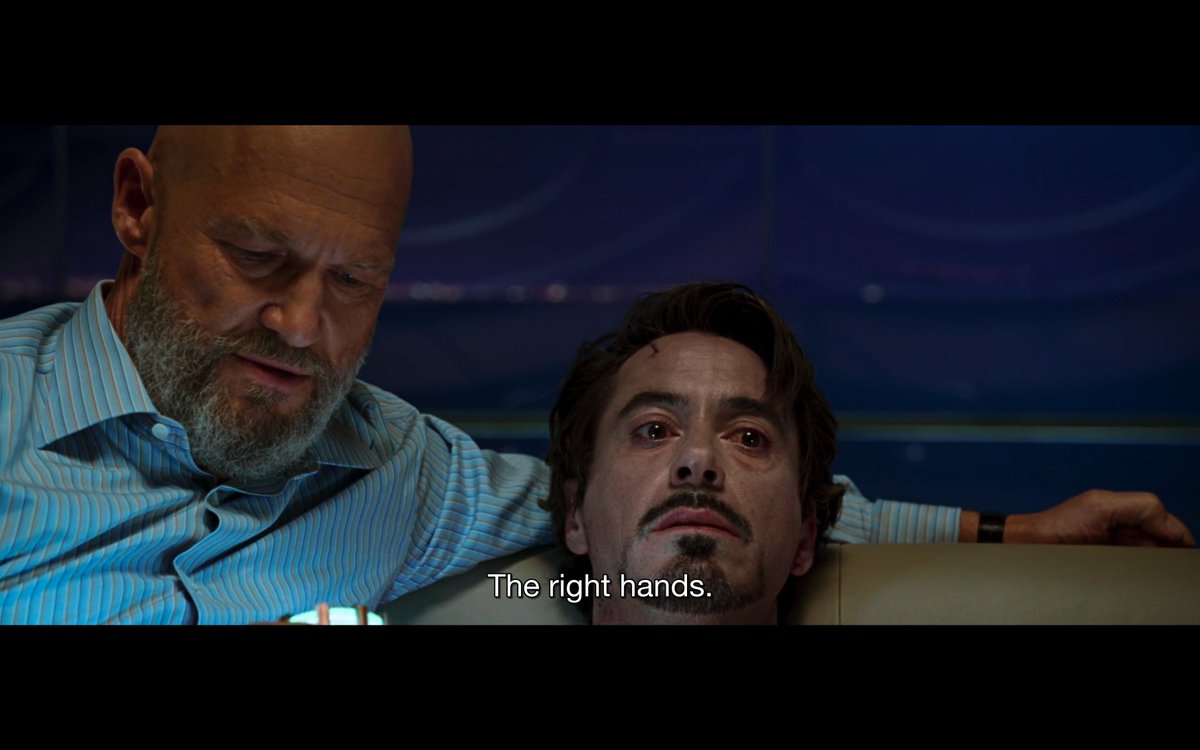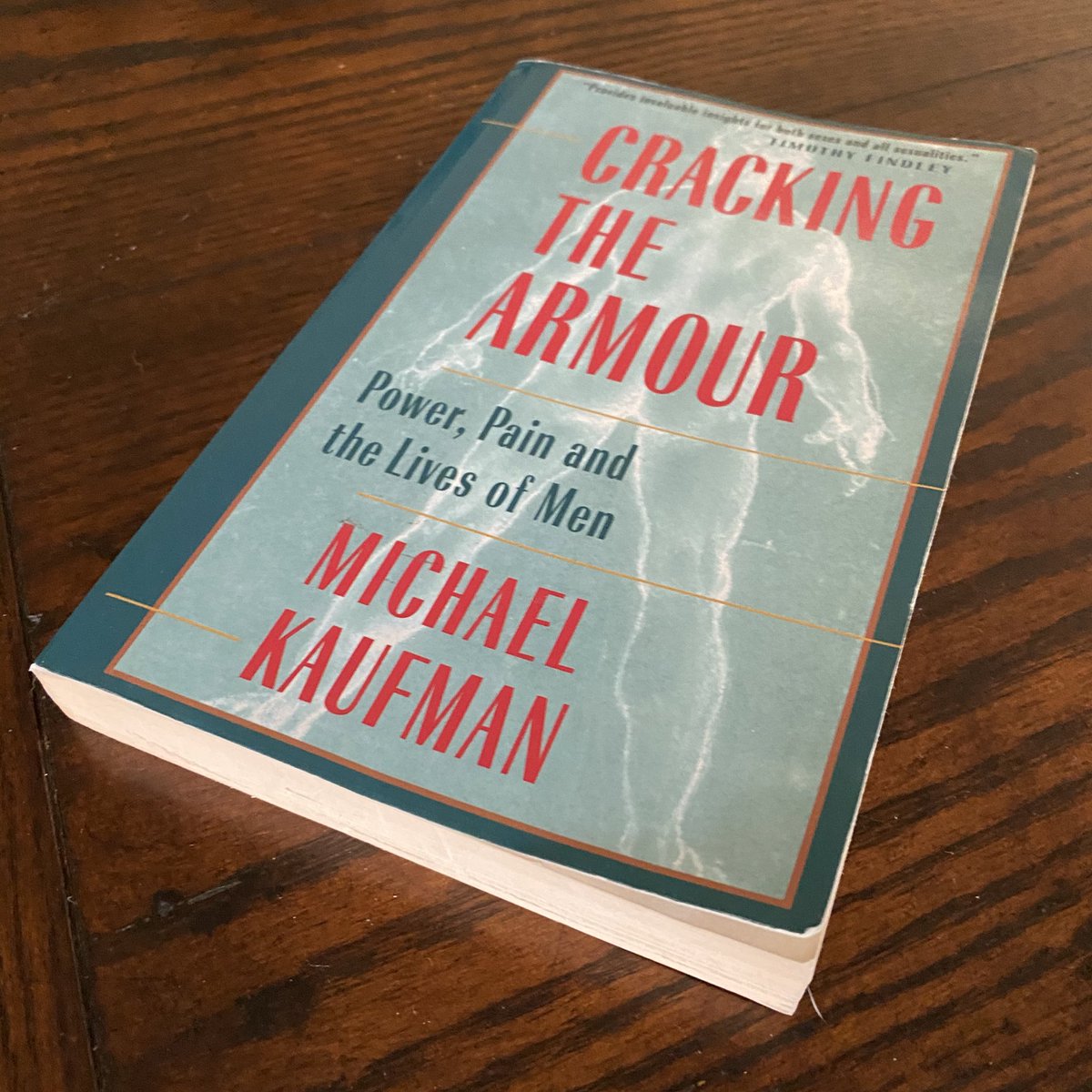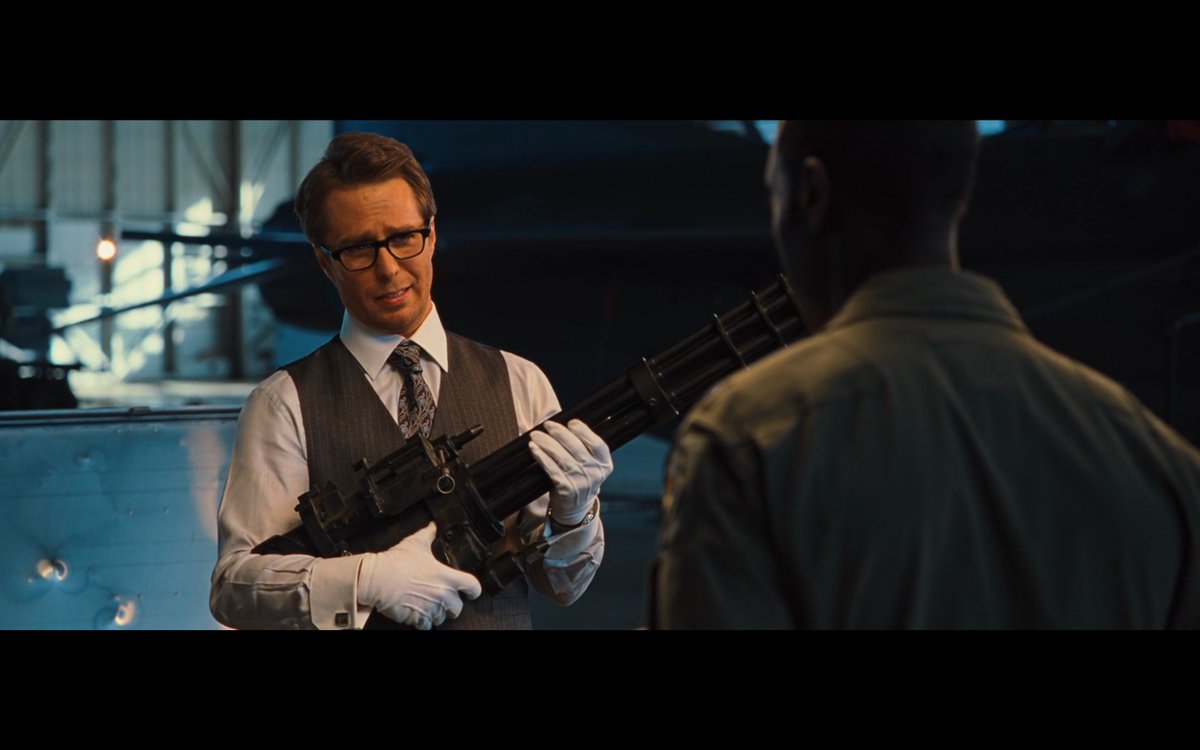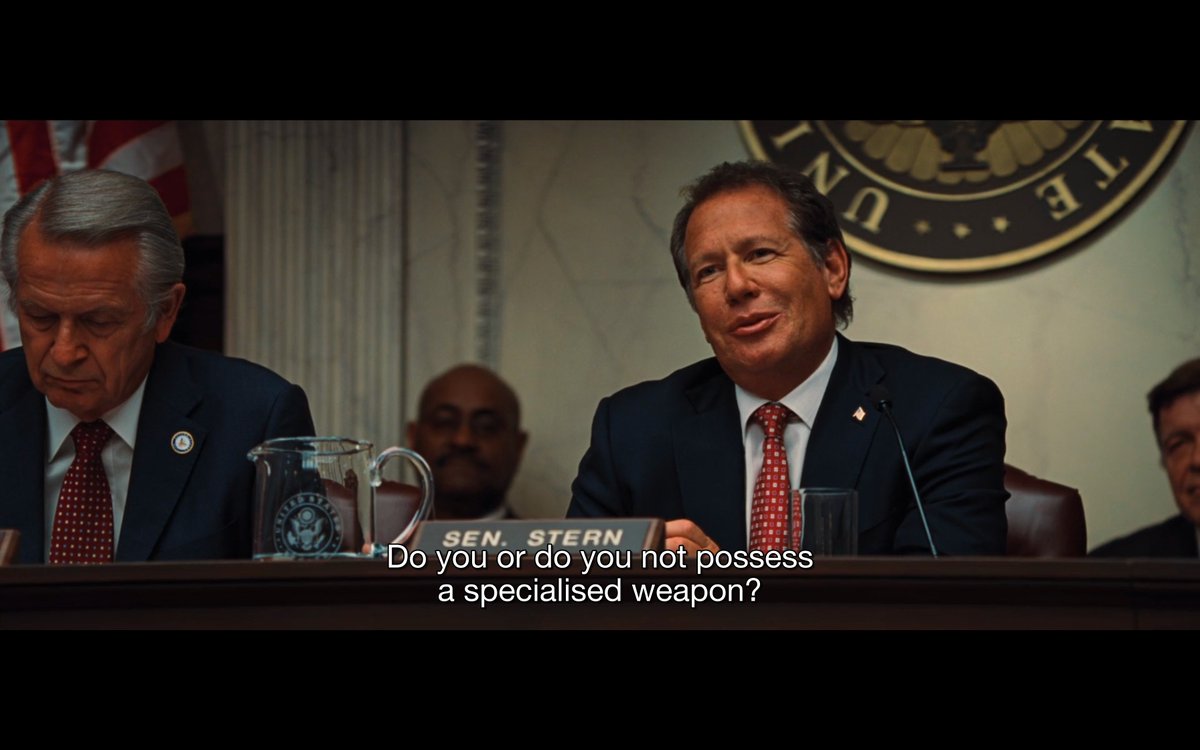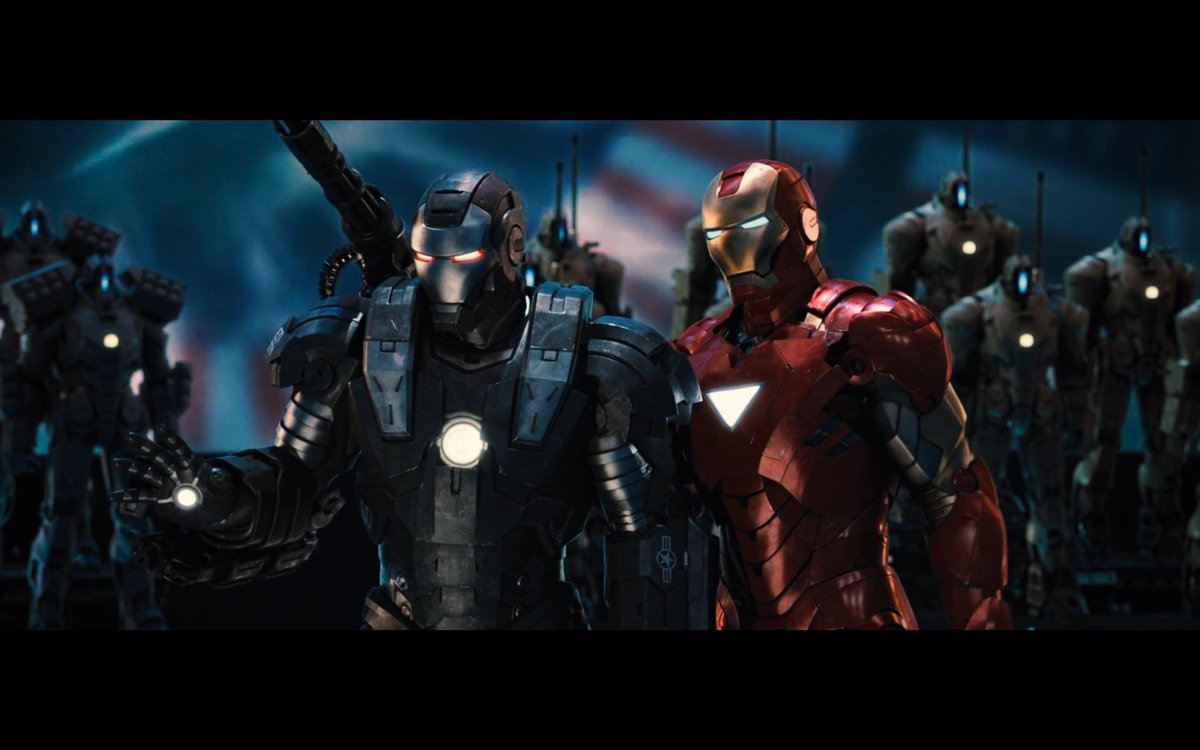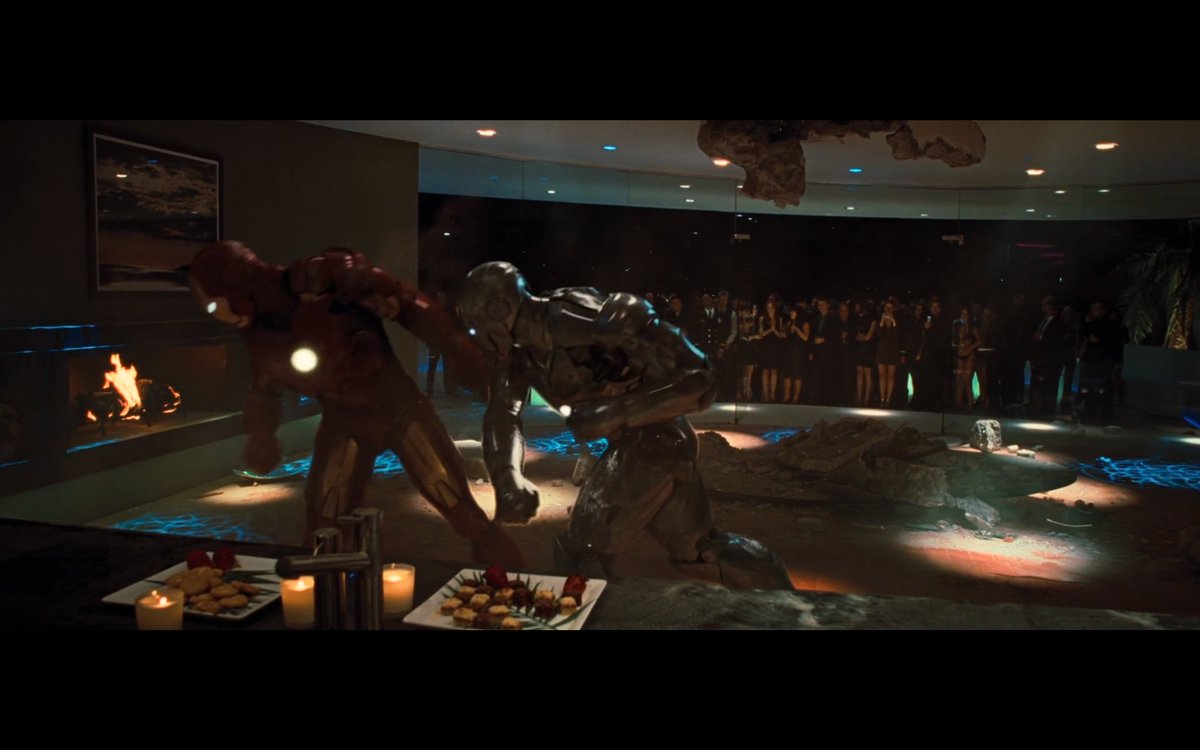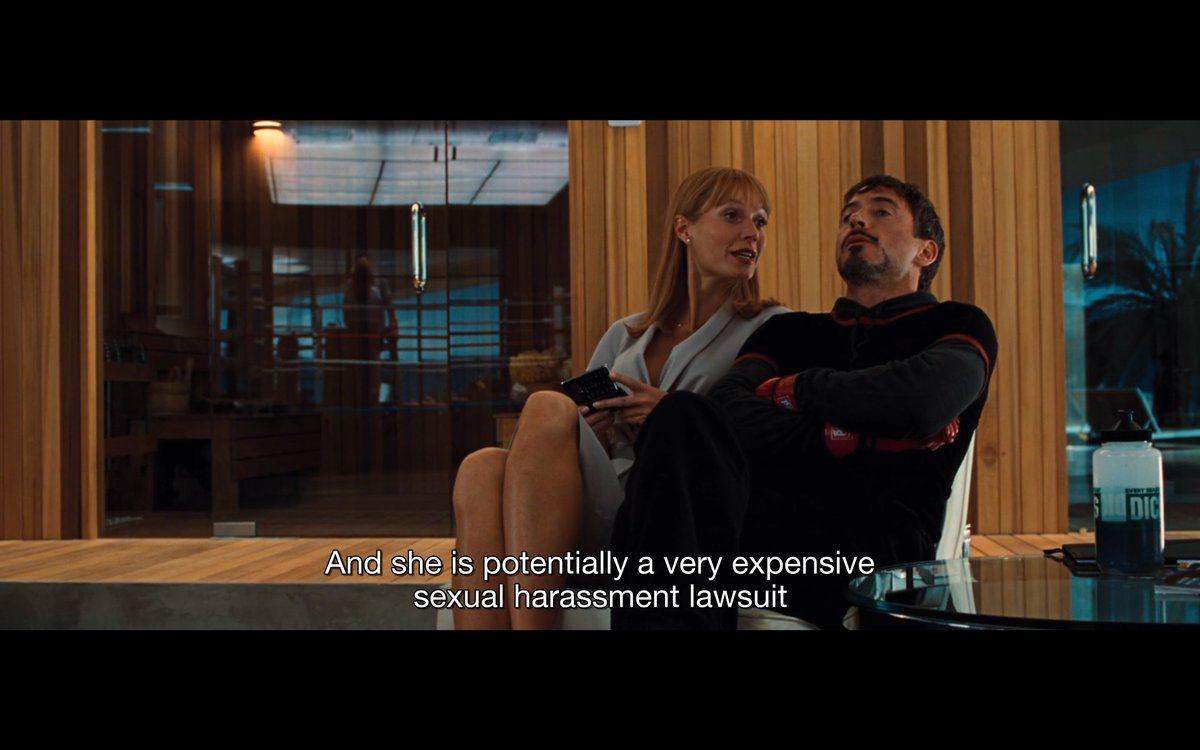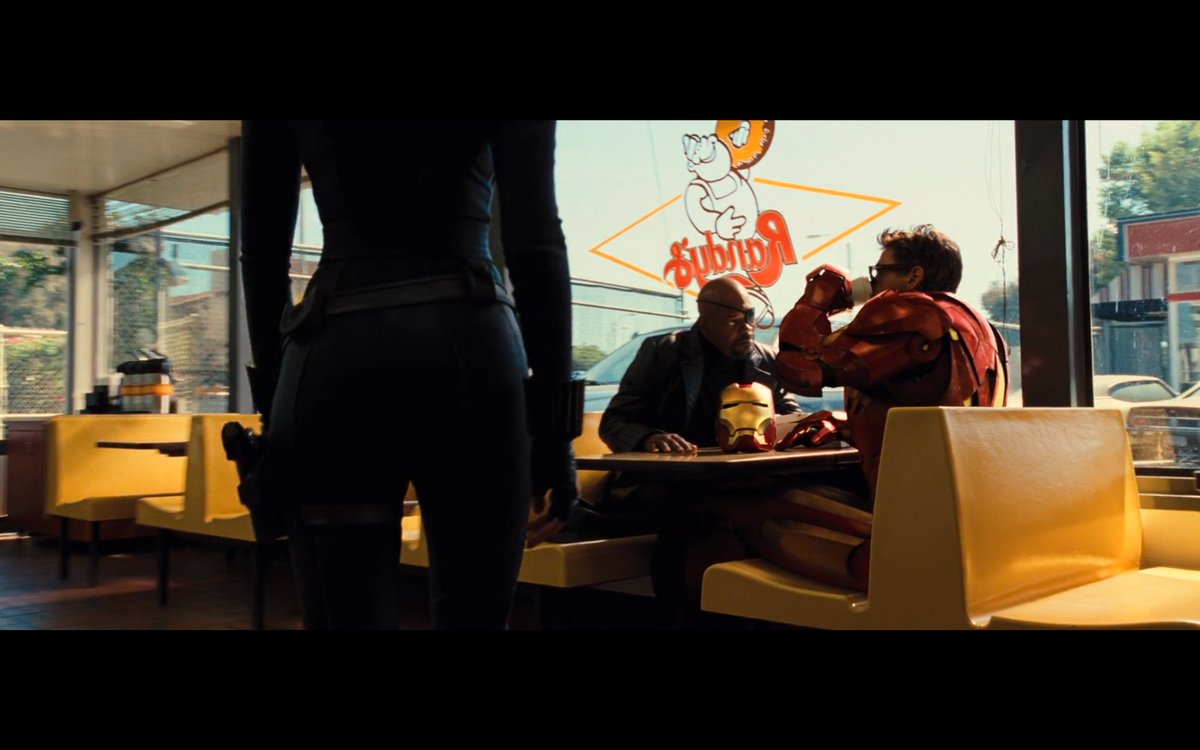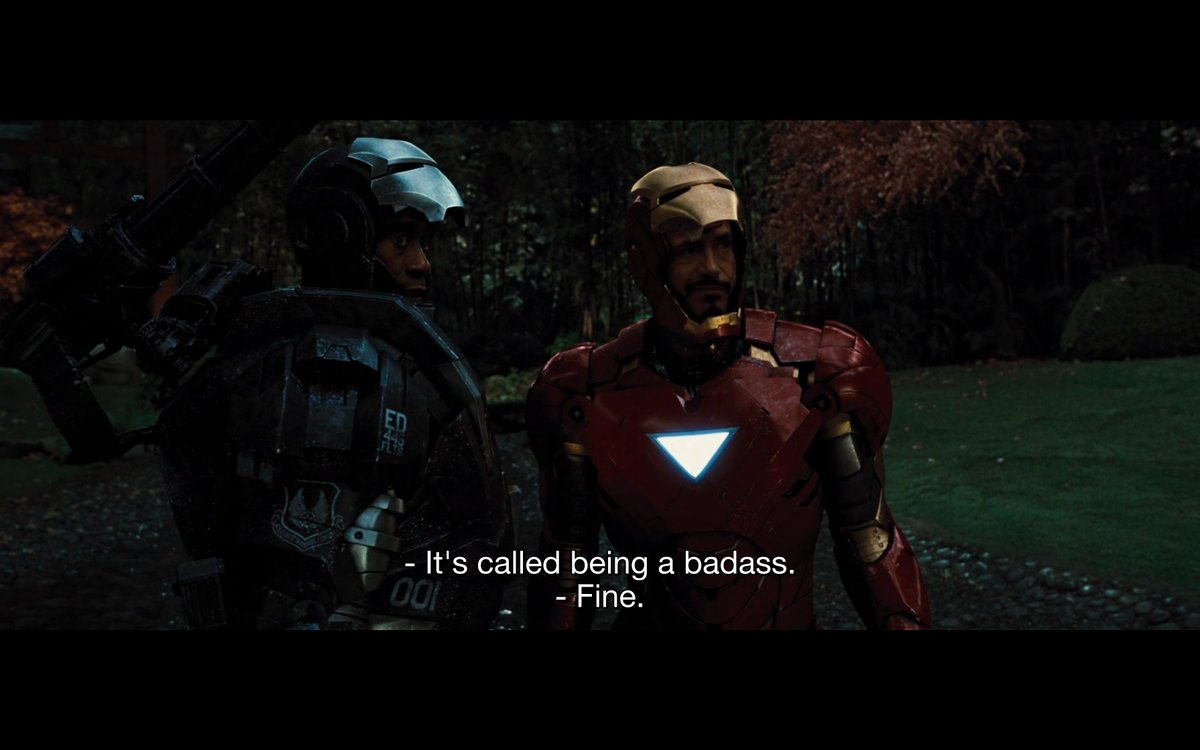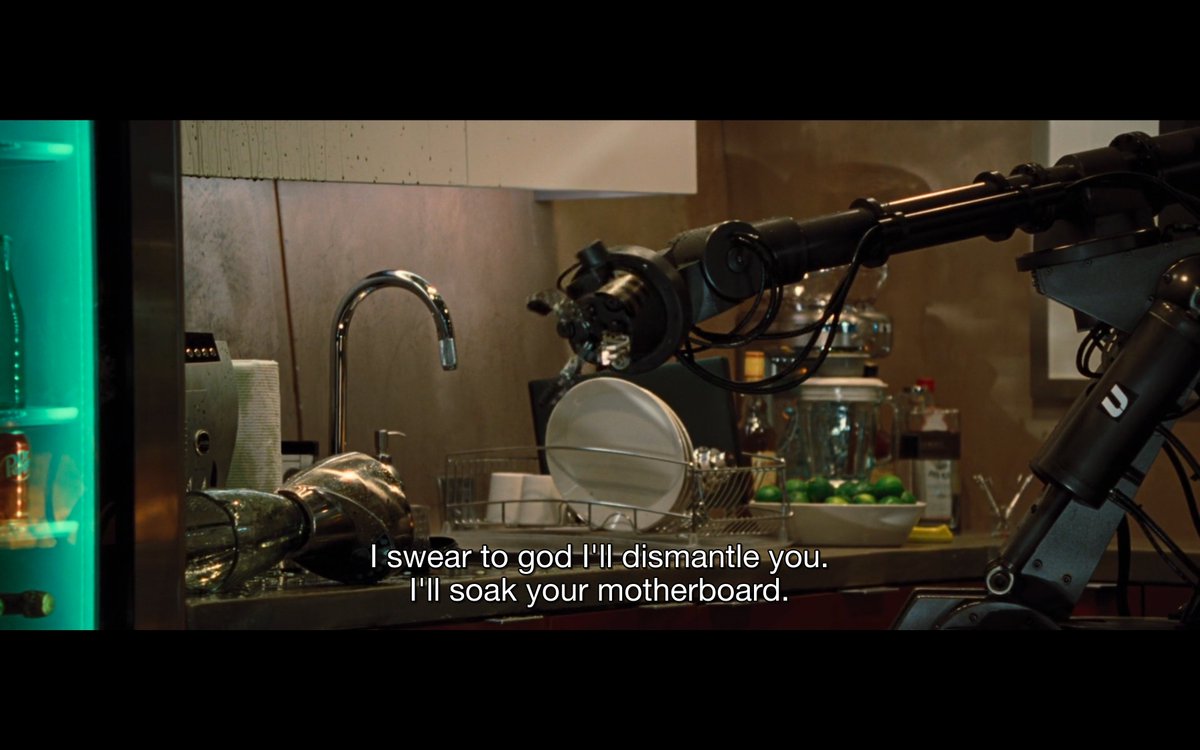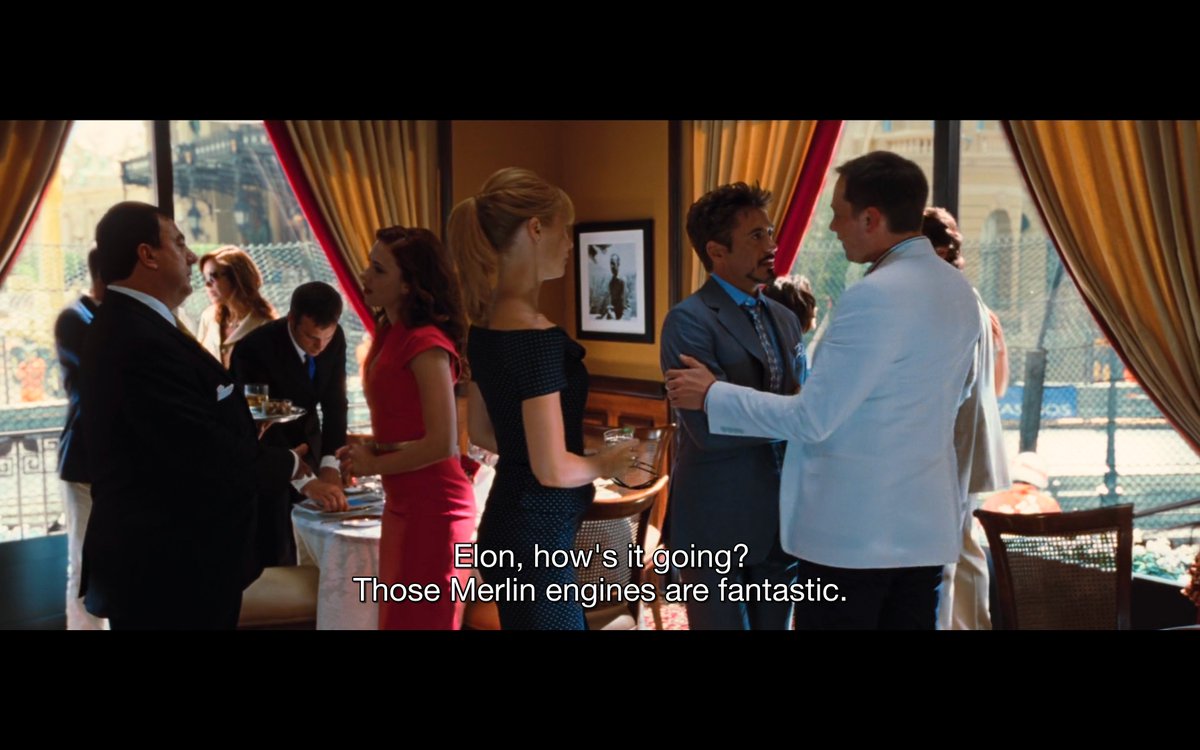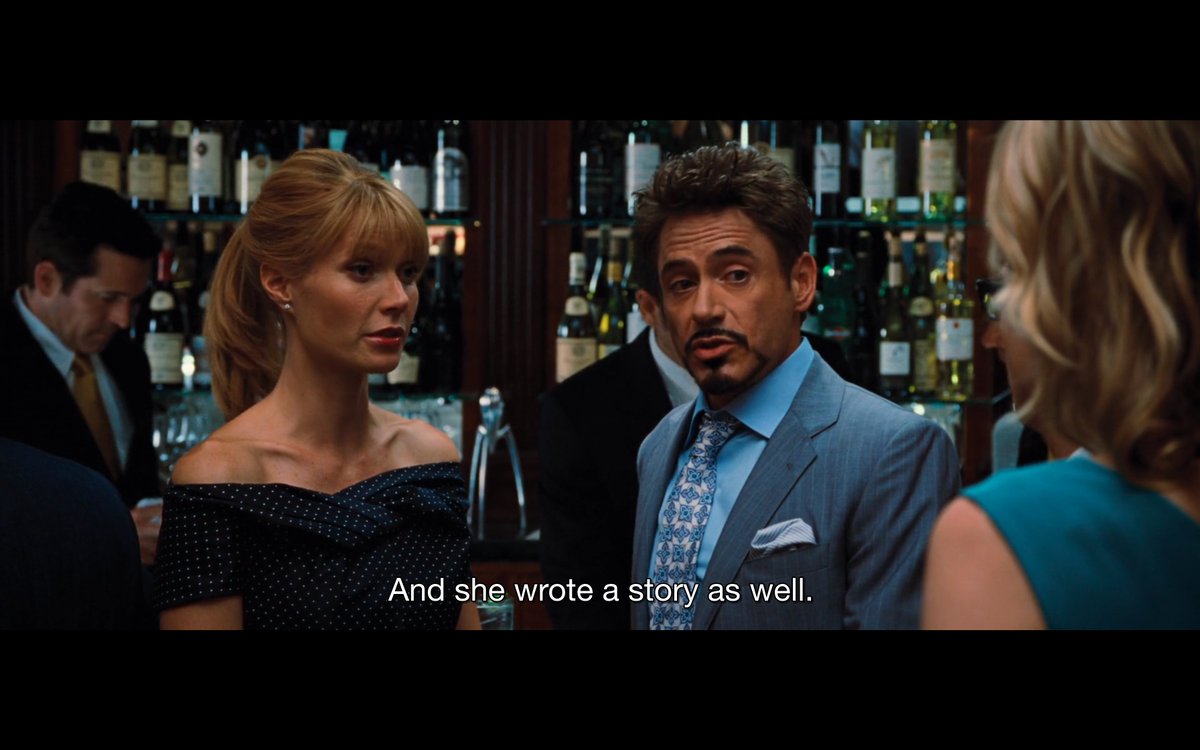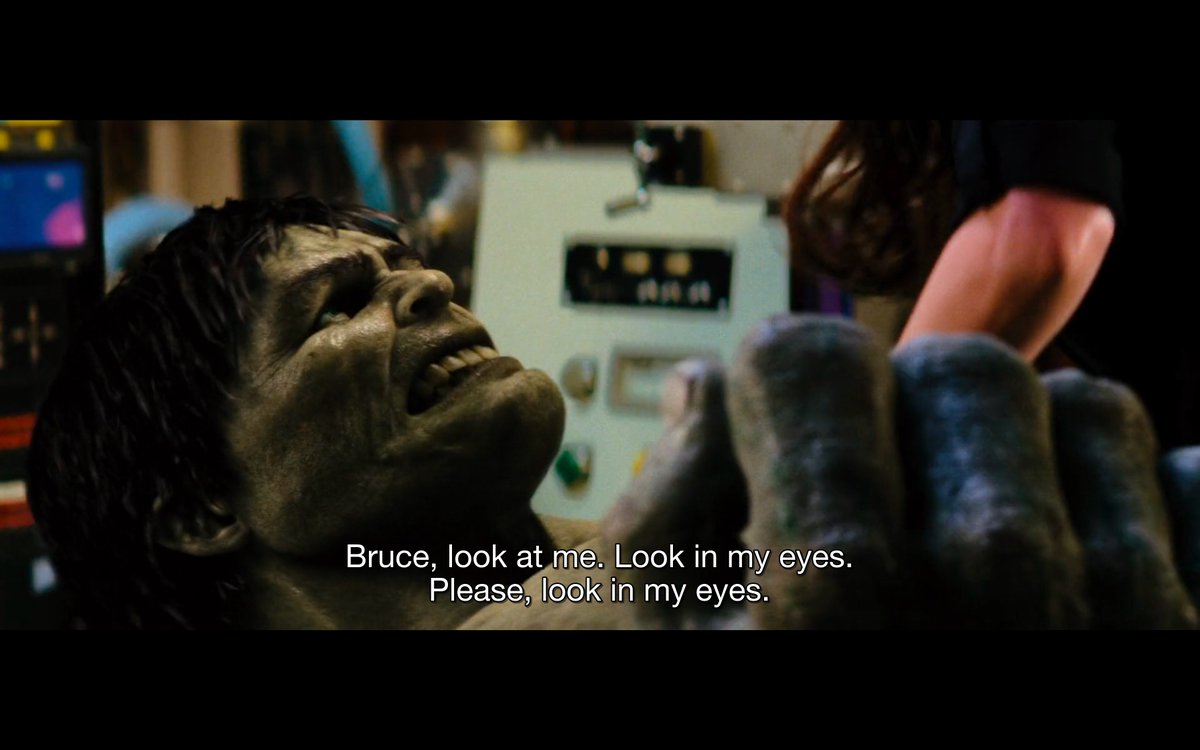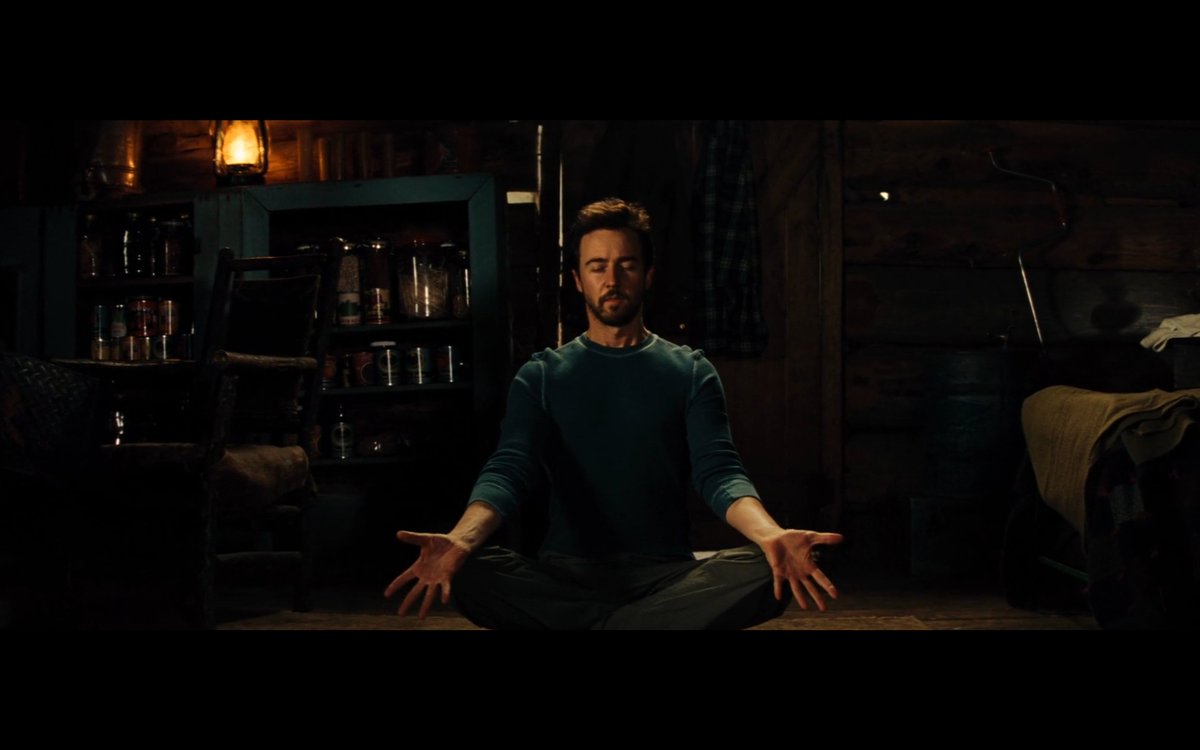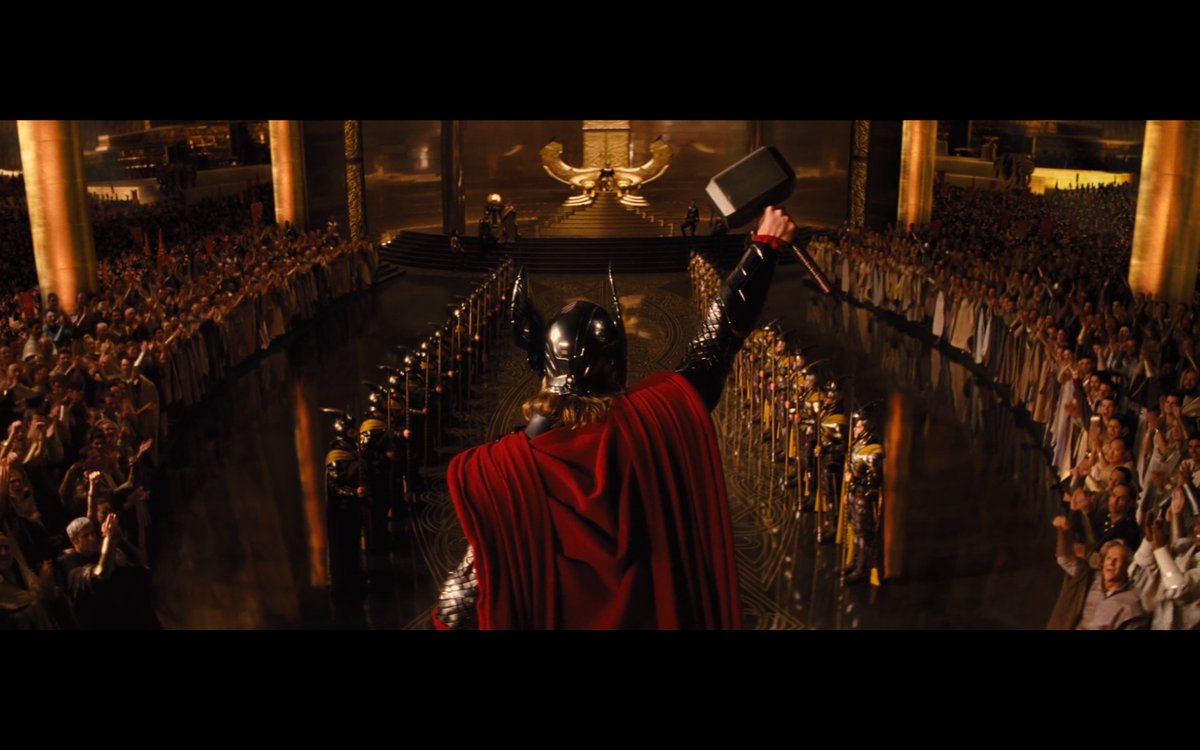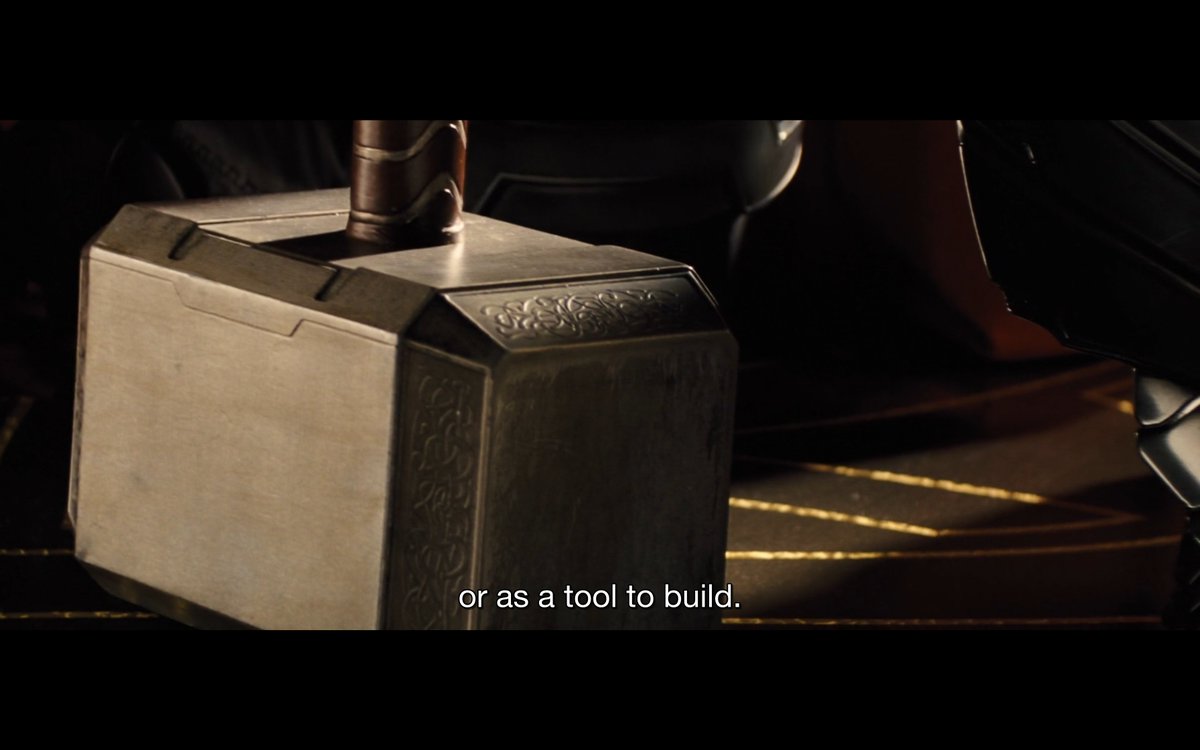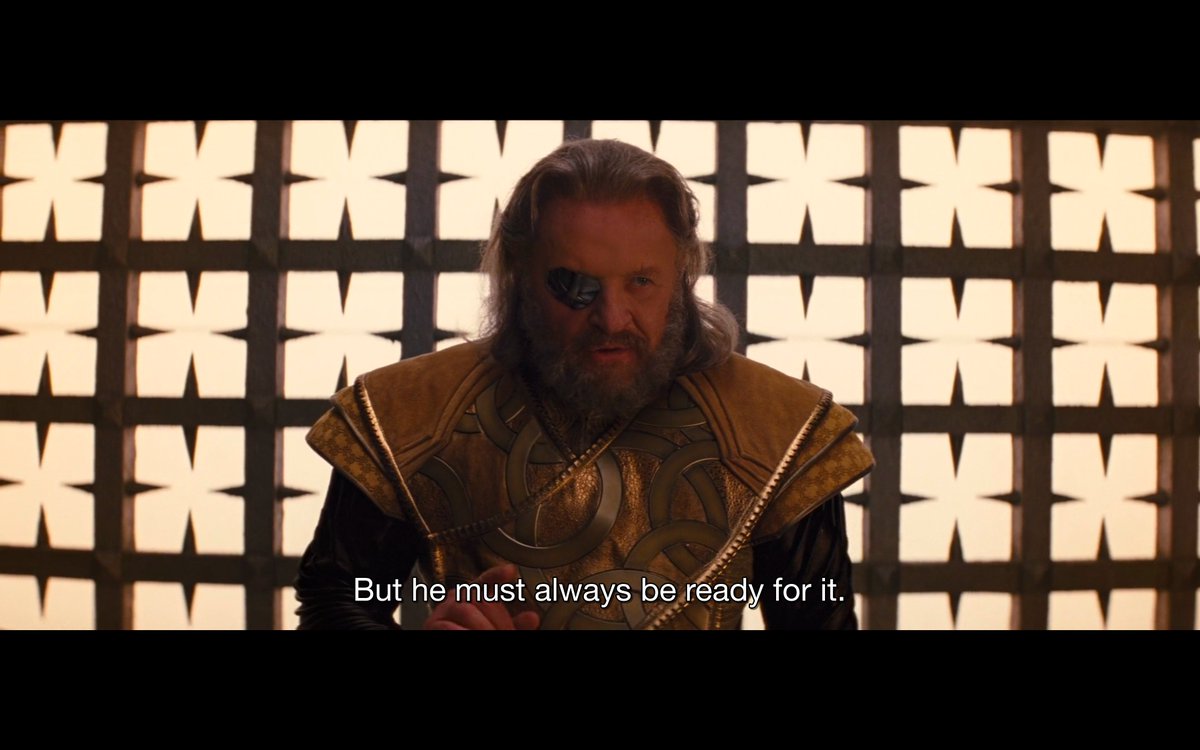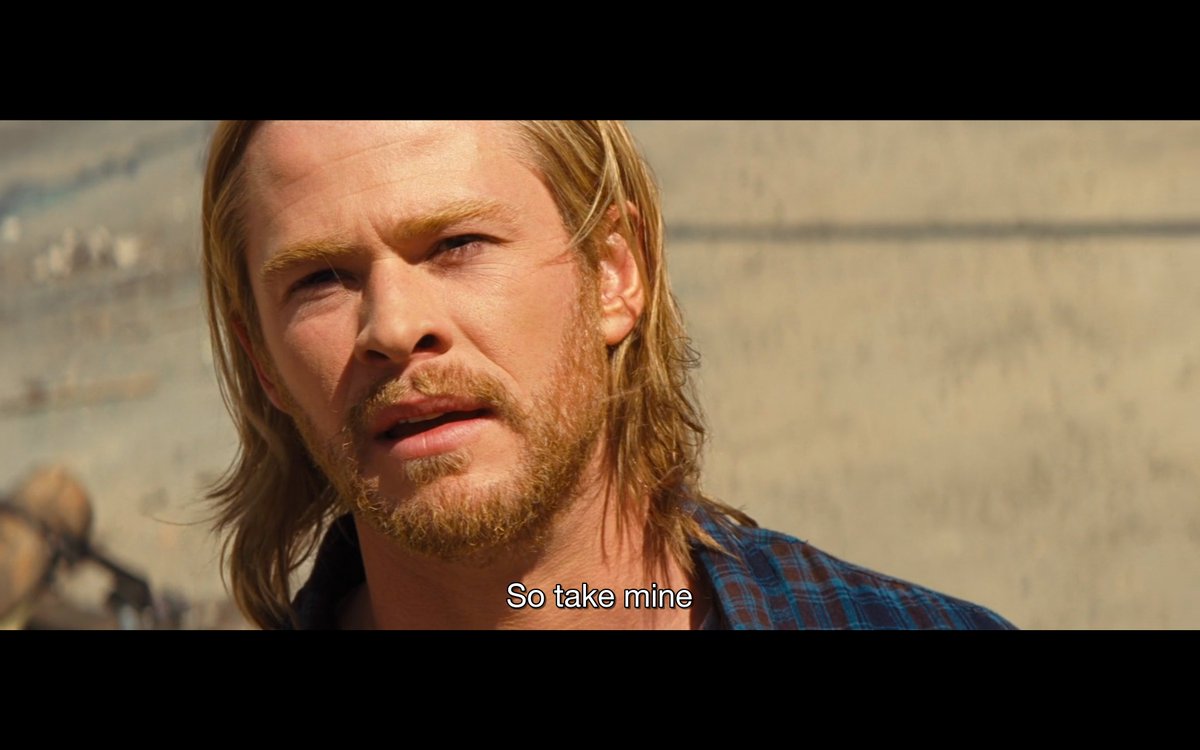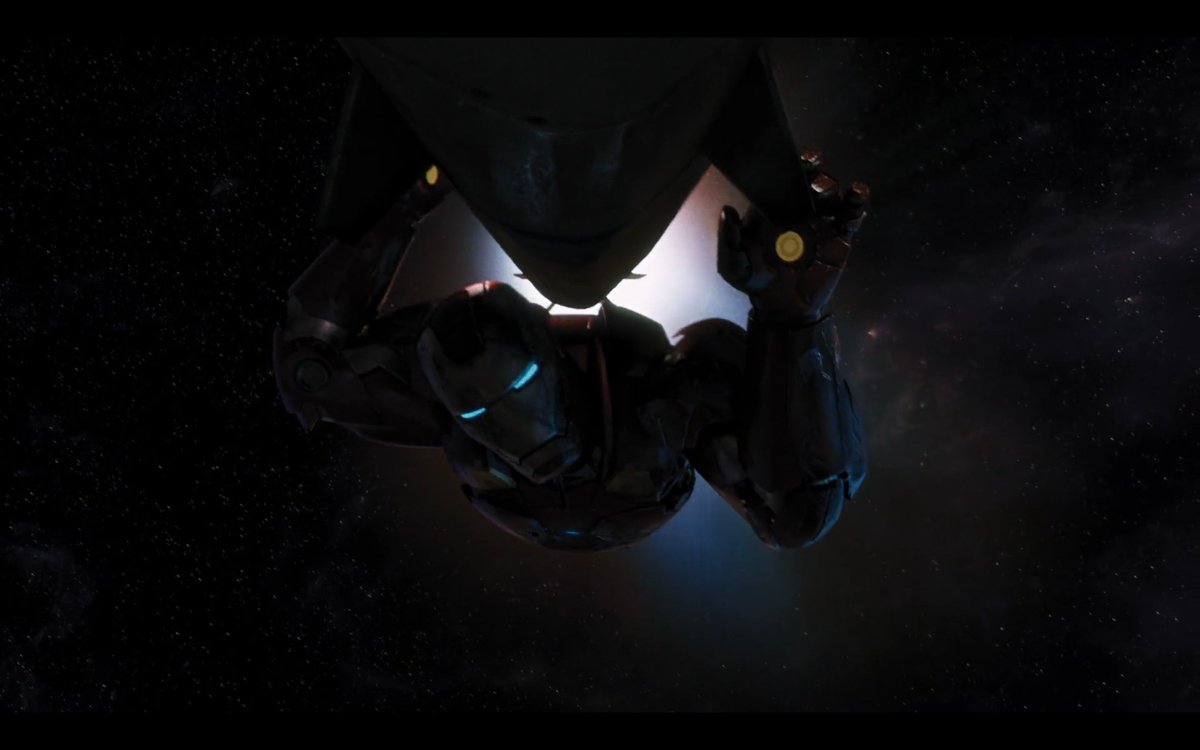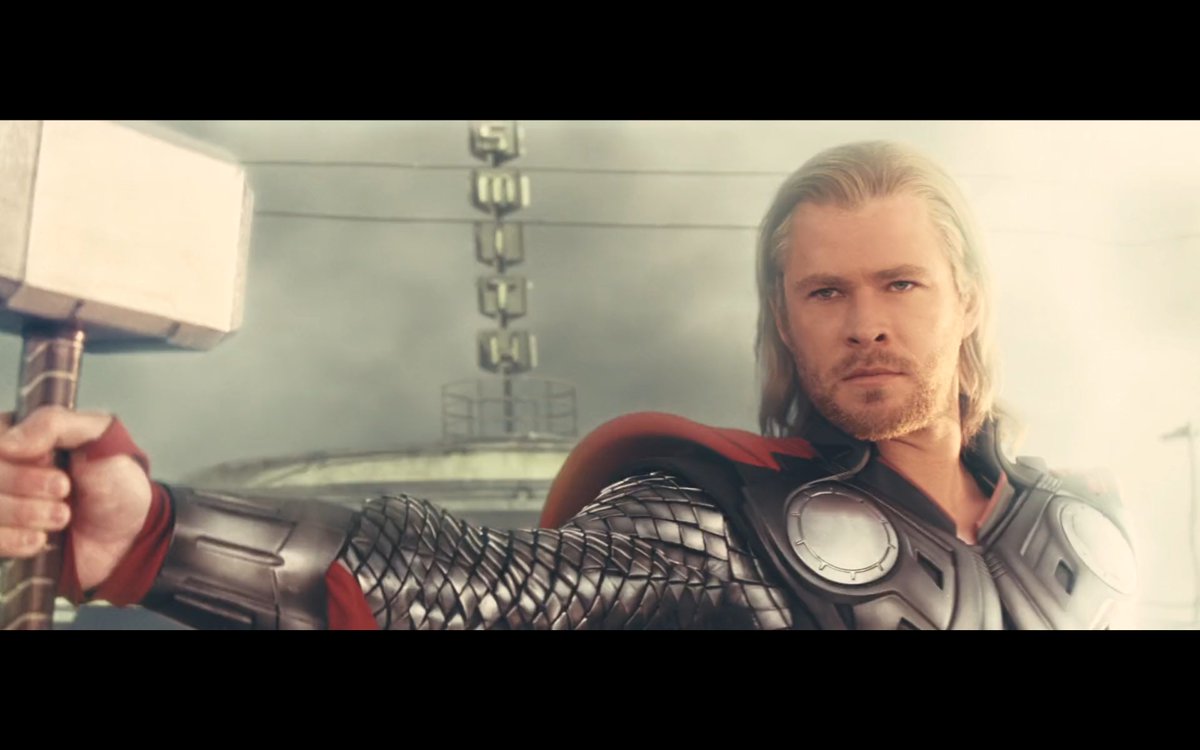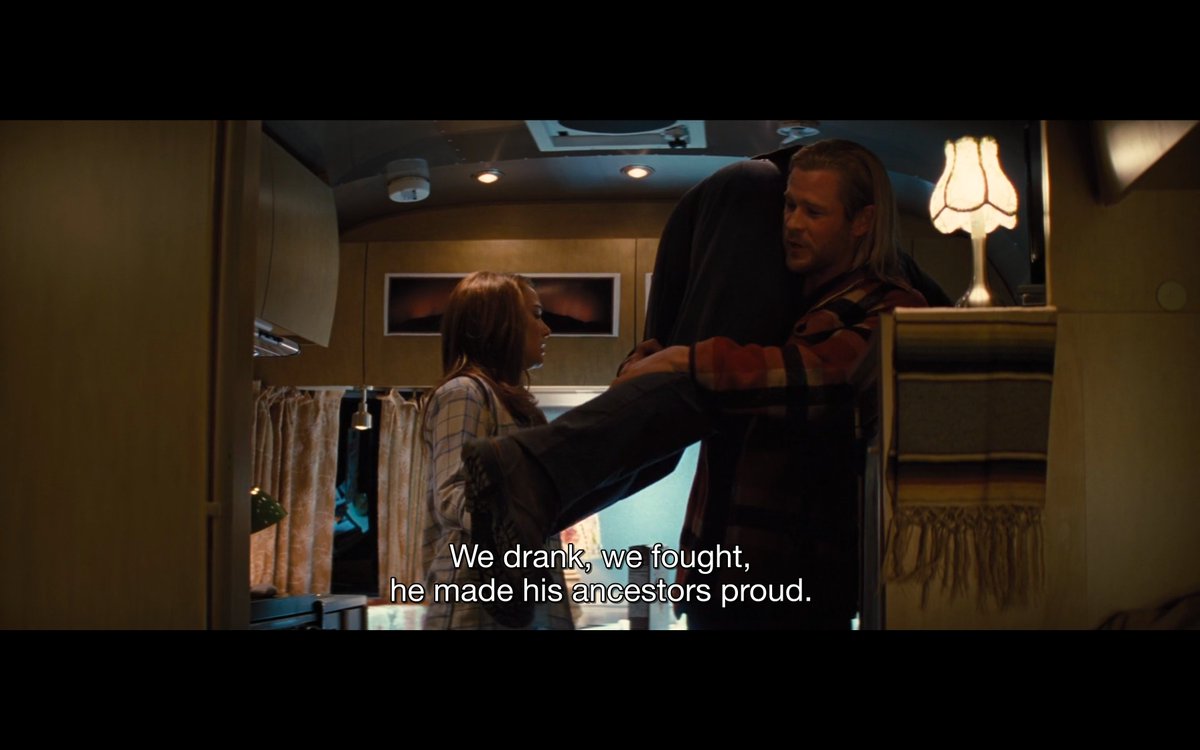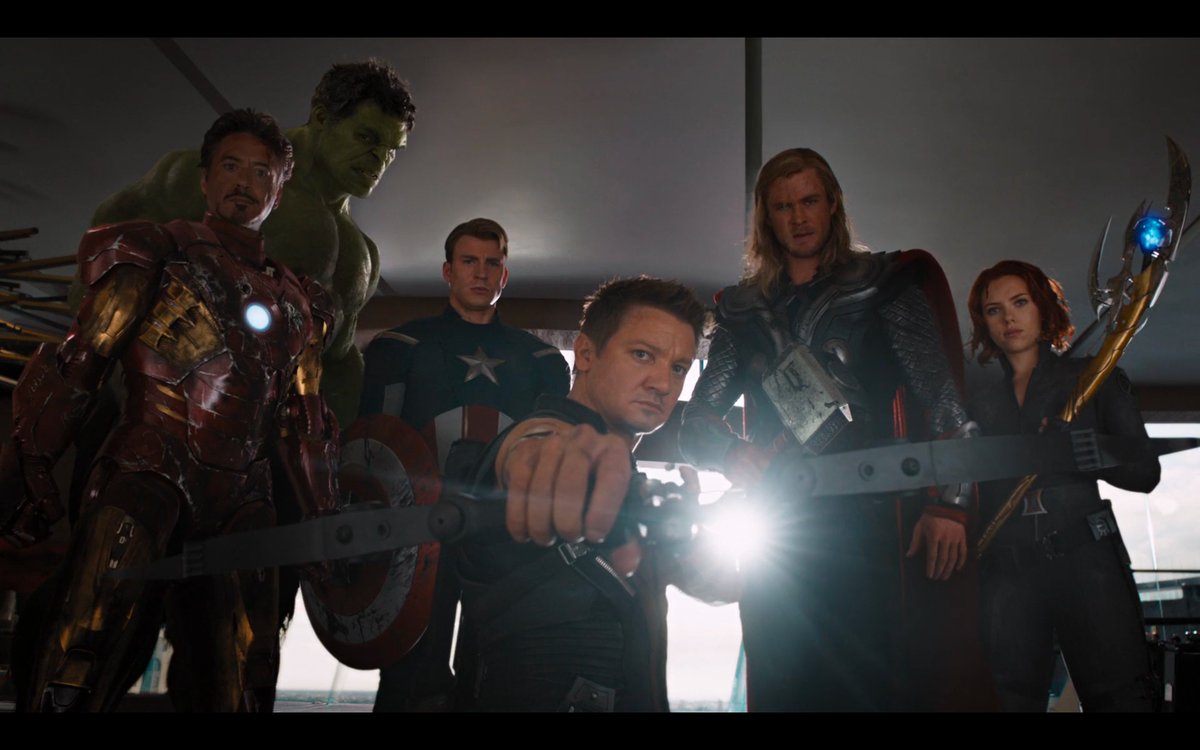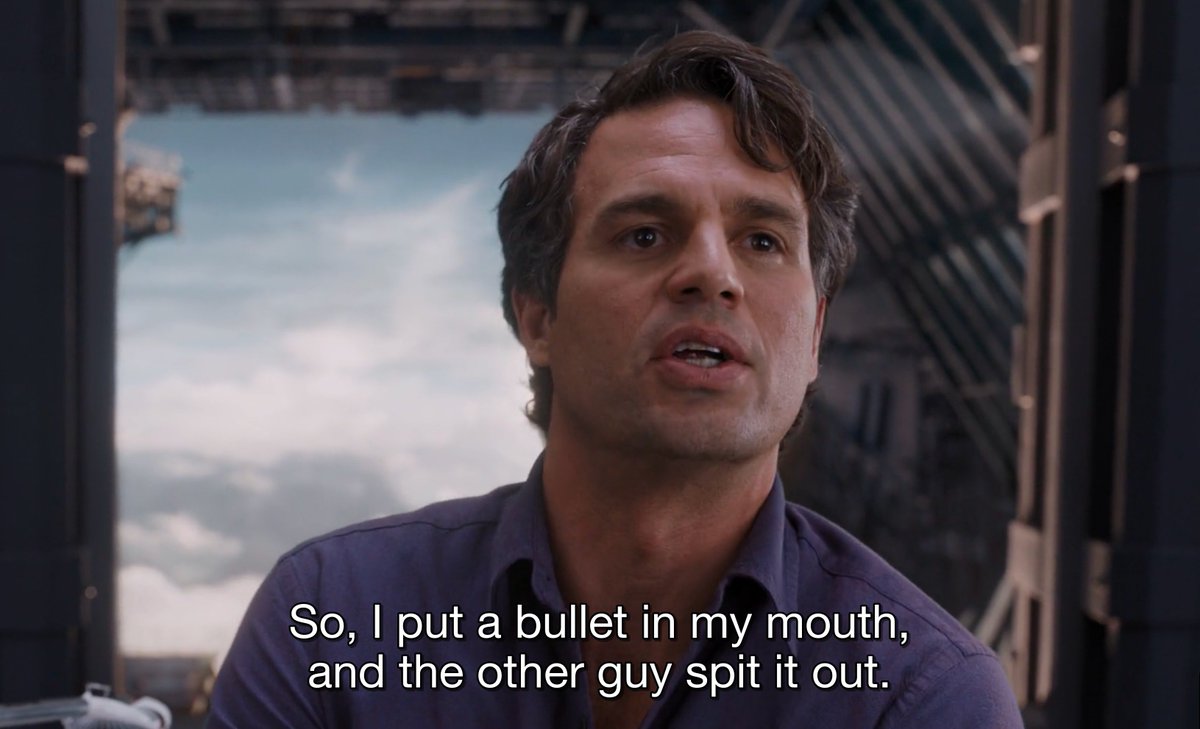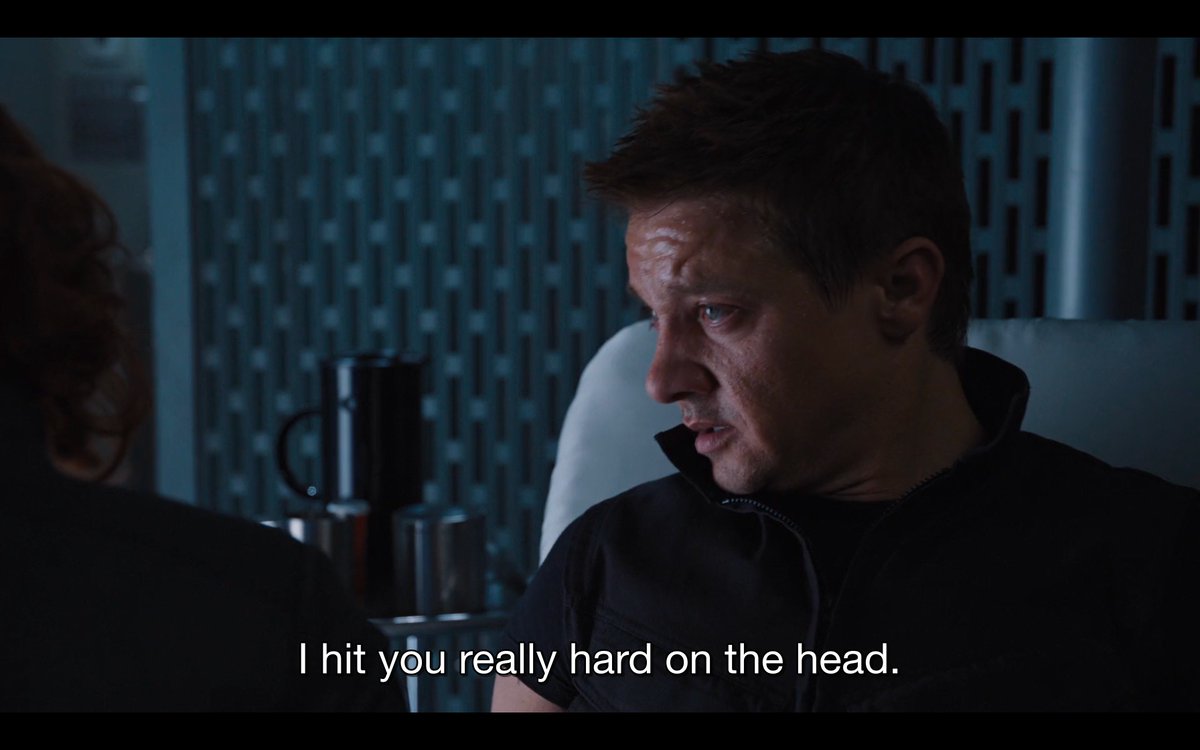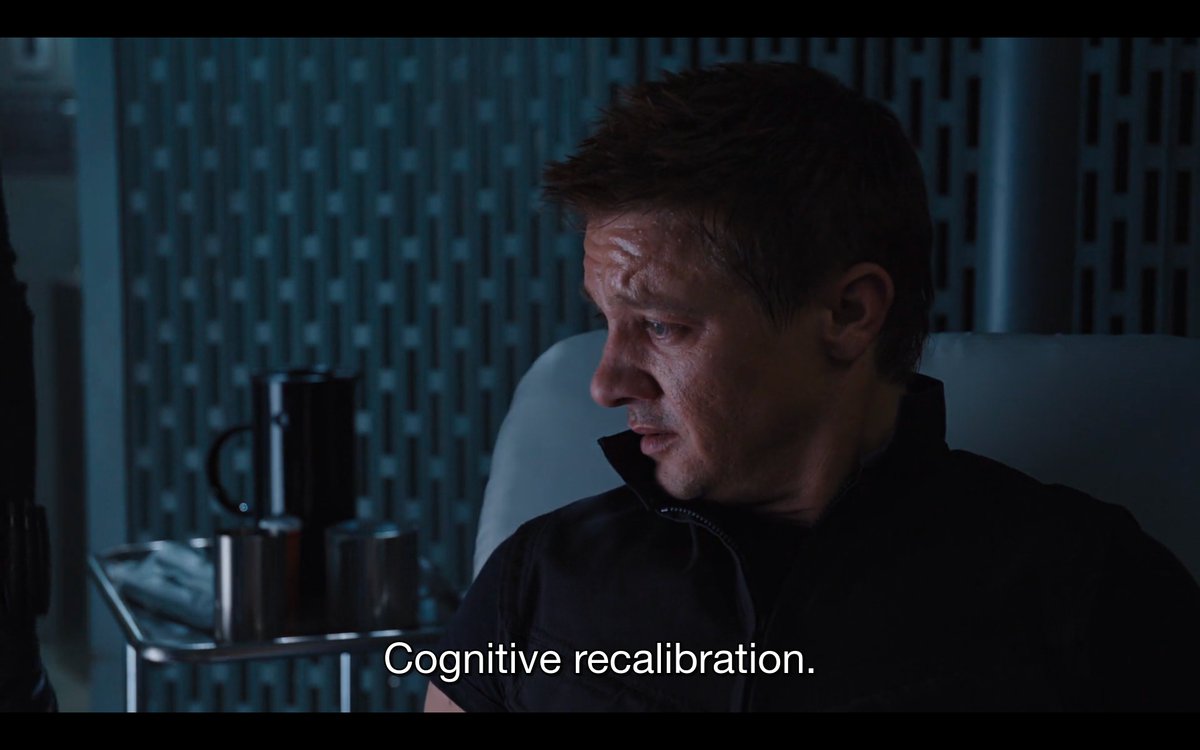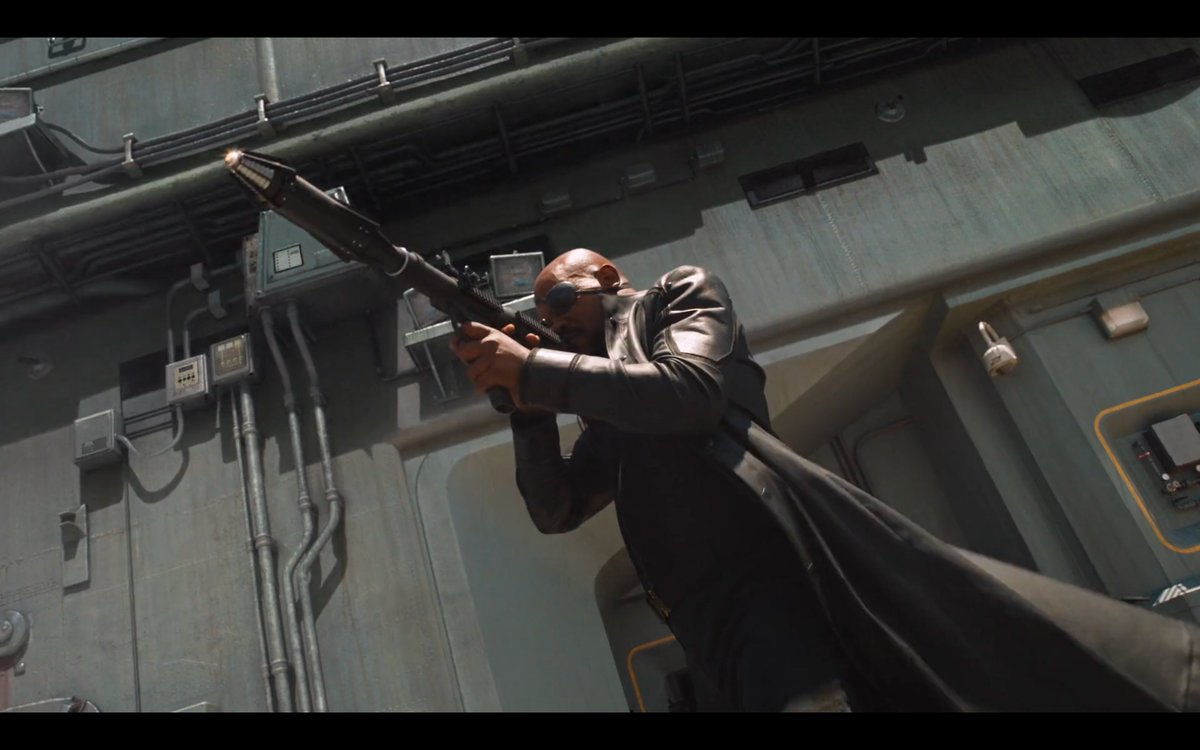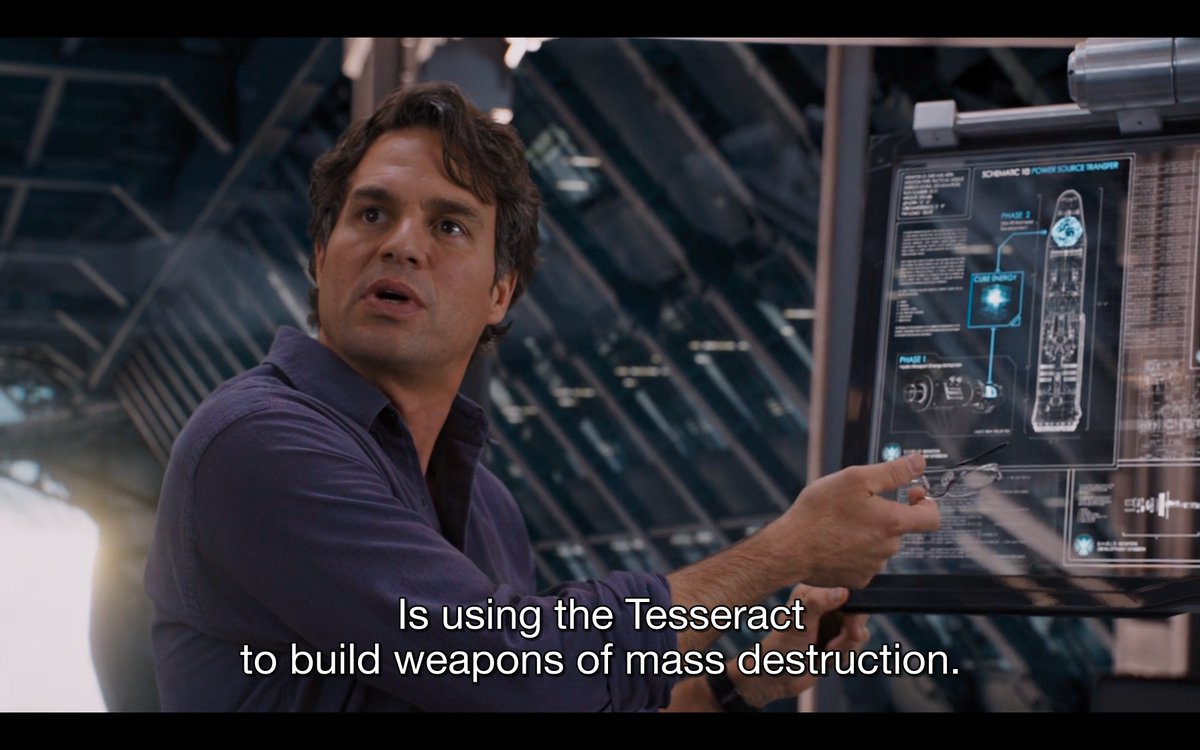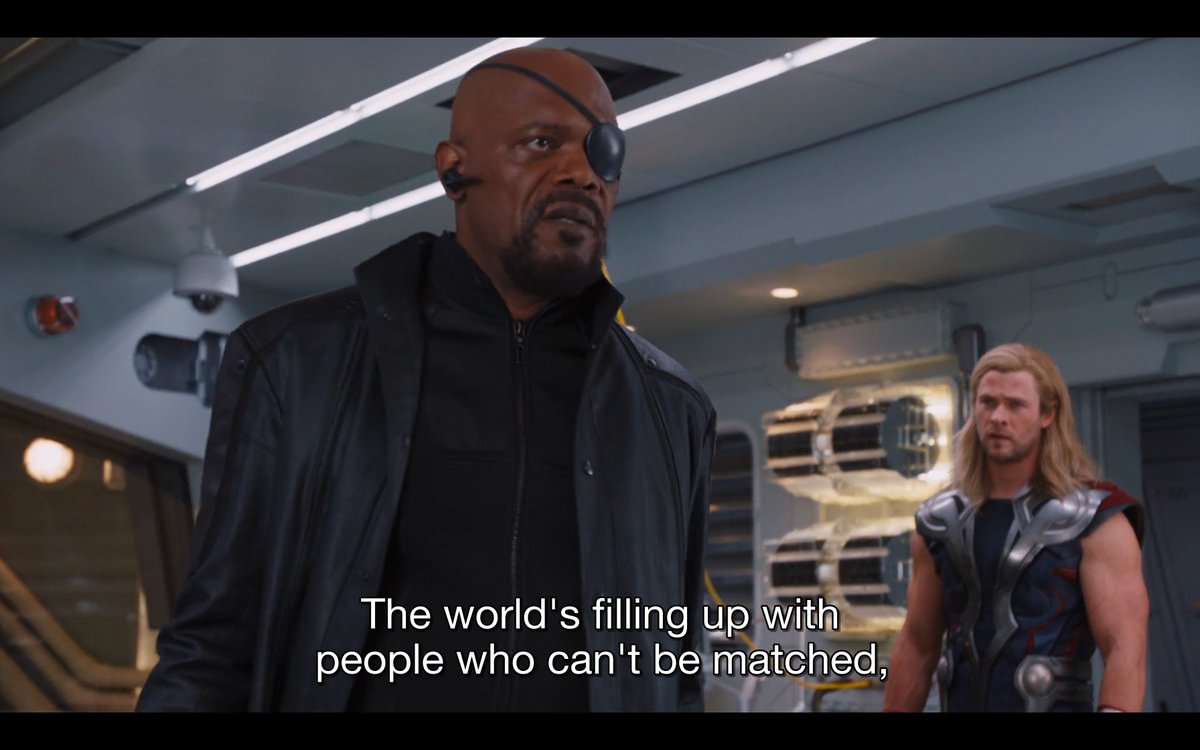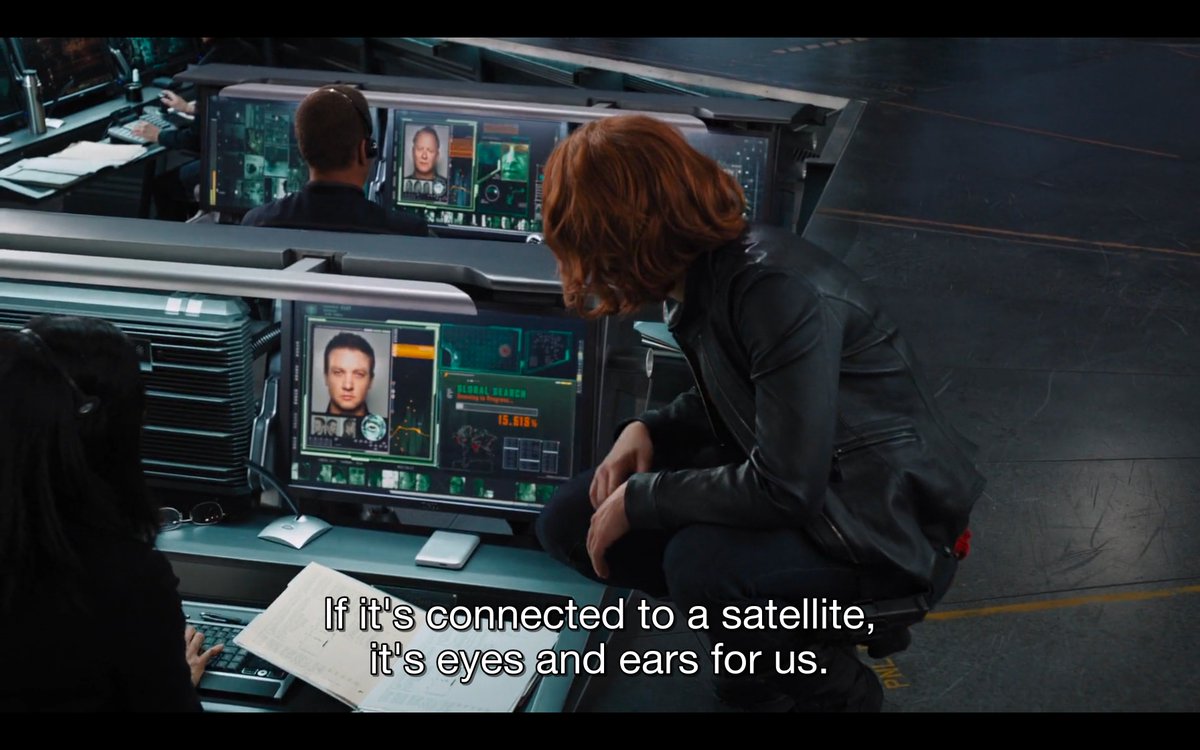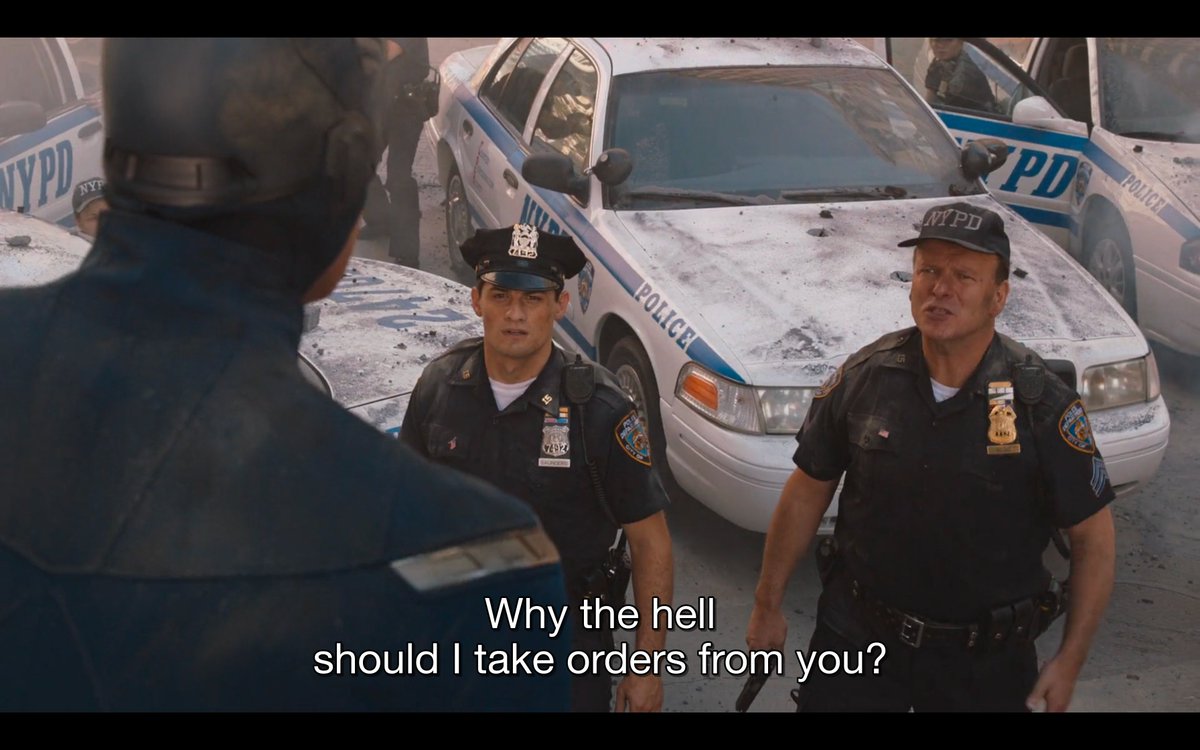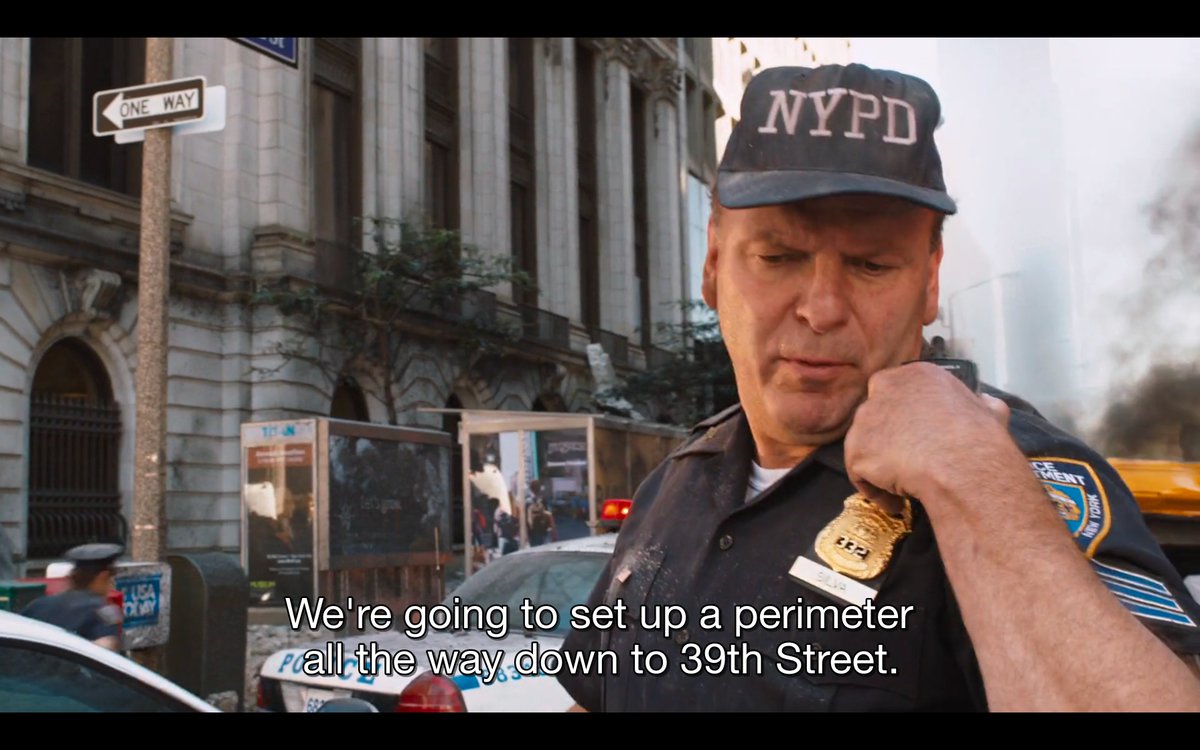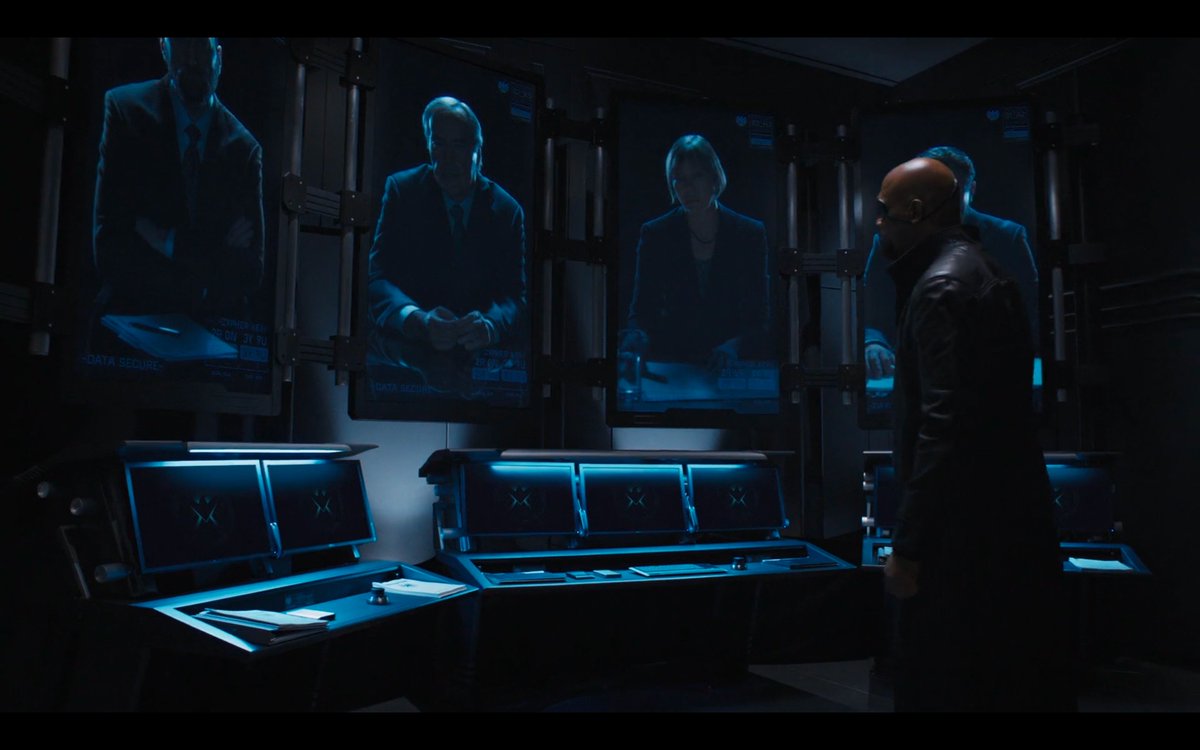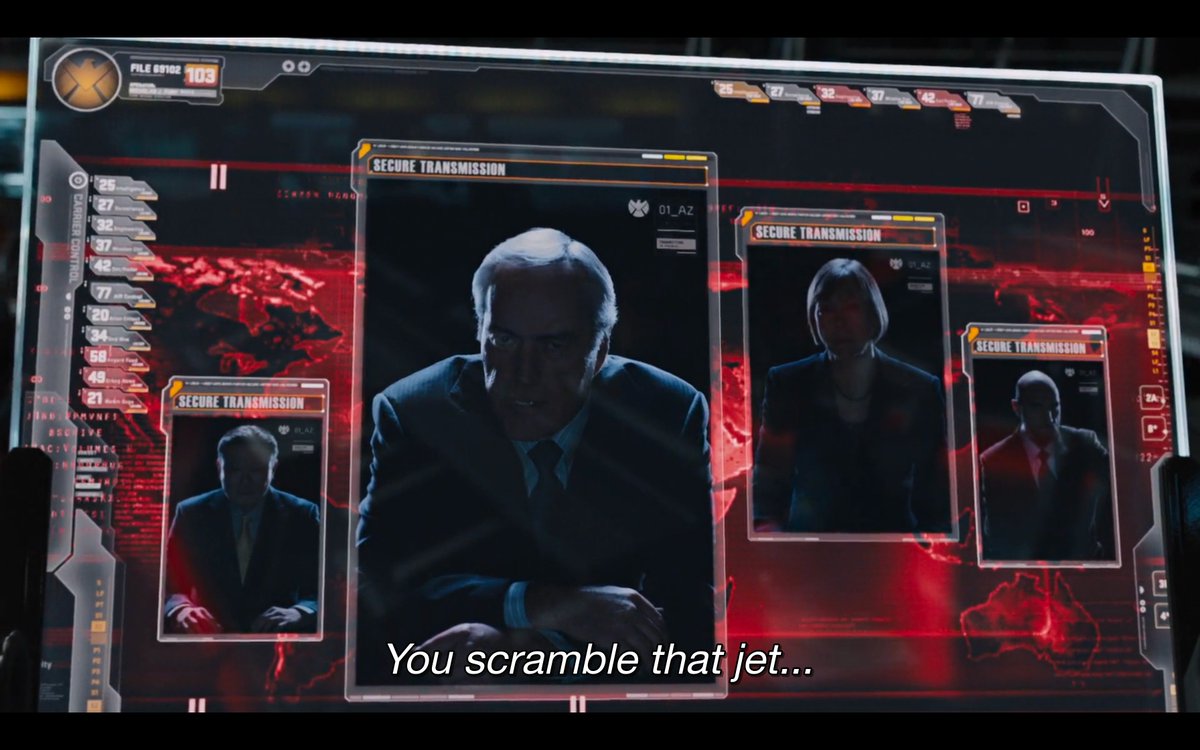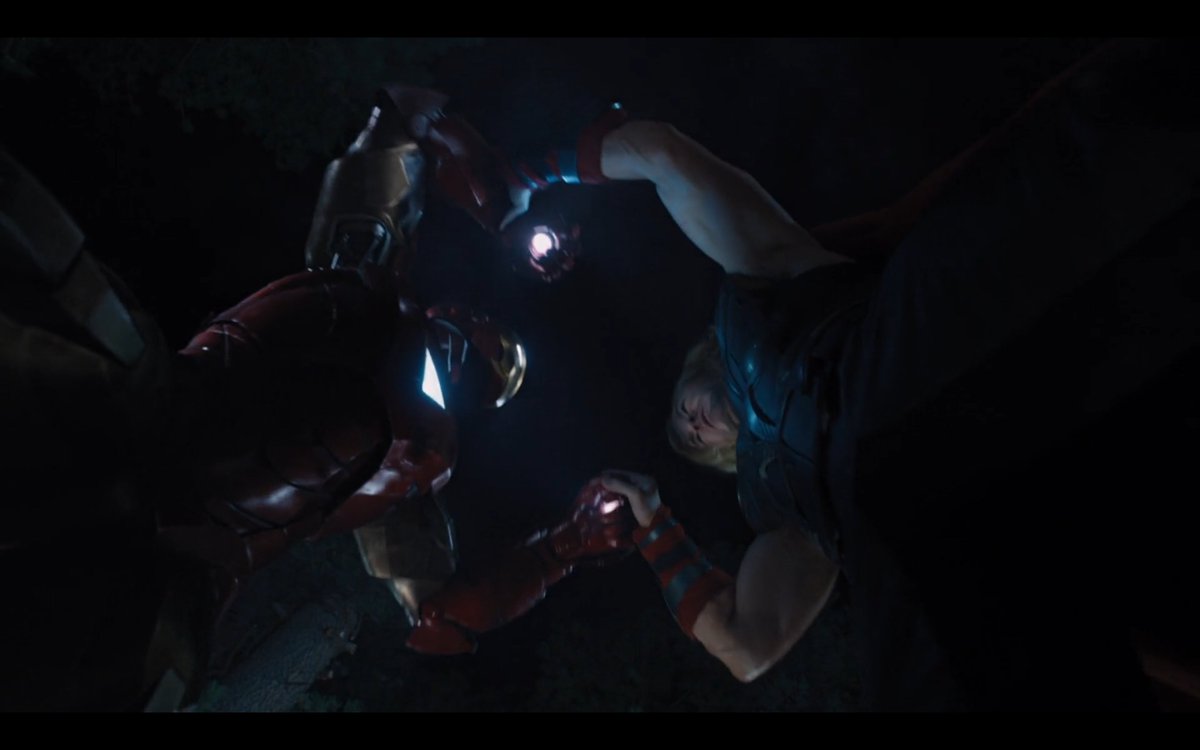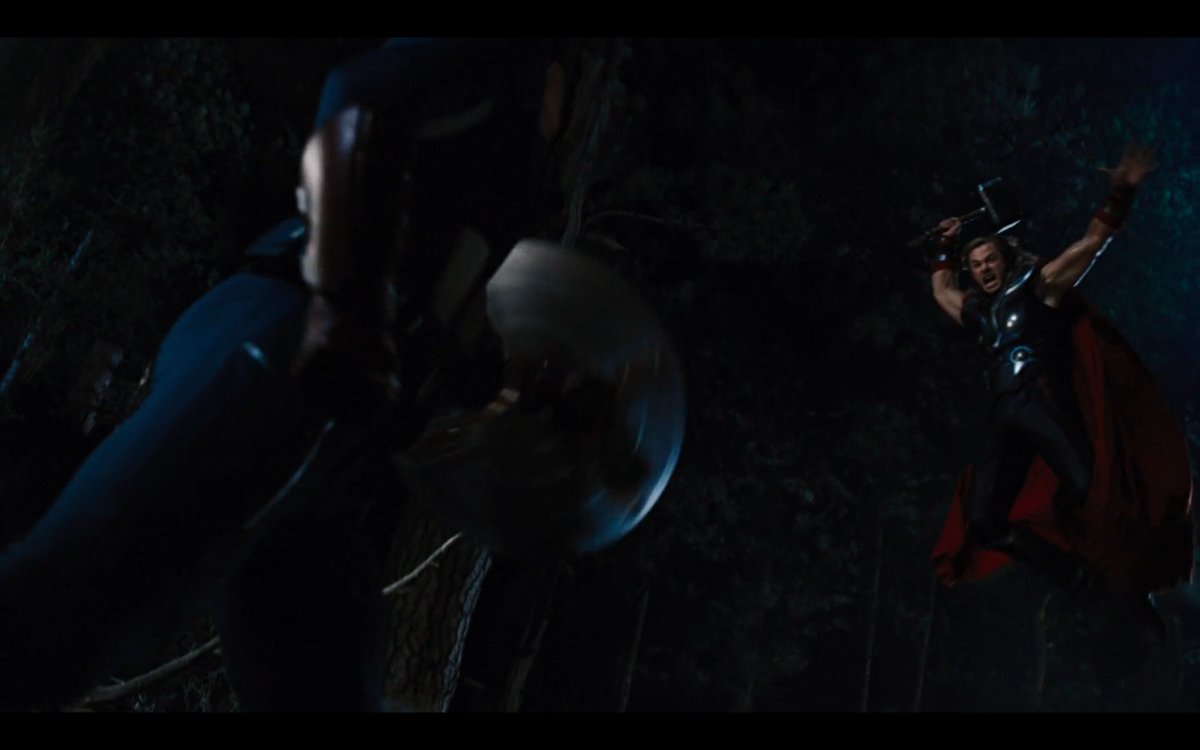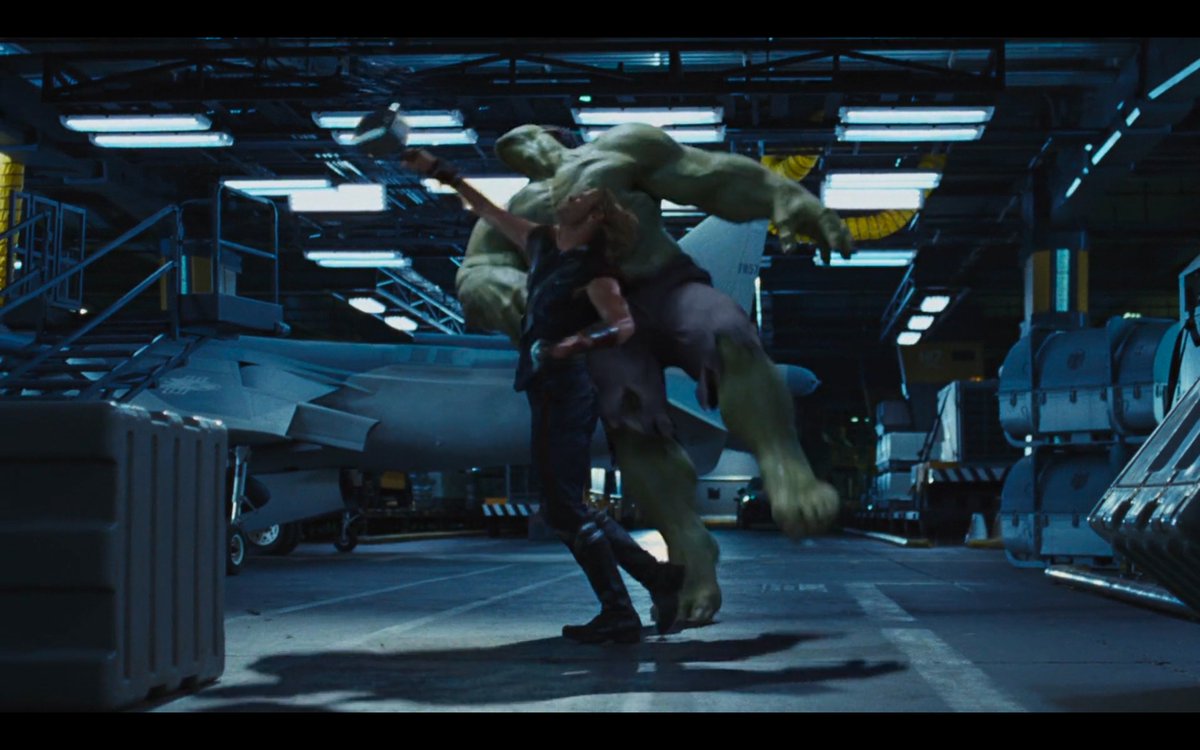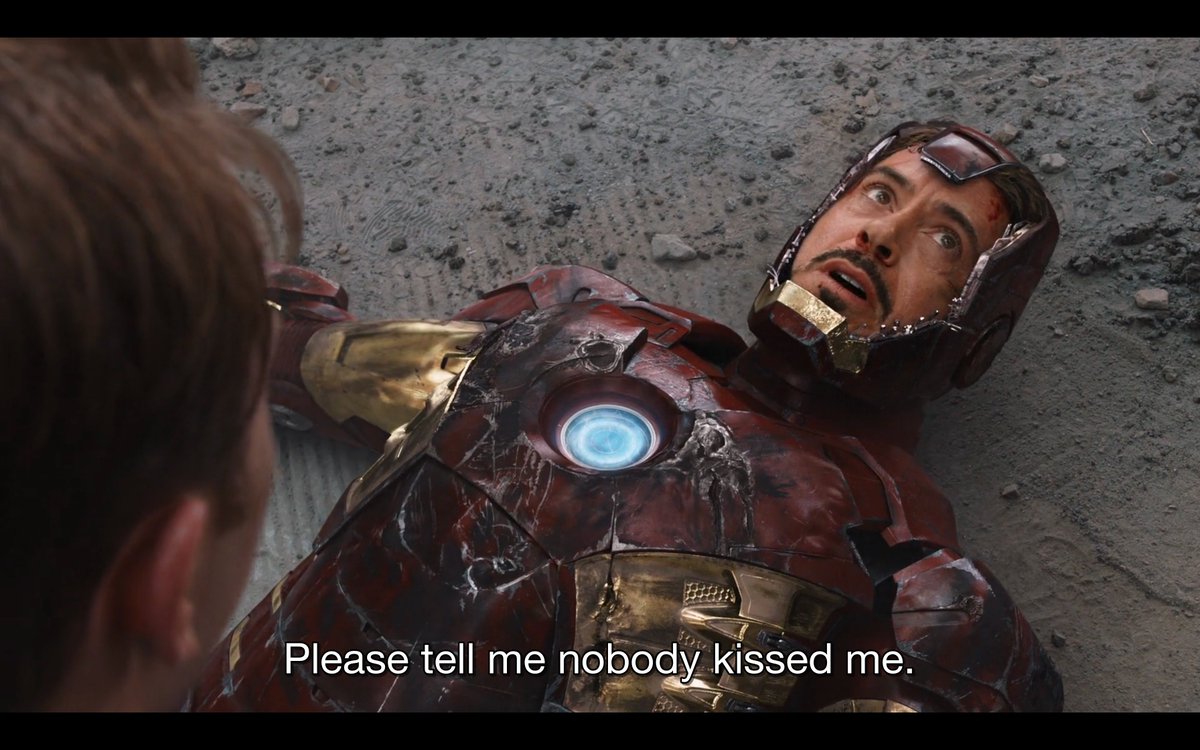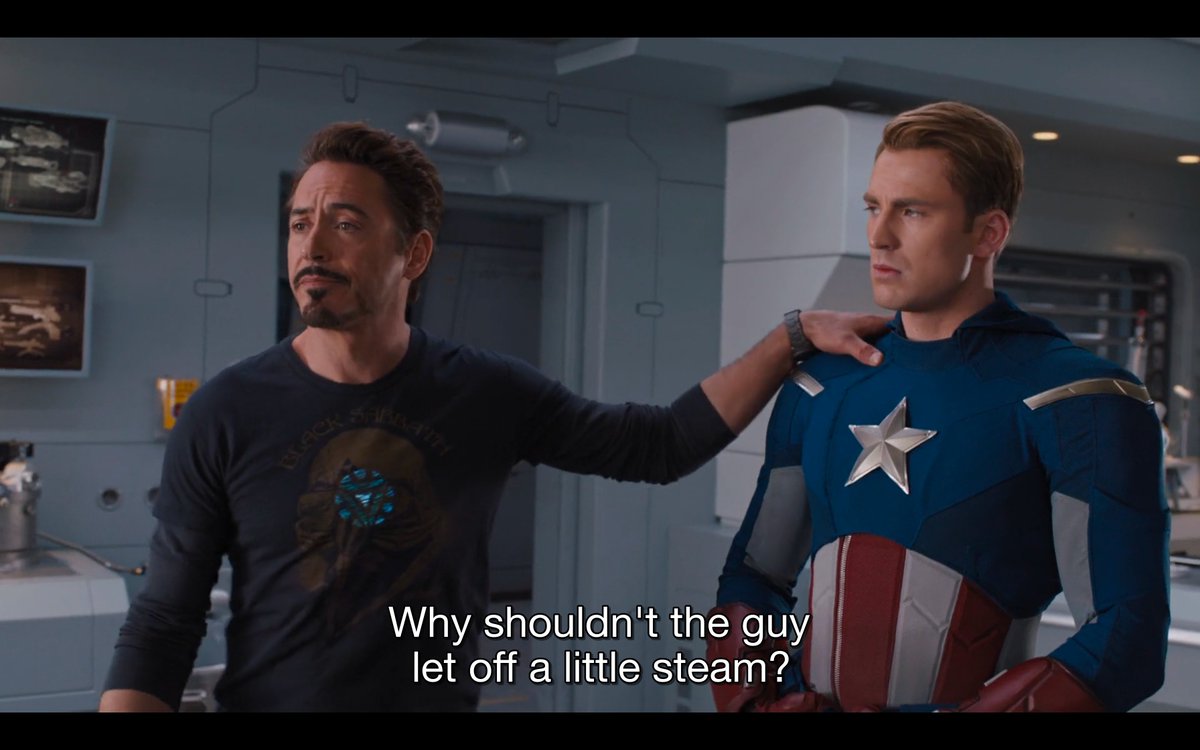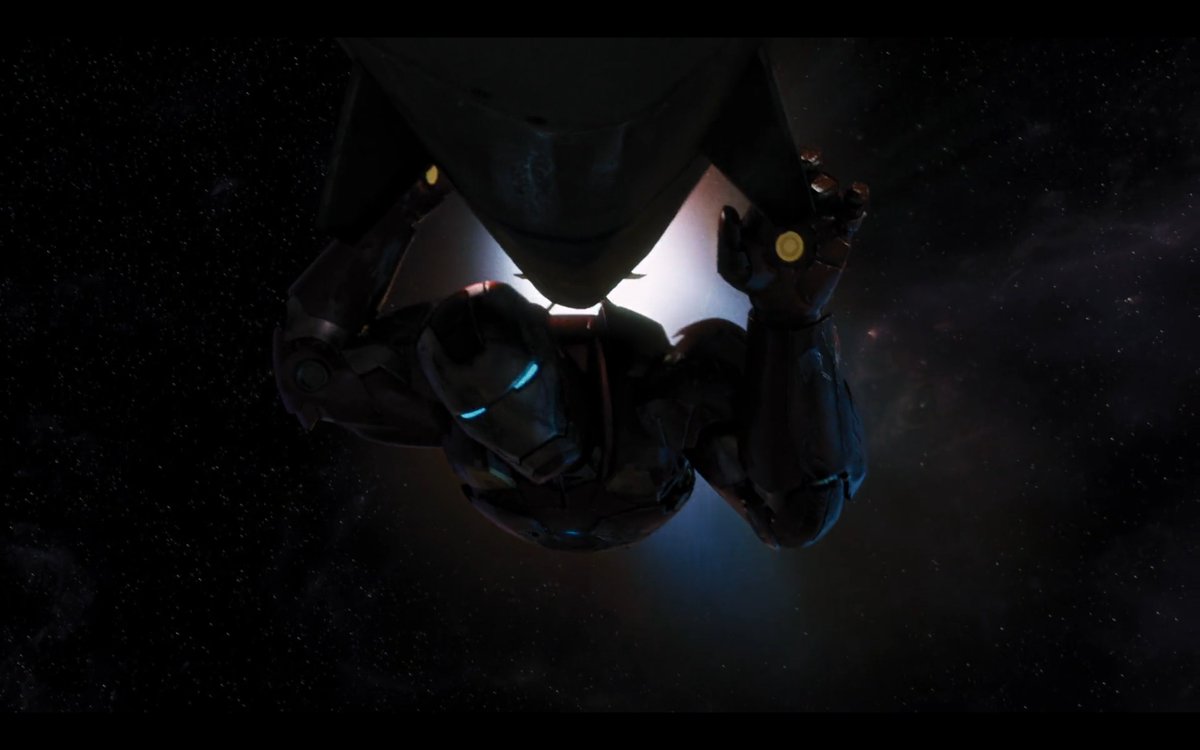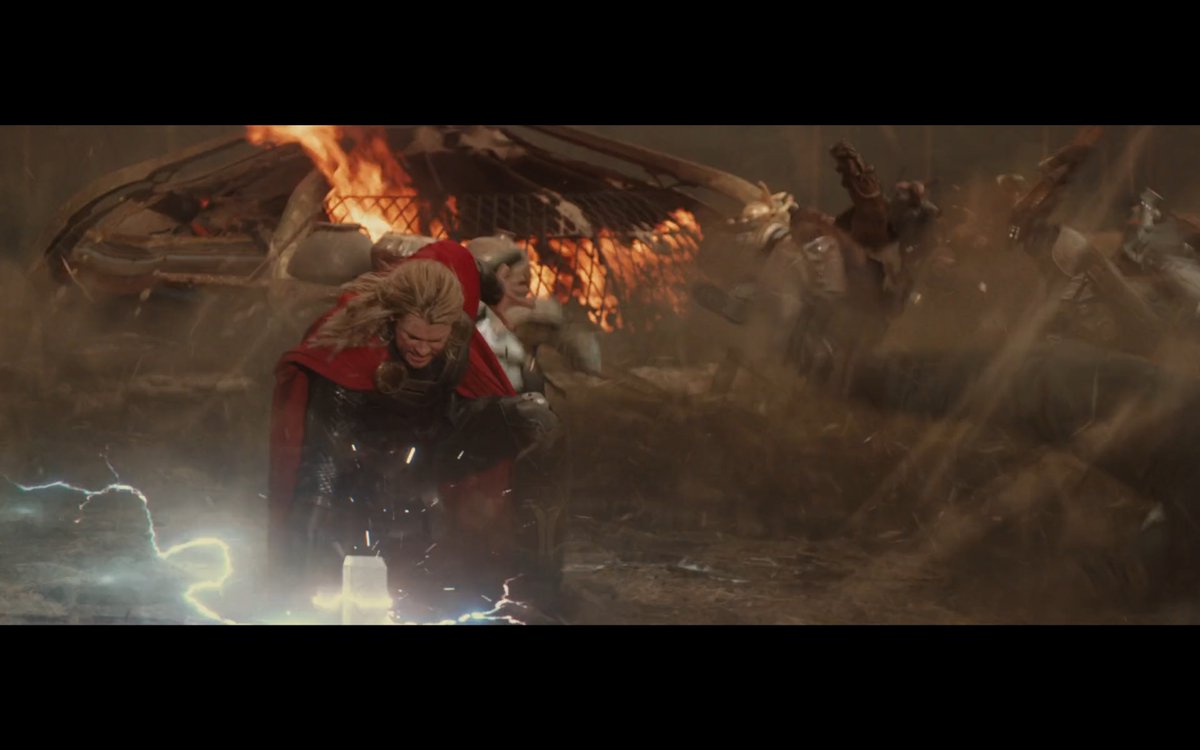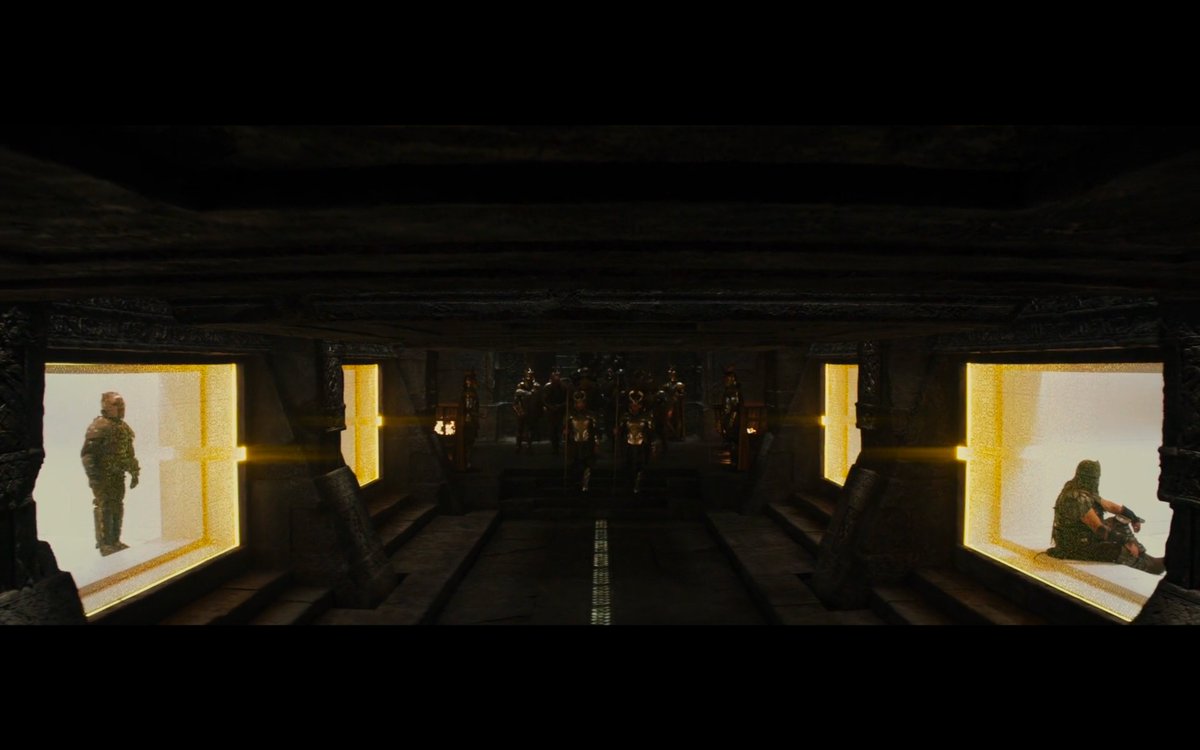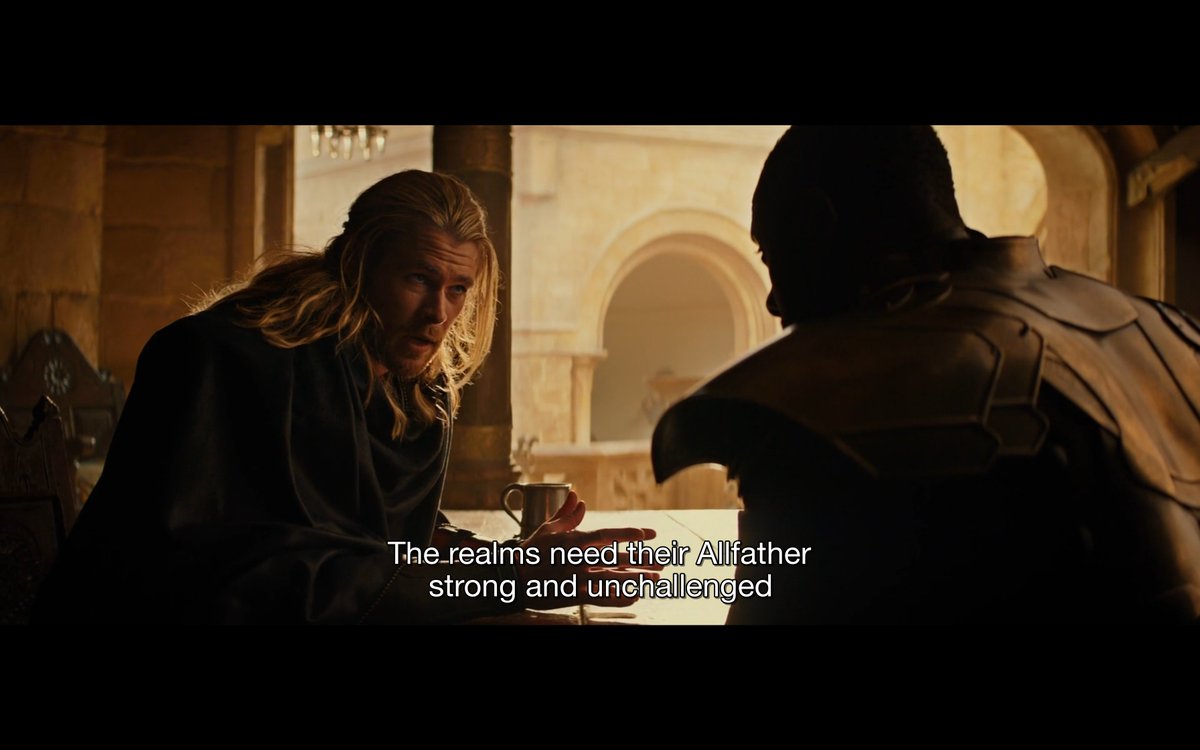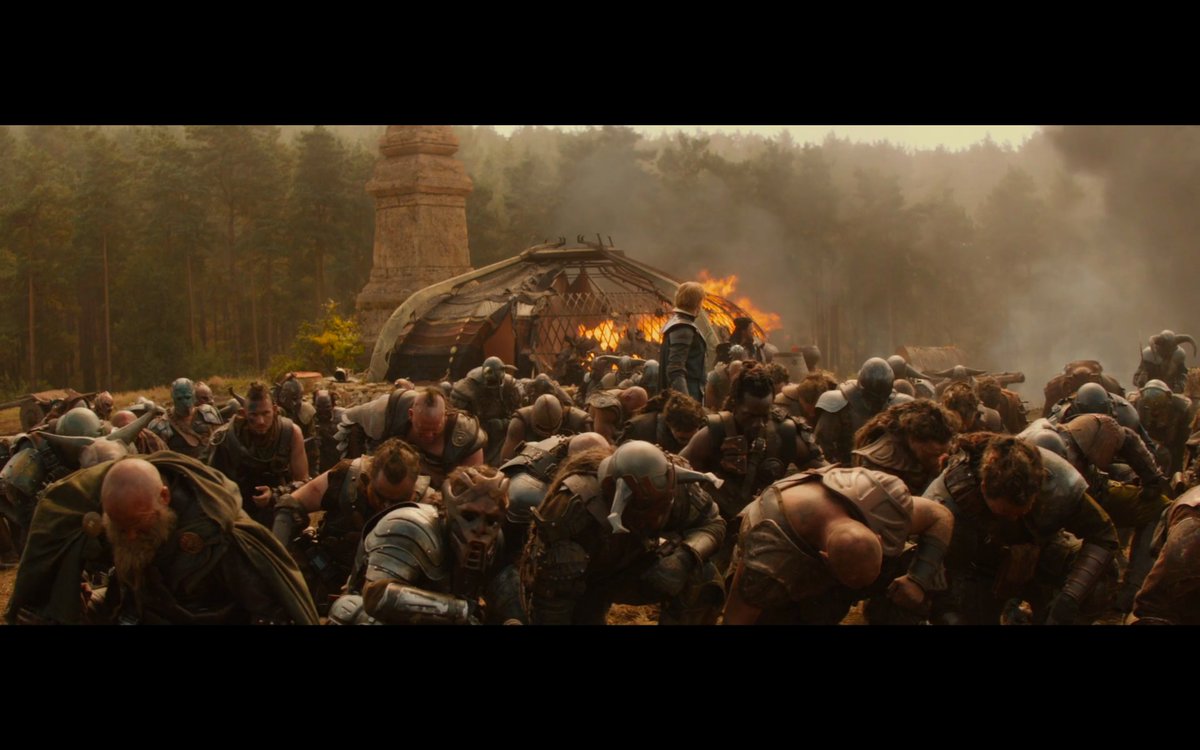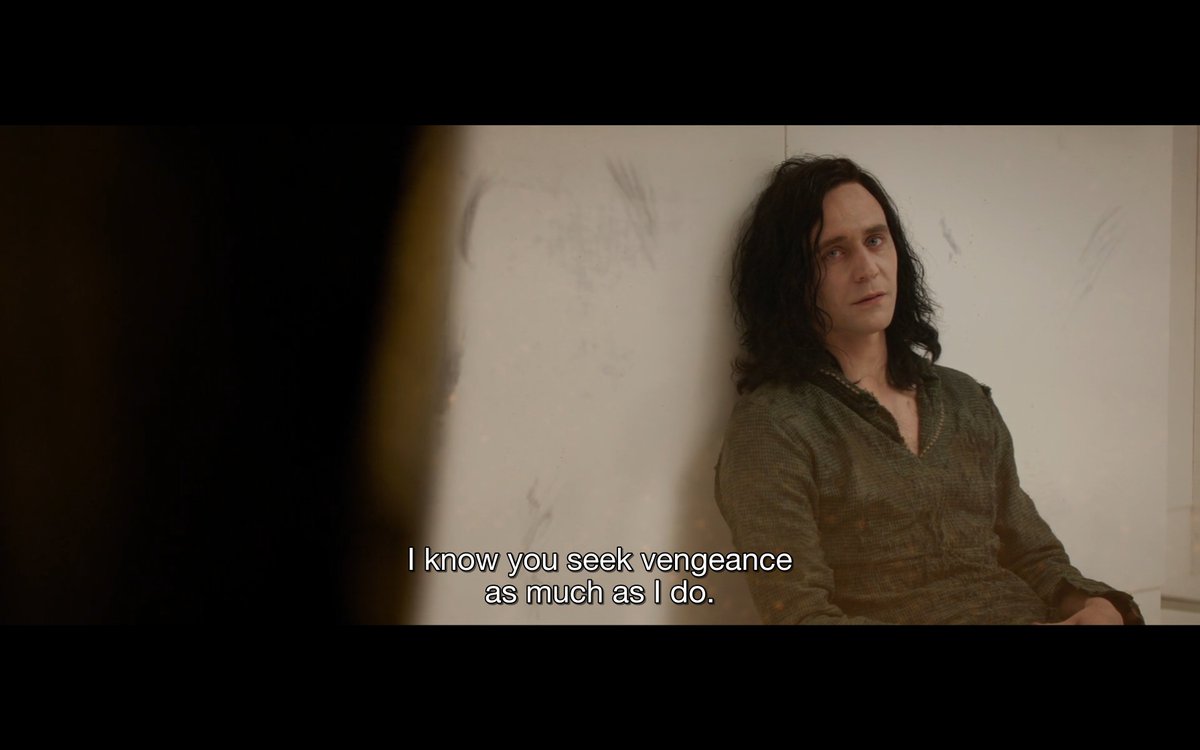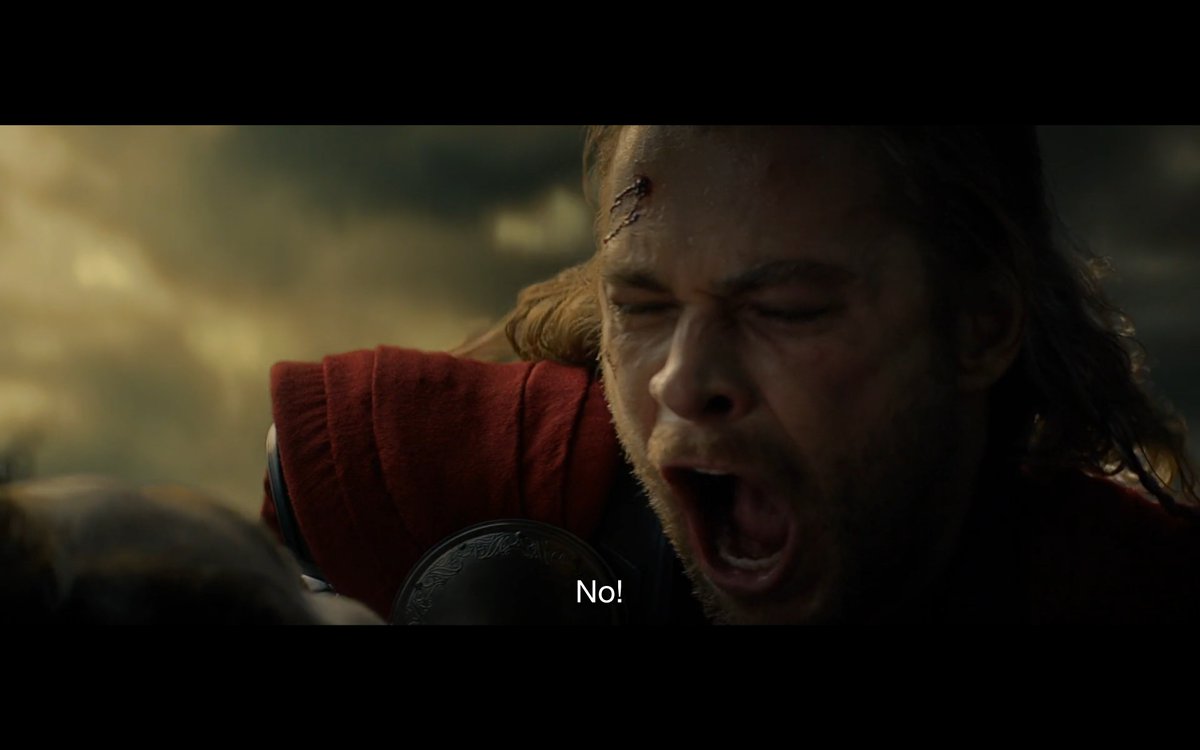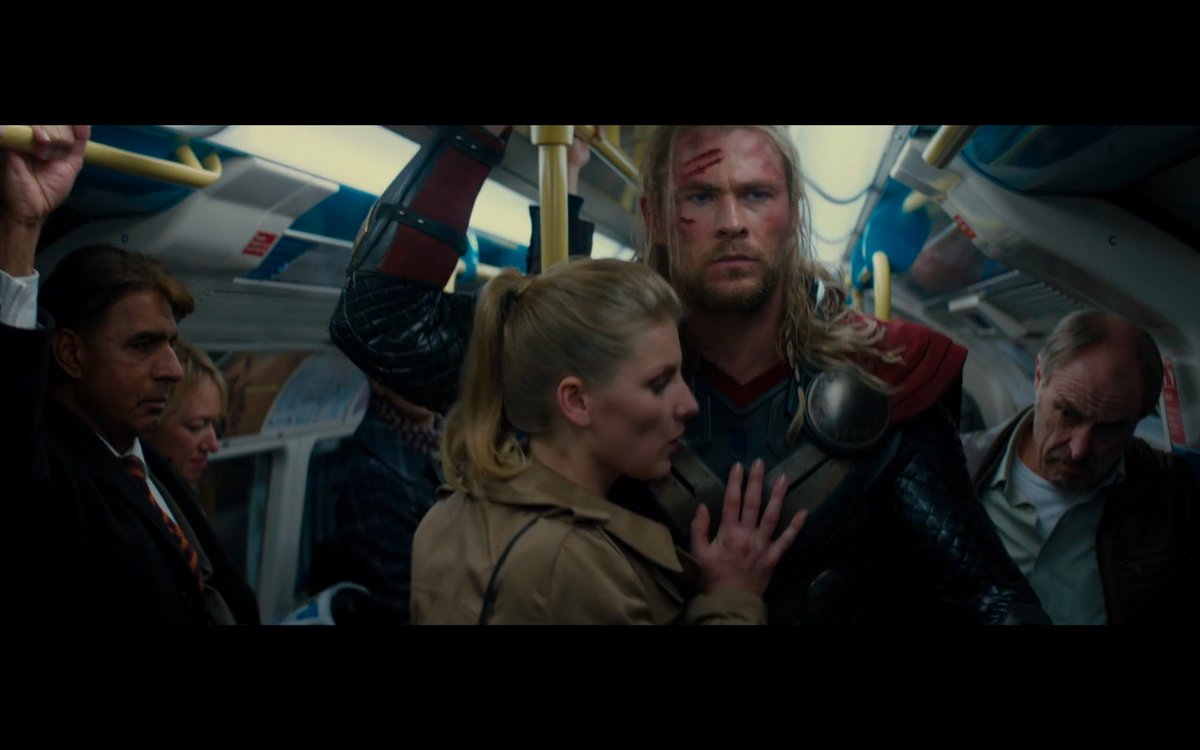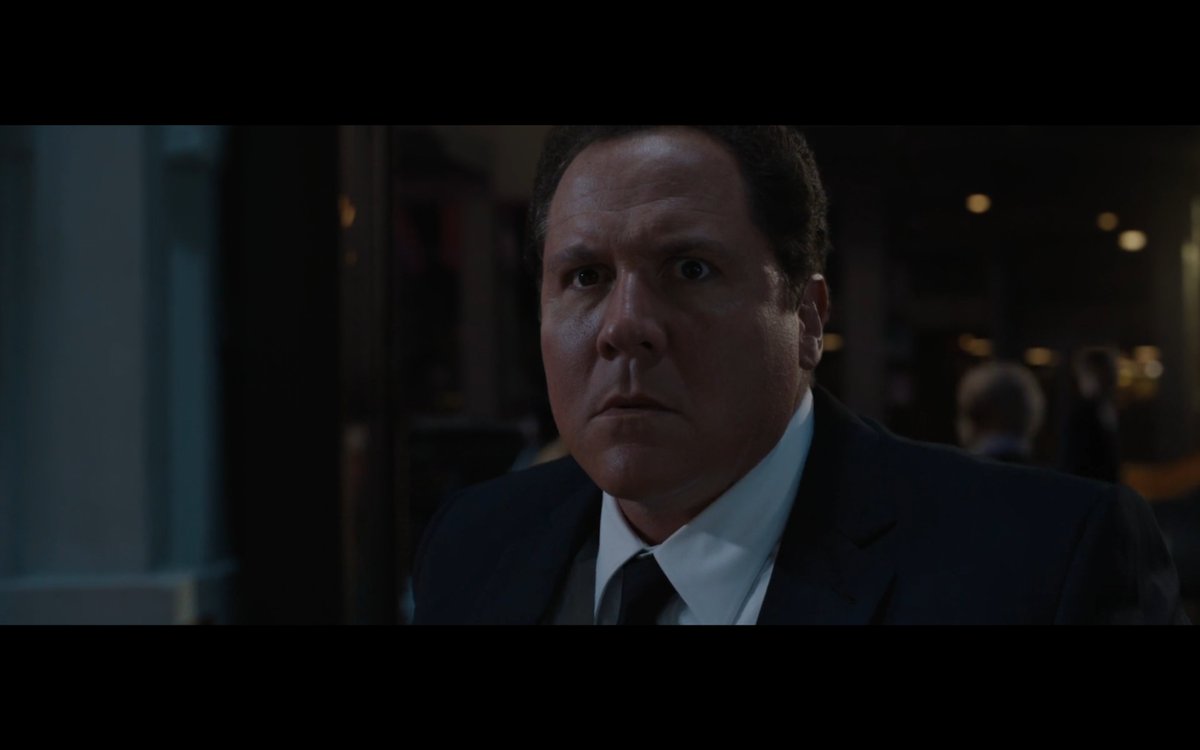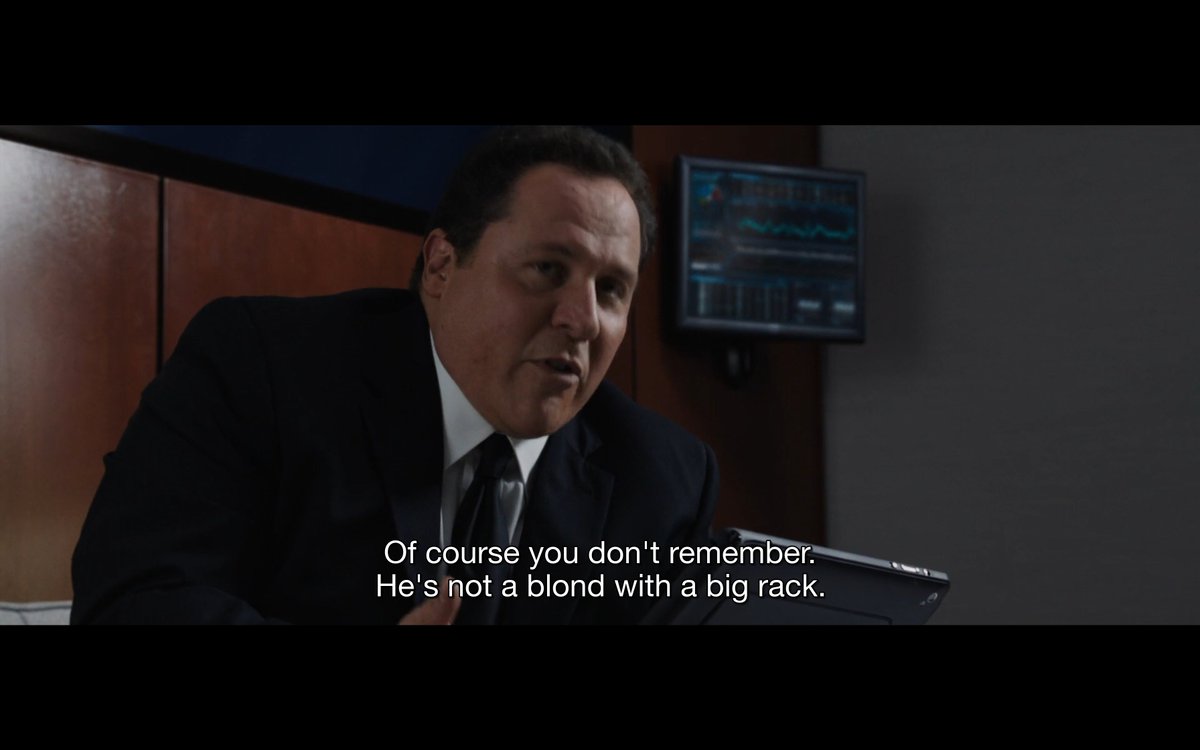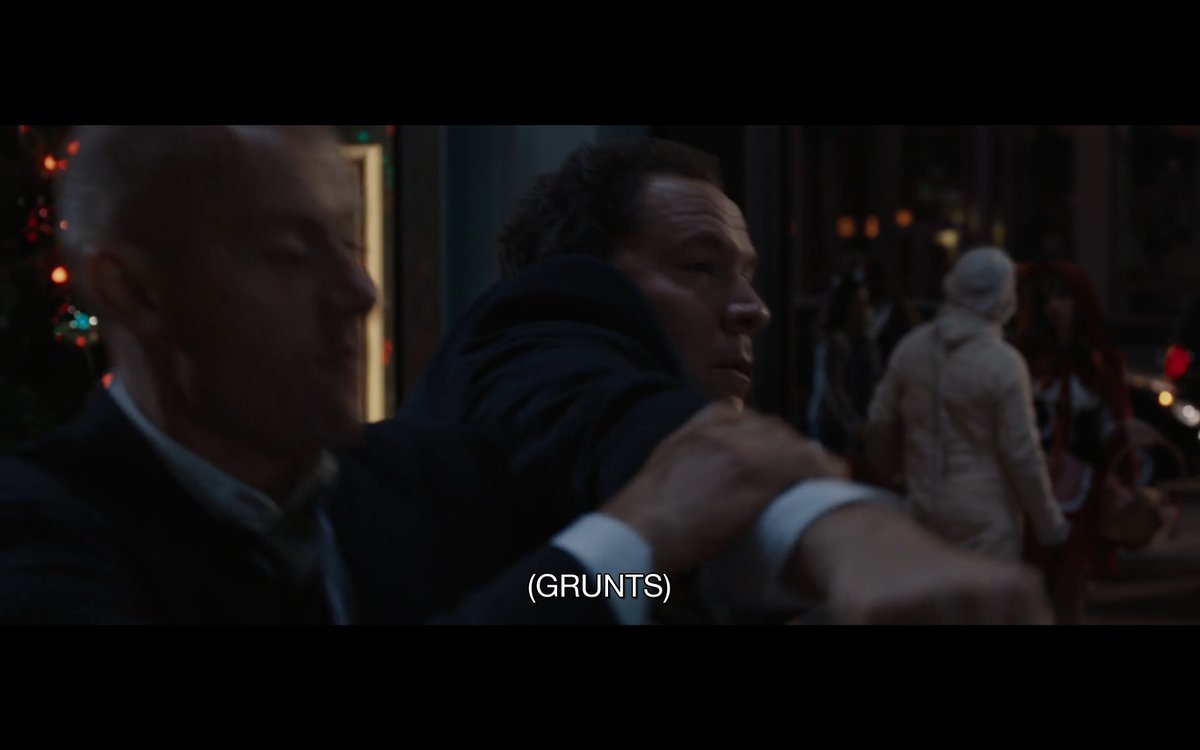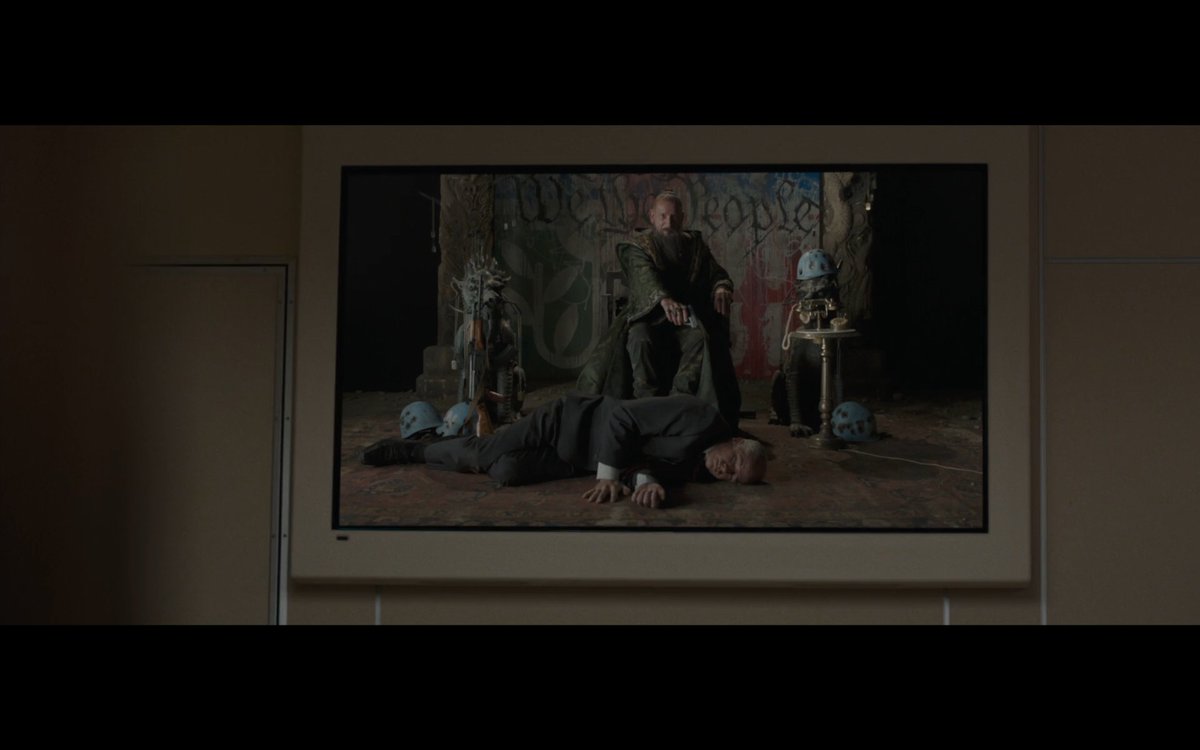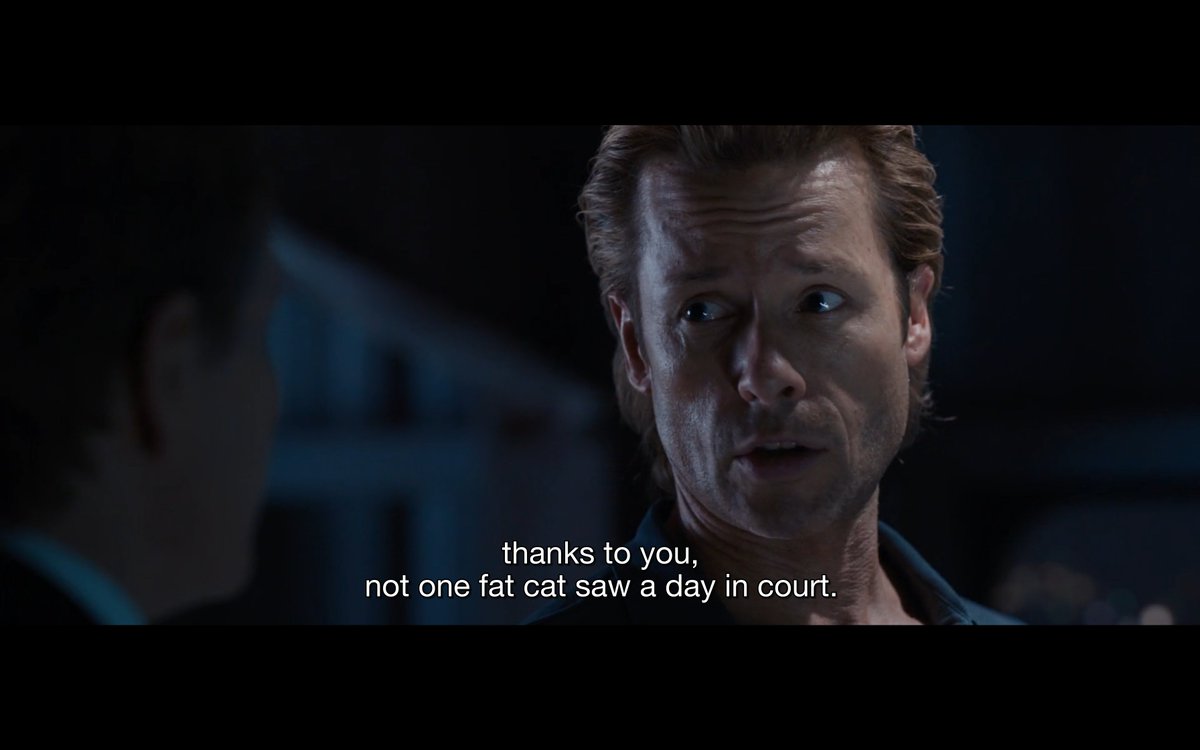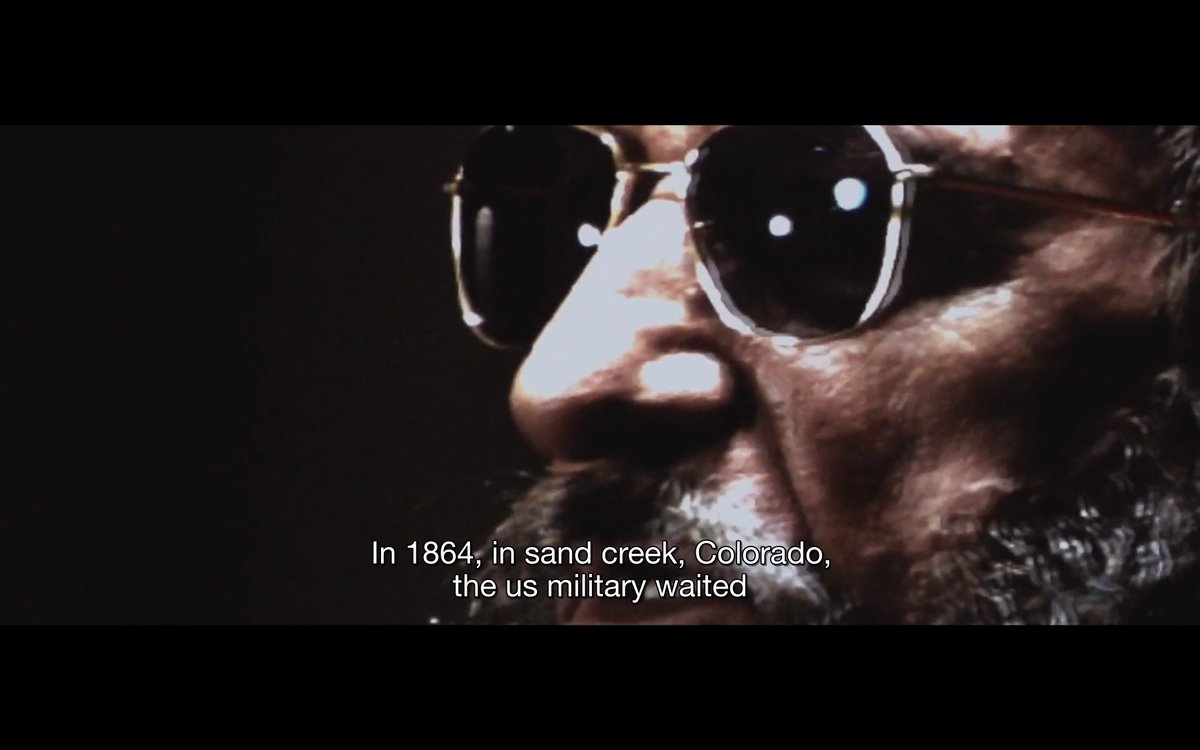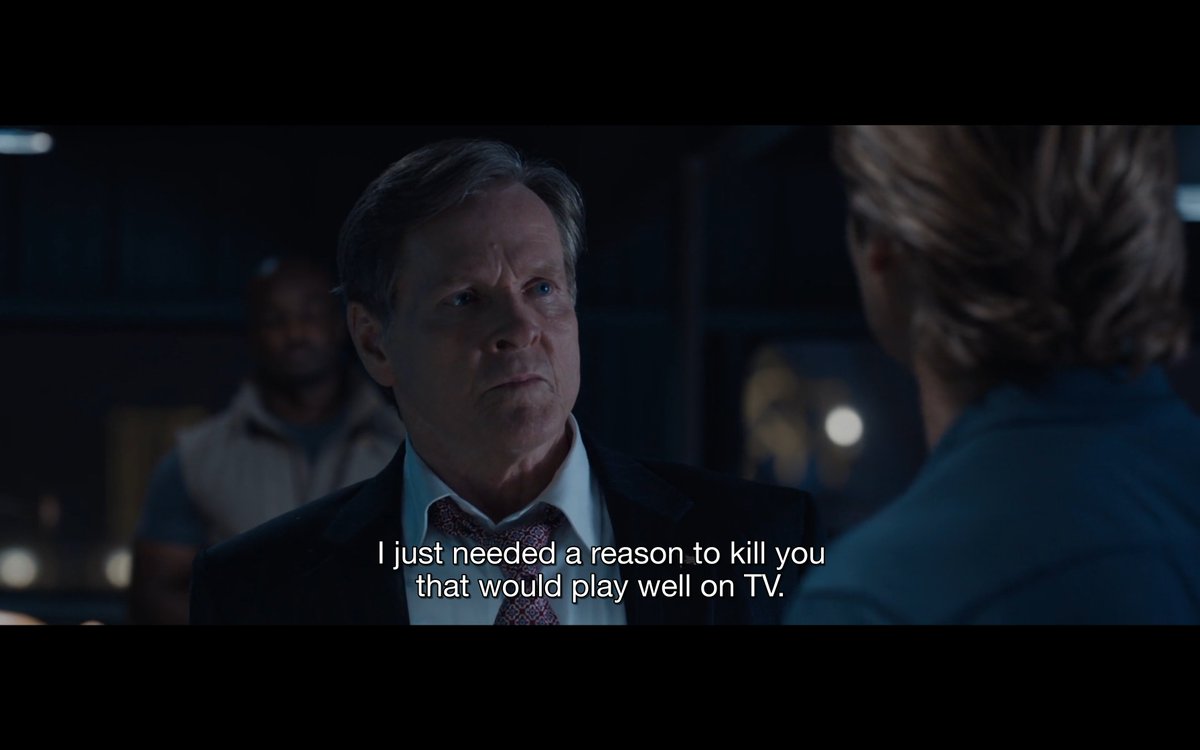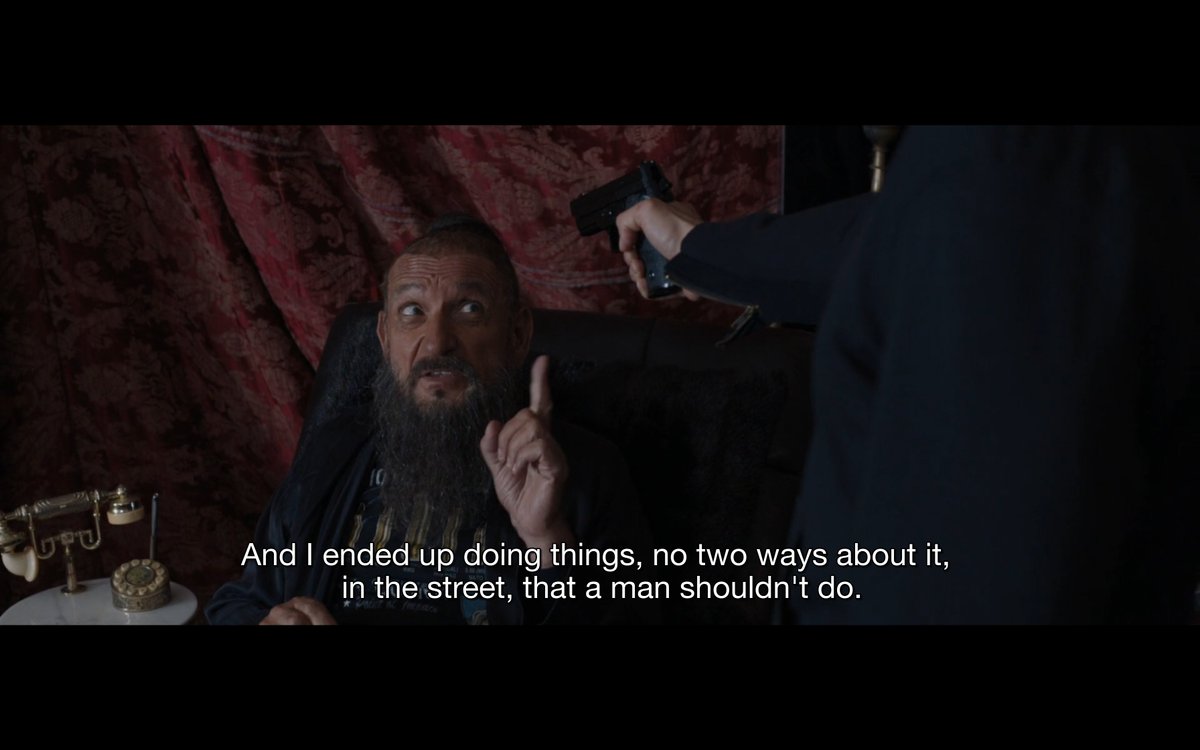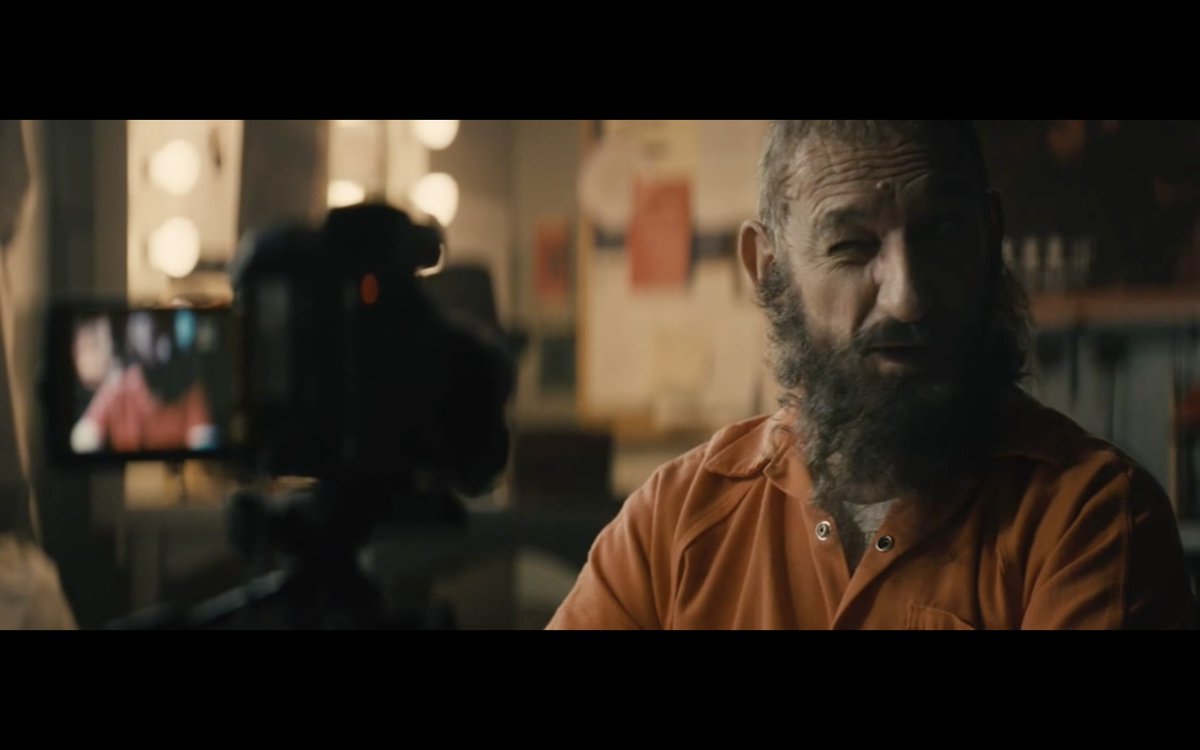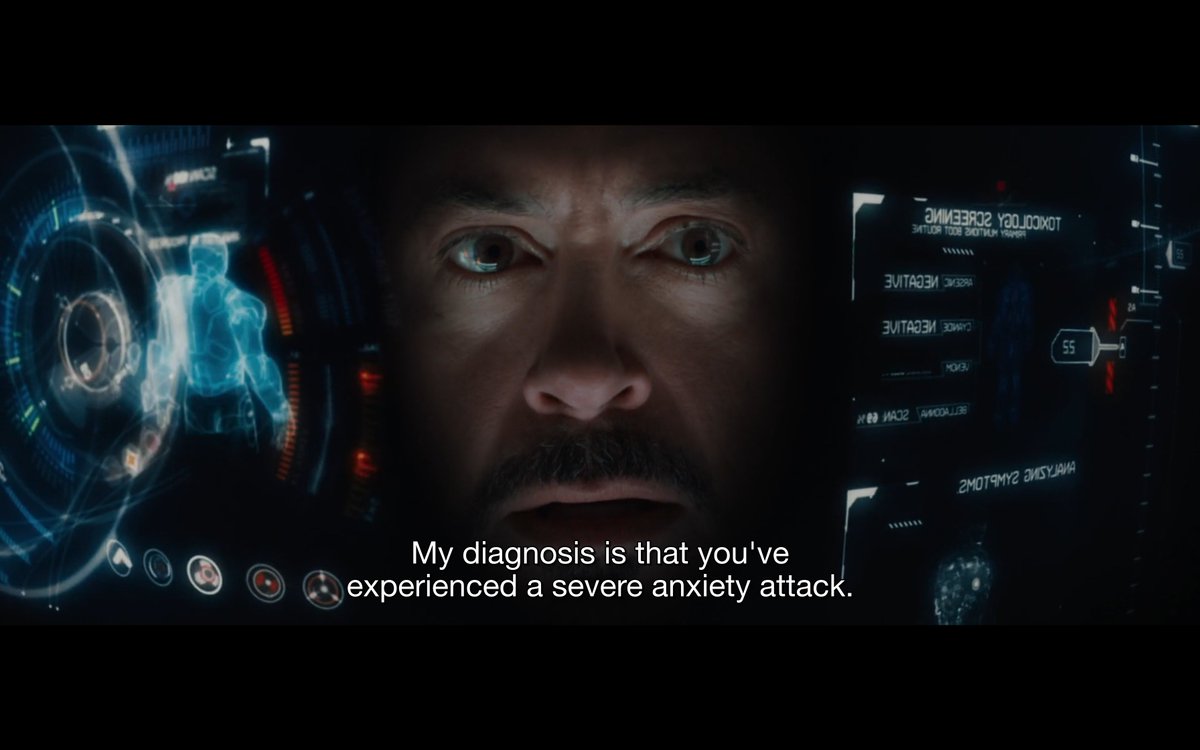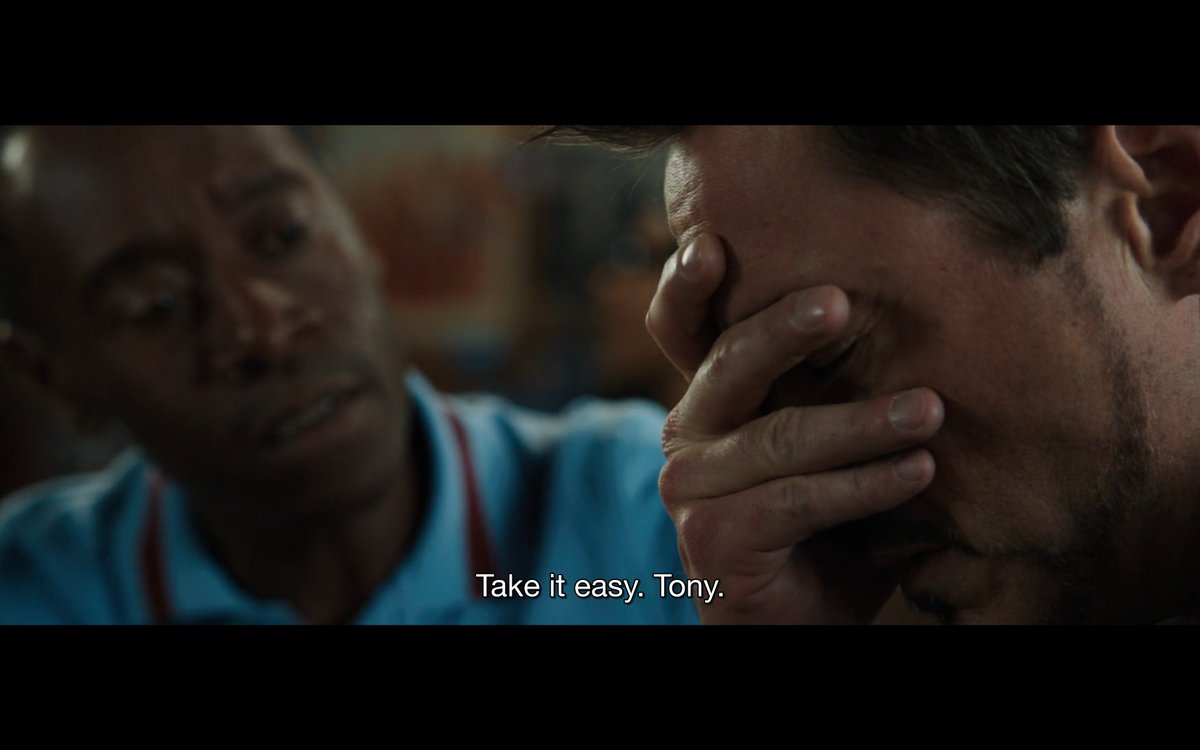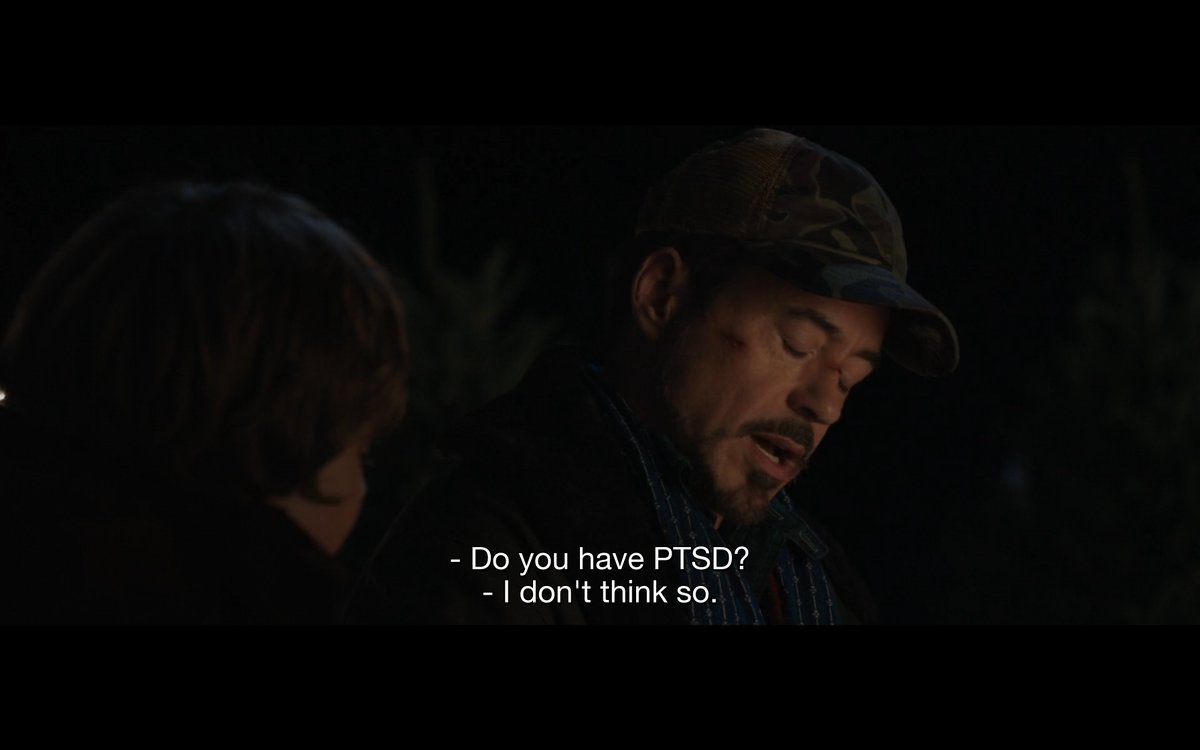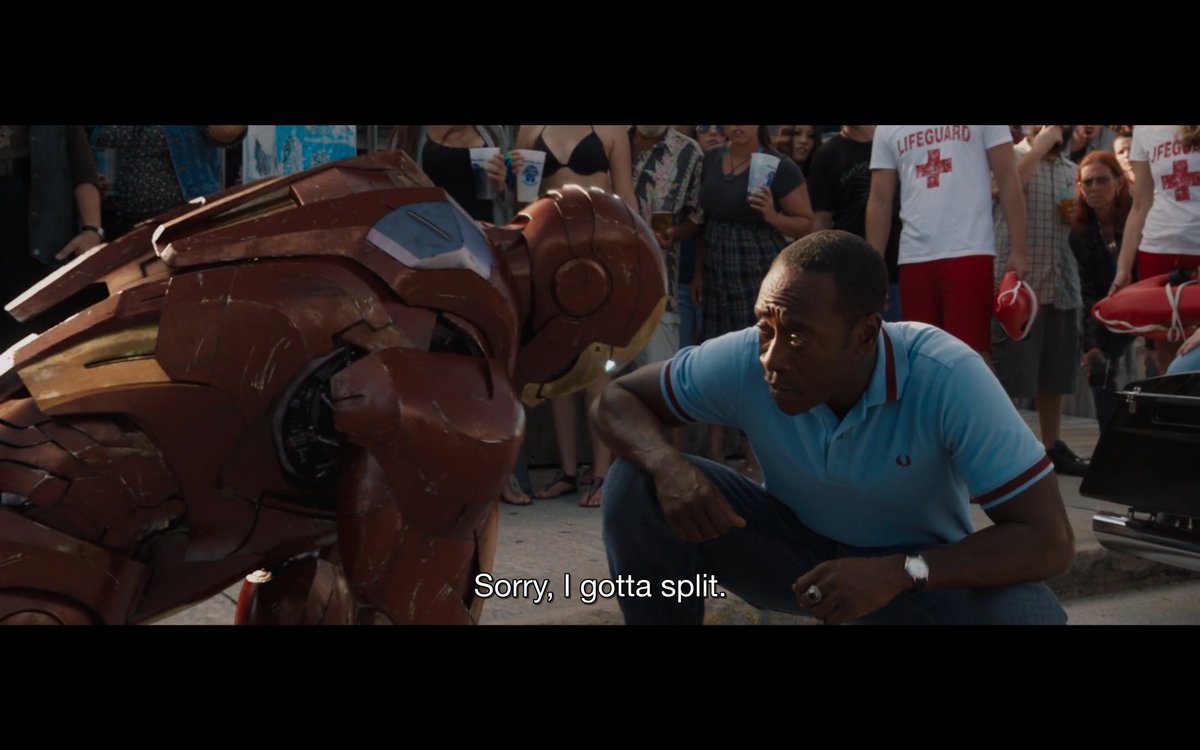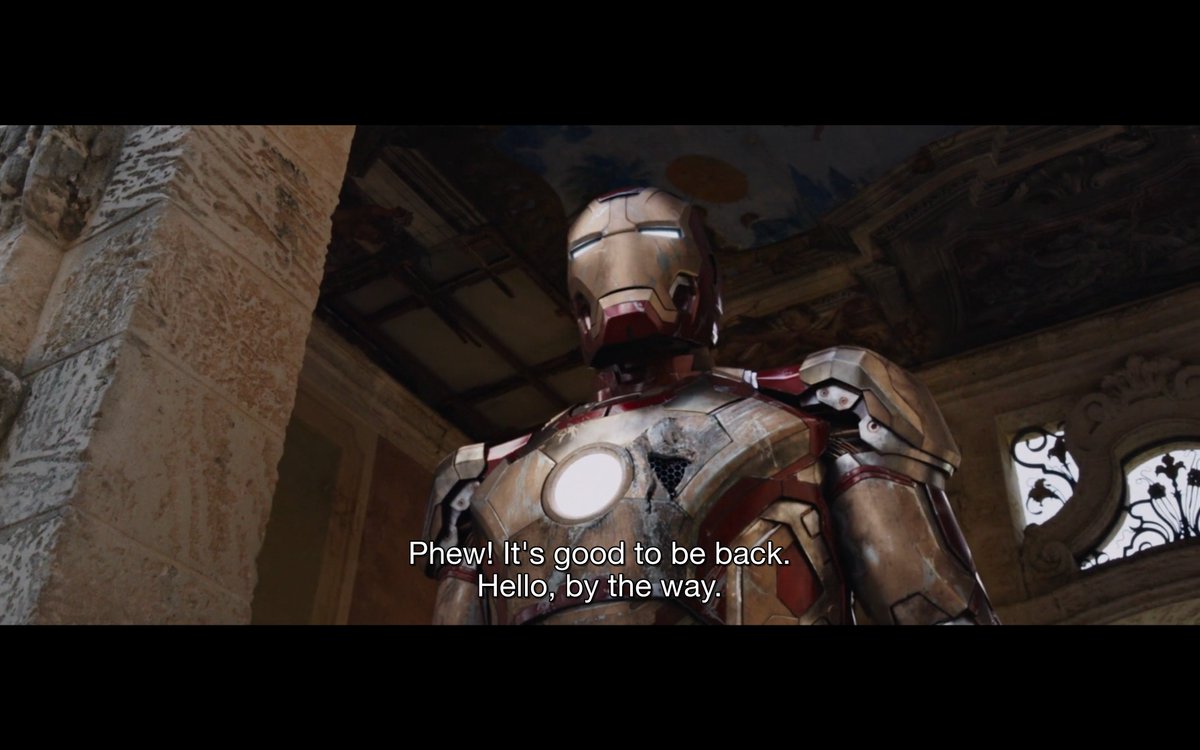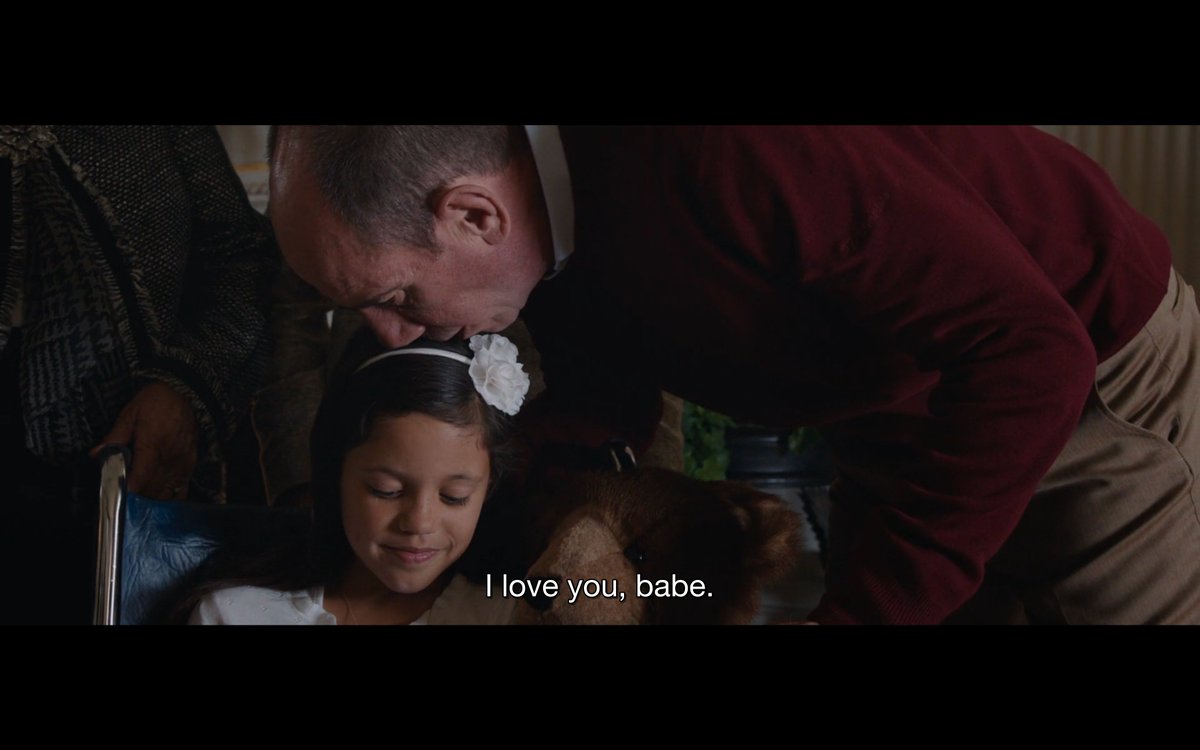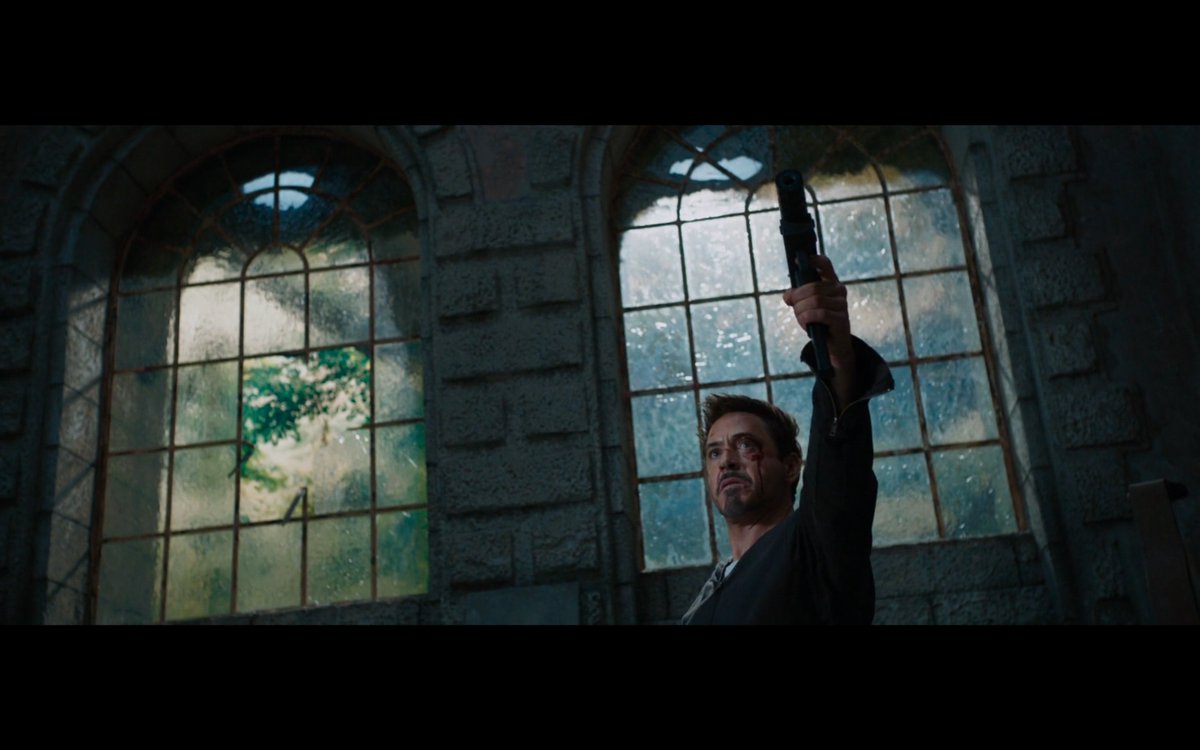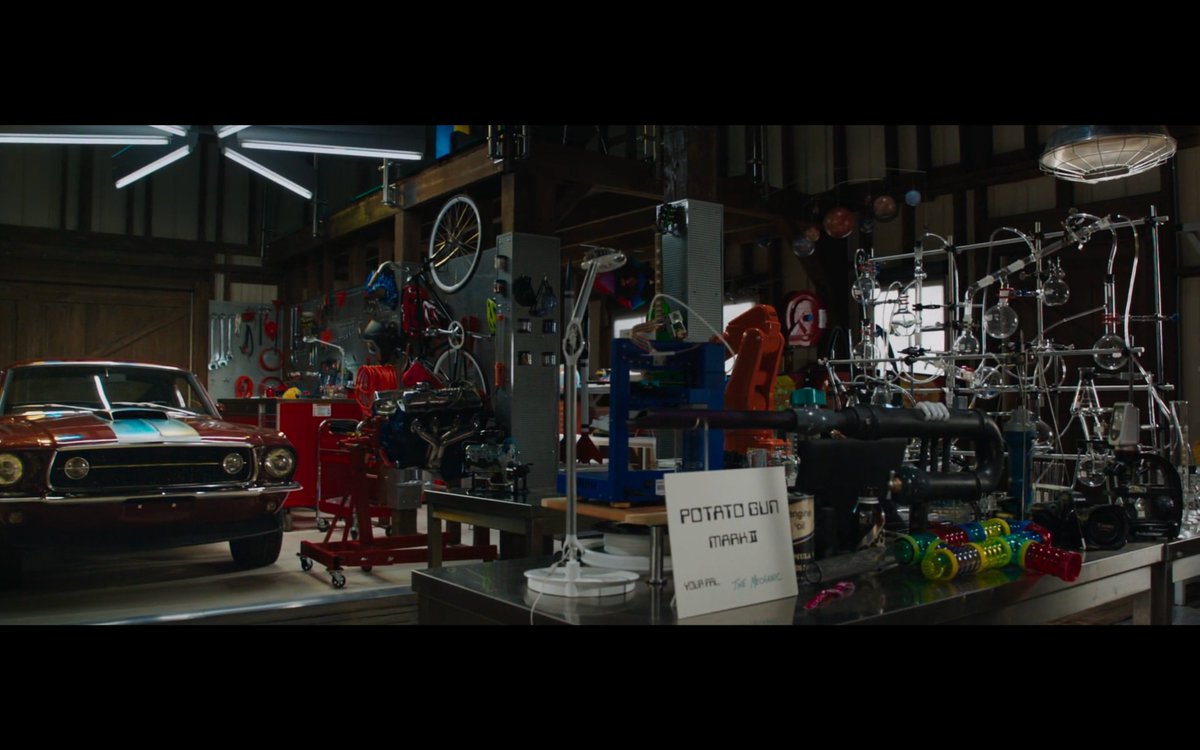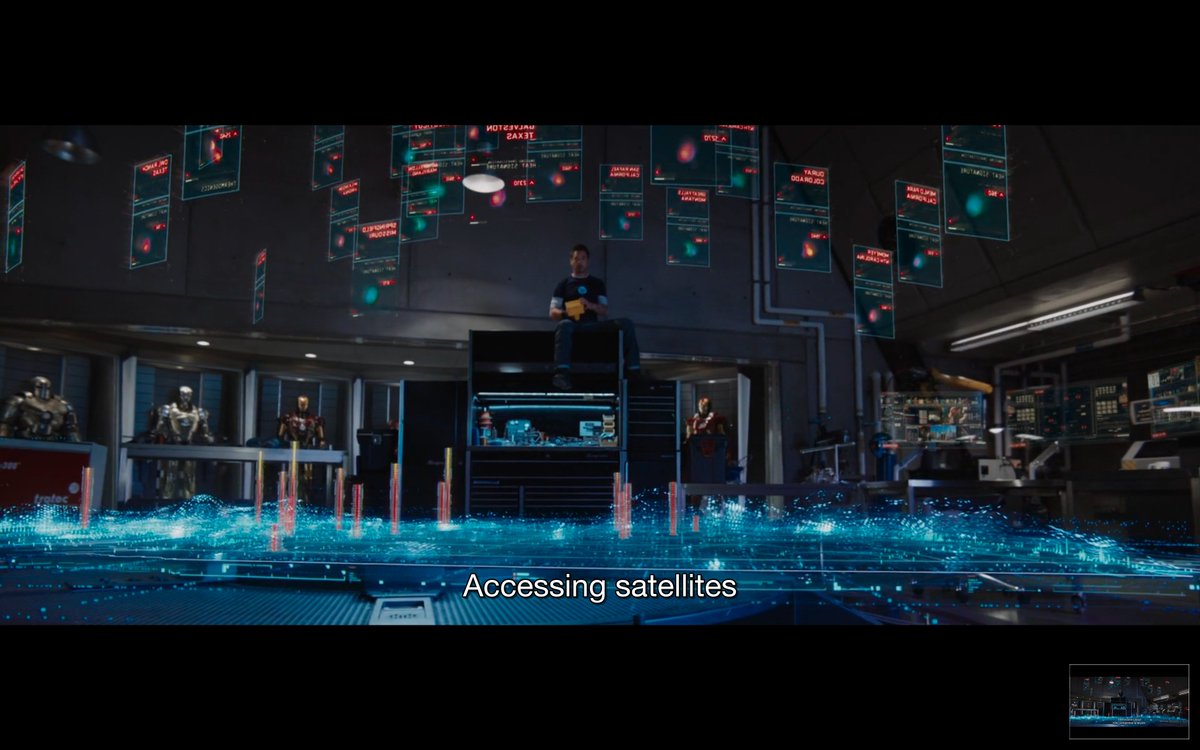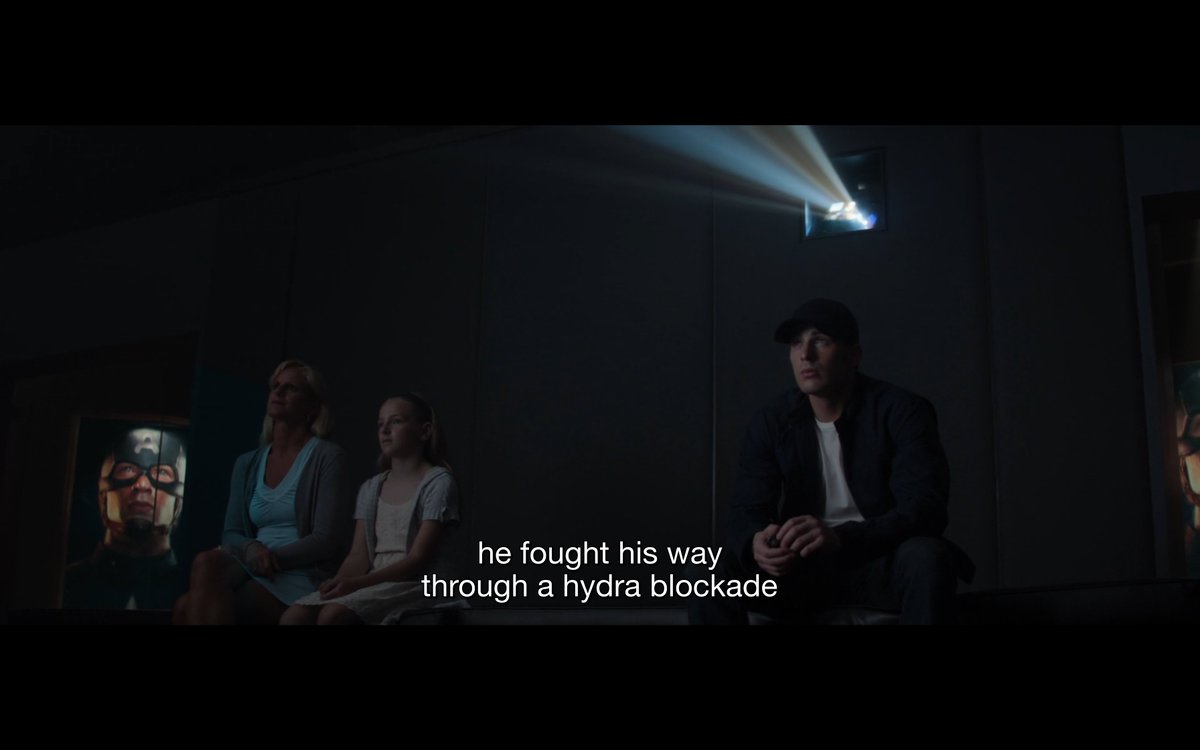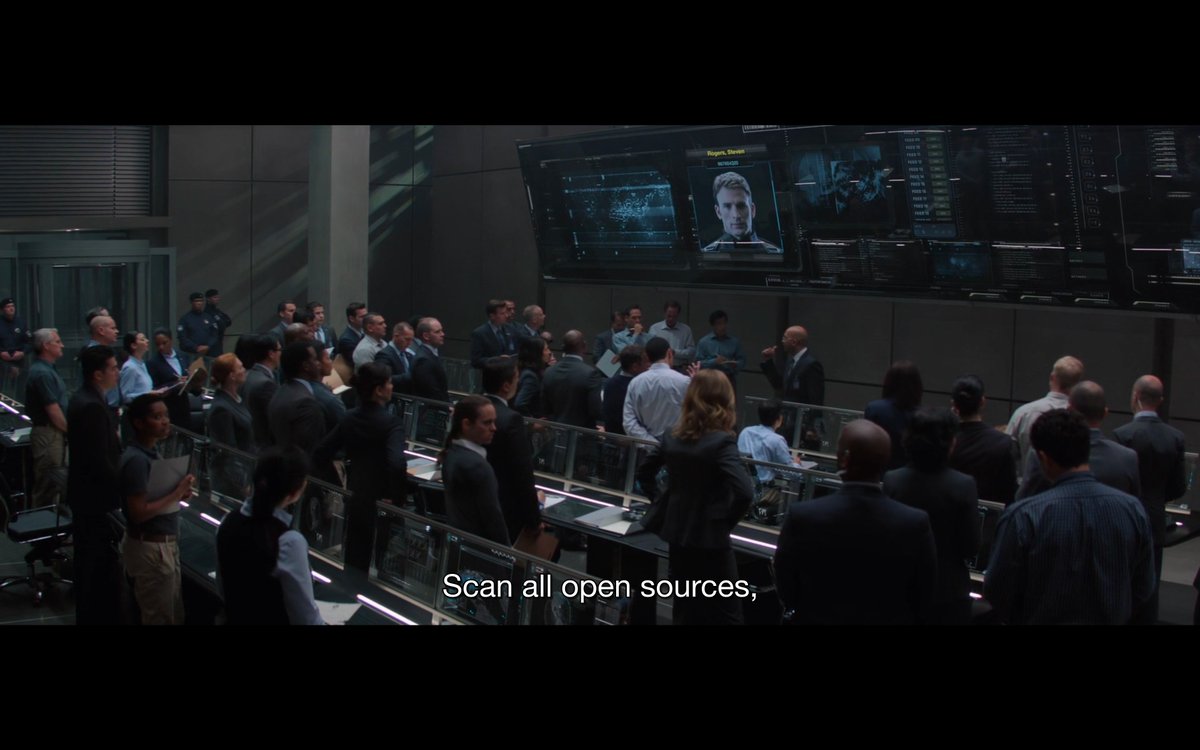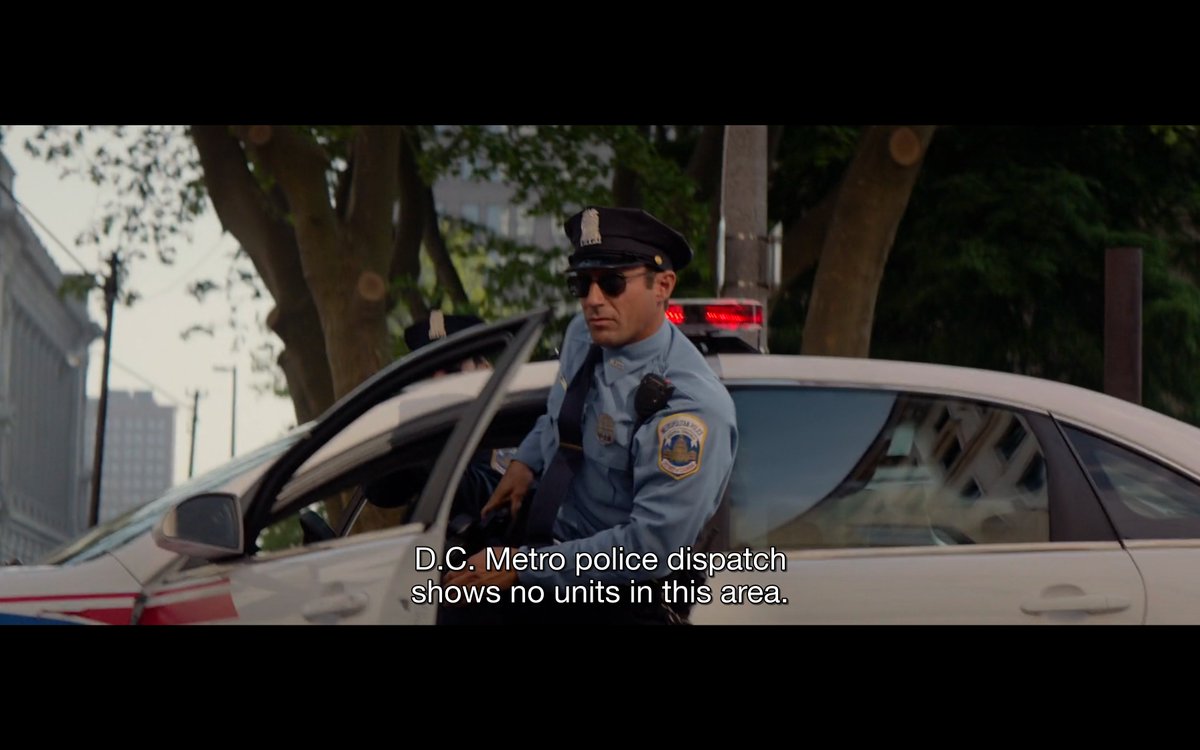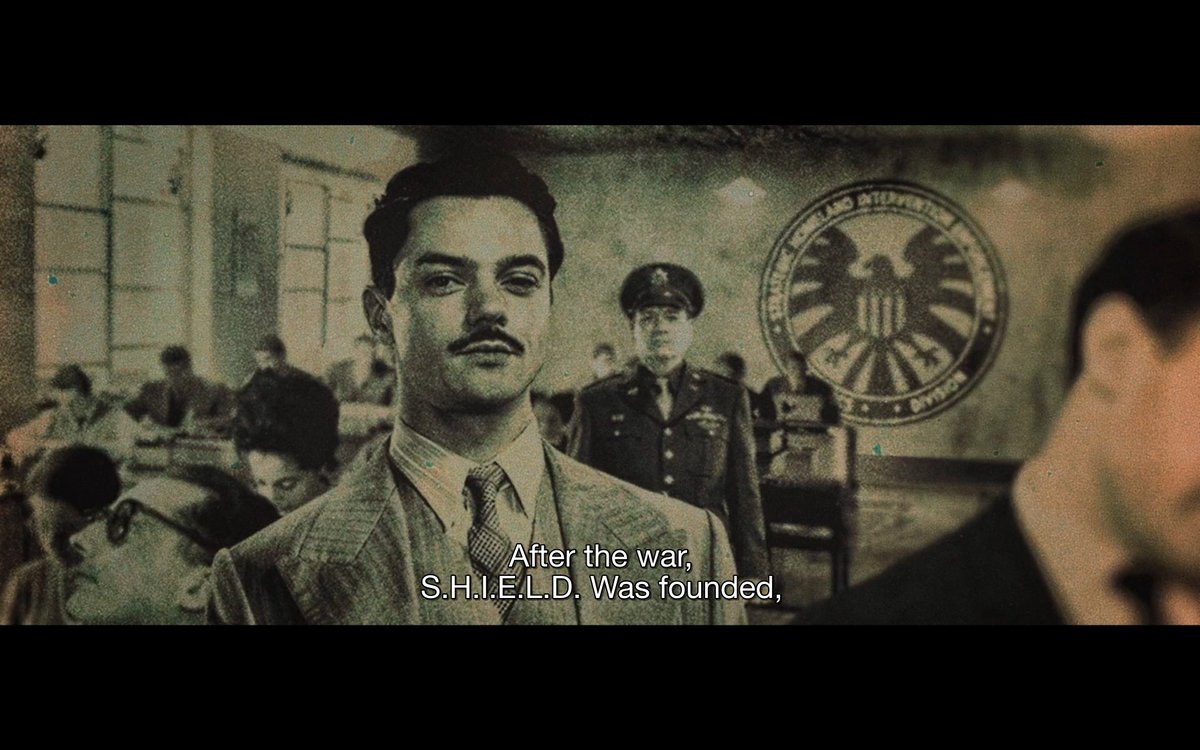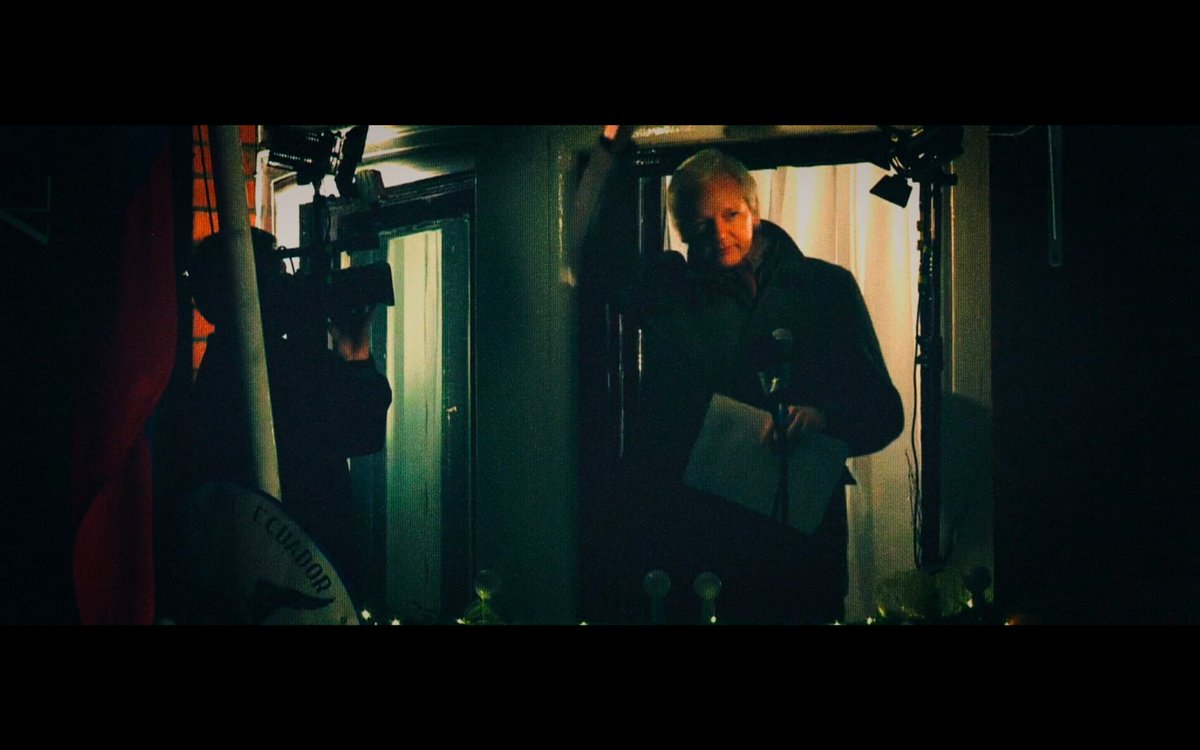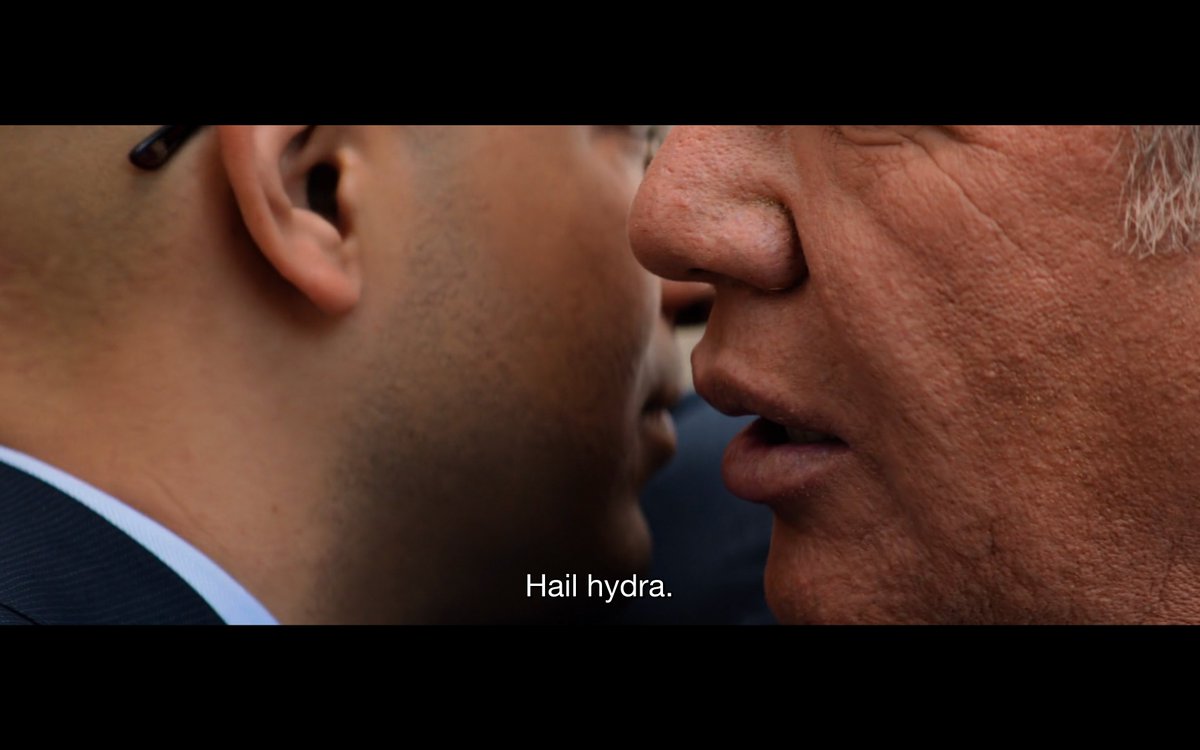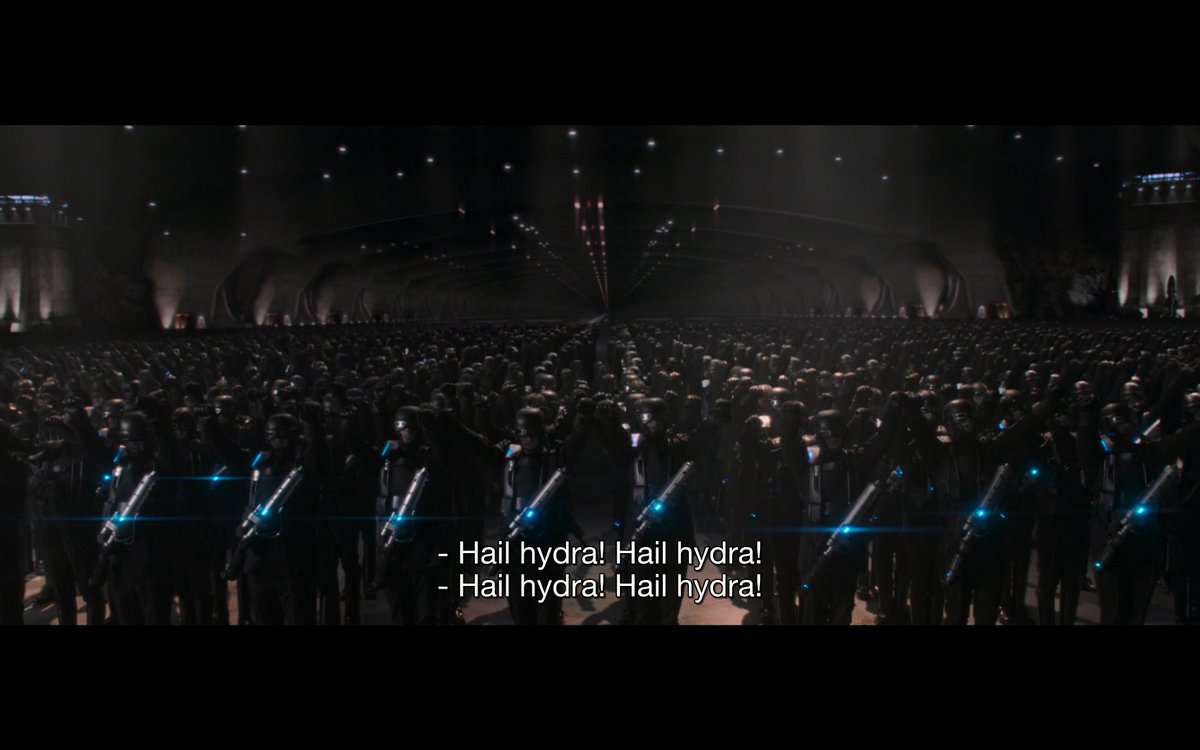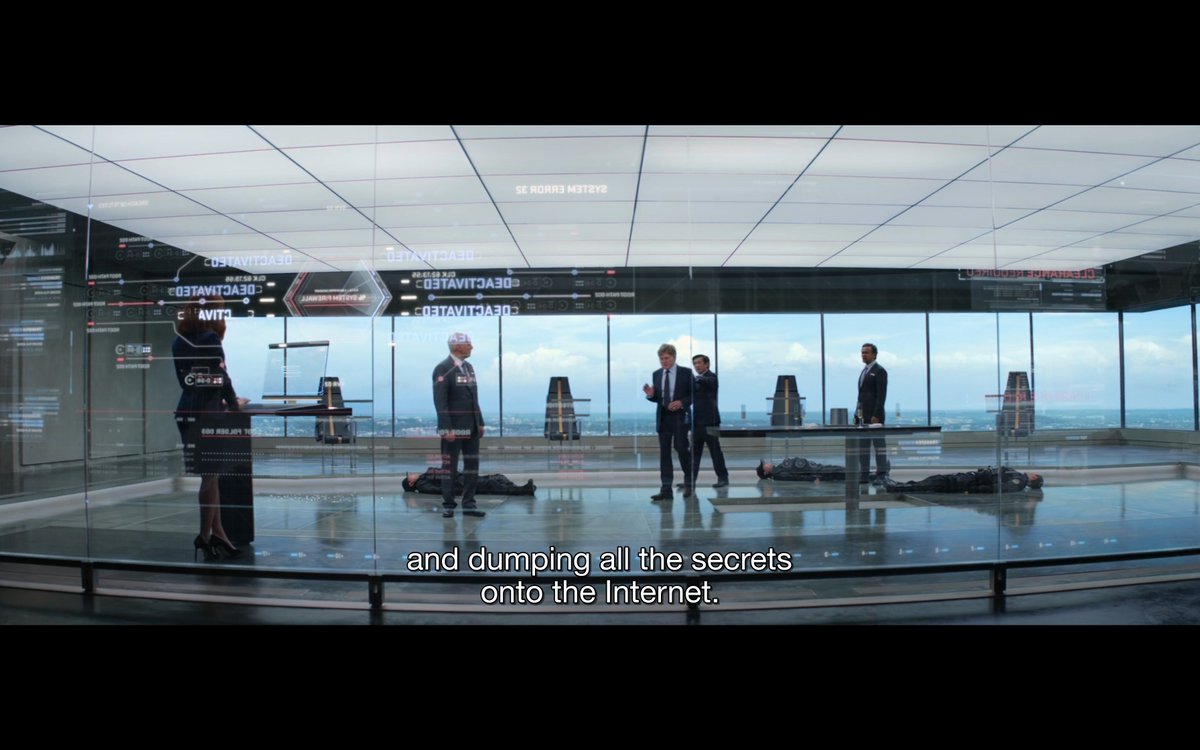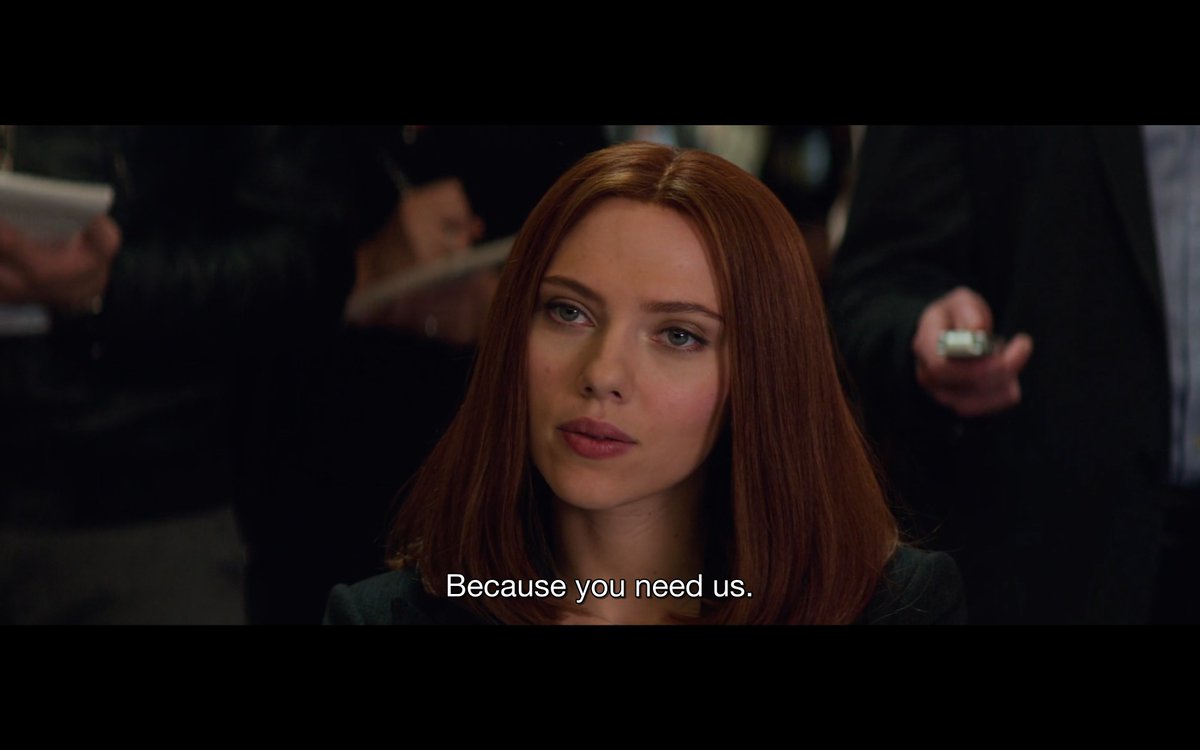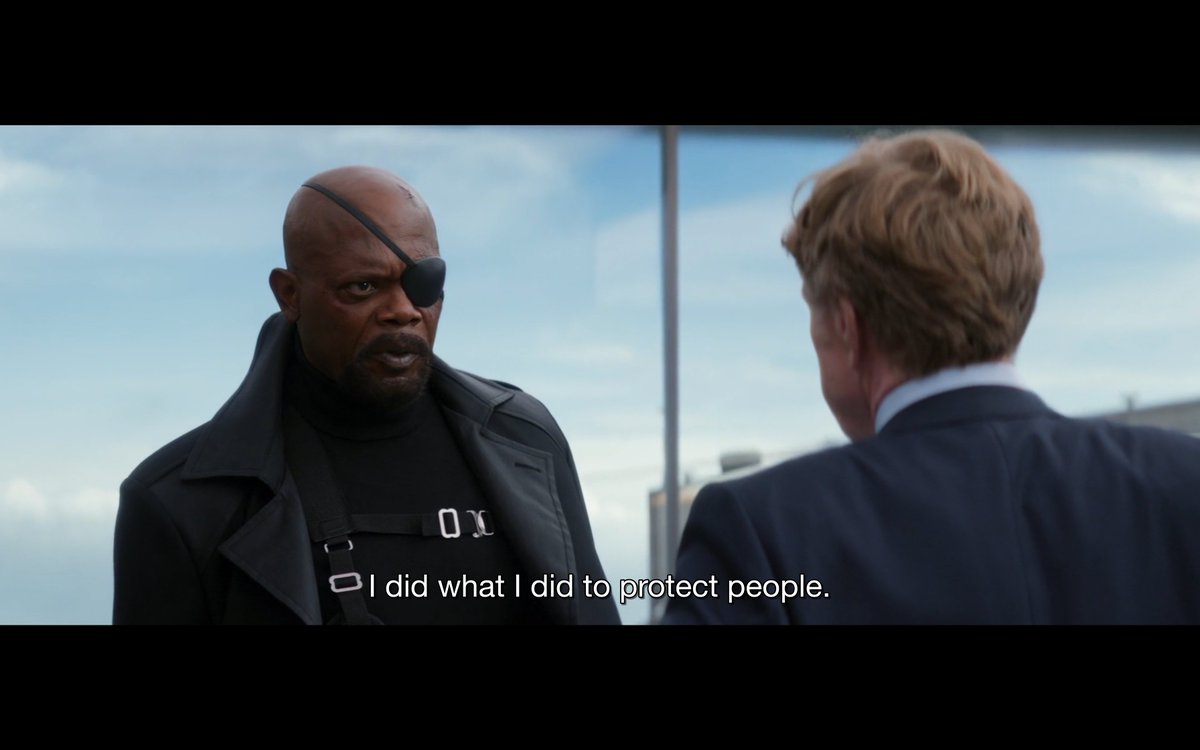Process
Status Items Highlights Done See section below Claims None Questions None Output None
Highlights
id235413964
I’m about to do a critical rewatch of all 23 Marvel movies (in chronological order) looking at negative patterns in how masculinity is presented. This is part of my neverending quest to be super popular with fans ;)
✏️ Thread 🔗 View Tweet
id235413965
As I plan out my next dozen or so video essays deconstructing Hollywood manhood, I noticed that Marvel movies keep showing up as examples again and again. So I might as well put on a pot of coffee and rewatch them all again while taking detailed notes.
id235413966
I’ve seen all the MCU movies before of course, most in the theater, but haven’t seen many of them more than once. I remember my favorite, by a country mile, was Ant-Man and the Wasp. You can probably guess the reasons why.
id235413967
Some questions I always ask myself about male characters when watching media: How do they resolve conflicts? Are they ever vulnerable? If so, do they openly express it and to whom? How do they behave in romantic relationships? Do they ever bond with other men? If so, over what?
id235413968
Since the MCU movies are about superheroes, we also need to be asking questions about power and public accountability, especially as it relates to militarism, unilateral action, and the United States. Under what circumstances is vigilantism or state violence framed as justified?
id235413969
I’m starting with Captain America: The First Avenger, which was released in 2012 but largely takes place in the 1940s. I’m rewatching these in (mostly) chronological order because I want to focus on how each male character arc progresses over time.
id235413970
You could easily write a whole dissertation just on the first Captain America movie but since this is twitter I’ll keep it brief. I’m especially struck by the confused messaging around hypermasculinity in this film. Like a lot of the MCU the writers seem to want it both ways.
id235413972
At first it seems like the message is going to be “what really counts is what’s in a man’s heart,” but that’s undermined by the fact that Steve can’t be a true hero who’s respected by his peers until AFTER he becomes a literal super soldier and proves himself on the battlefield.
id235413973
This is reinforced when the film denigrates all the other ways men helped in the struggle against fascism. They basically mock the idea of factory work, salvaging metal, and morale boosting as being for women and children. Only fighting on the battlefield can make you a real man.
id235413974
Steve Rogers’ other defining characteristic is he’s super polite, in an idealized 1940s kinda way. Aside from some inappropriate jealousy around Peggy, he’s generally respectful of others. But as we’ll see later on, politeness does not a positive example of masculinity make.
id235413975
Captain America will return to this thread soon but now it’s time to watch the MCU introduce their resident lovable sexist arms dealing billionaire in the first Iron Man movie from 2008.
id235413976
Tony Stark treats Pepper Potts like garbage even when he’s being “nice” to her. Yes, I know he becomes less of a dick over the course of many films but she should have quit and left well before that. Don’t let people treat you badly in the hopes that they’ll eventually change.
id235413977
There’s a whole lot of “Don’t do this very cool thing!” going on in the way the production chooses to portray Tony’s playboy lifestyle in this movie. It’s a major pet-peeve of mine when filmmakers do this with their wealthy chauvinist characters.
id235413978
The messages in Iron Man relating to weapons manufacturing and the US military are confused, to put it mildly. Again we see the MCU writers wanting to have it both ways.
id235413979
At first it seems the film is going for a decent message. Tony sees his weaponry used to terrorize people and decides to stop making weapons of war. Ok, cool. But then he turns HIMSELF into a weapon. He embeds weapons of war in his suit and uses them to kill a bunch of bad guys.
id235413980
It’s remarkable how far this movie bends over backwards to portray the US military in a positive light, even after they try to shoot our hero out of the sky. Gotta preserve that partnership to get access to military locations and equipment. Plus cross-promotional branding deals.
id235413981
Turns out that arms dealing is bad because Tony can’t trust that his weapons will only be used by the good and virtuous US military. Middle eastern terrorists might get ahold of them! So the solution is for Tony to personally use and control the most powerful weapon himself.
id235413982
Lastly, there’s a scene near the end where Jeff Bridges gives his villainous speech about how Stark weapons in “the right hands” can be used to bring order to the world. The filmmakers don’t seem to realize he could just as well be describing Tony’s own use of the Iron Man suit.
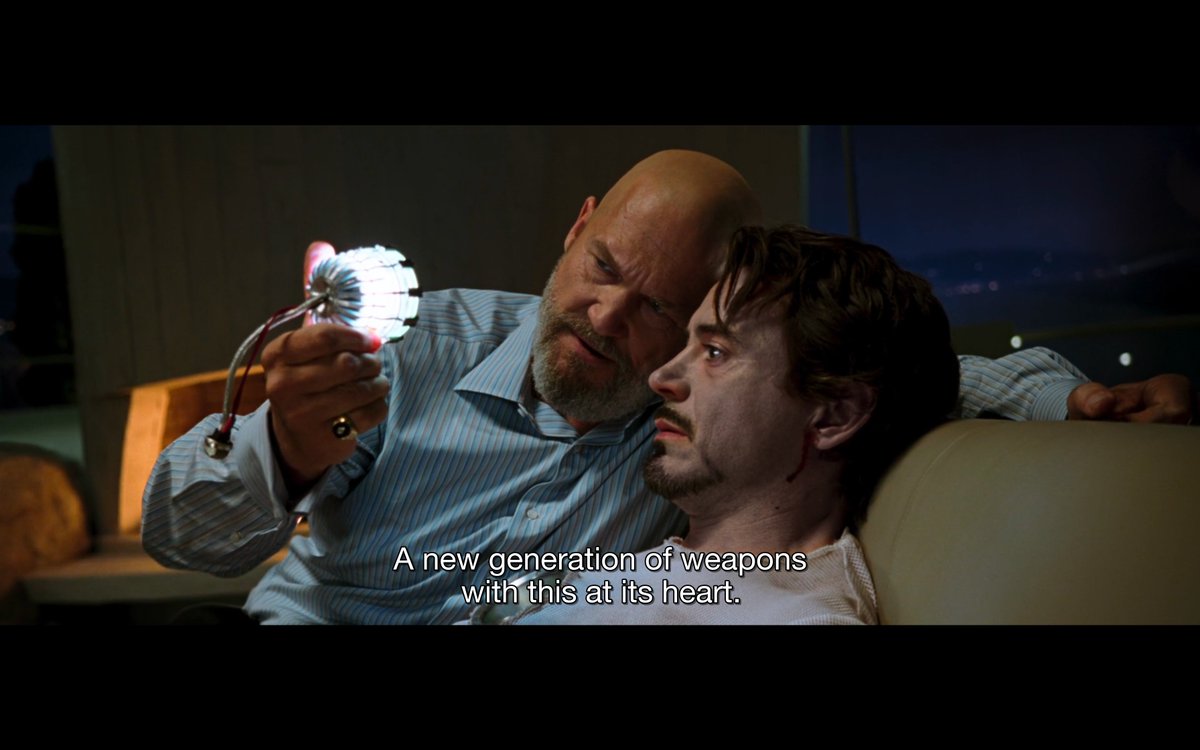
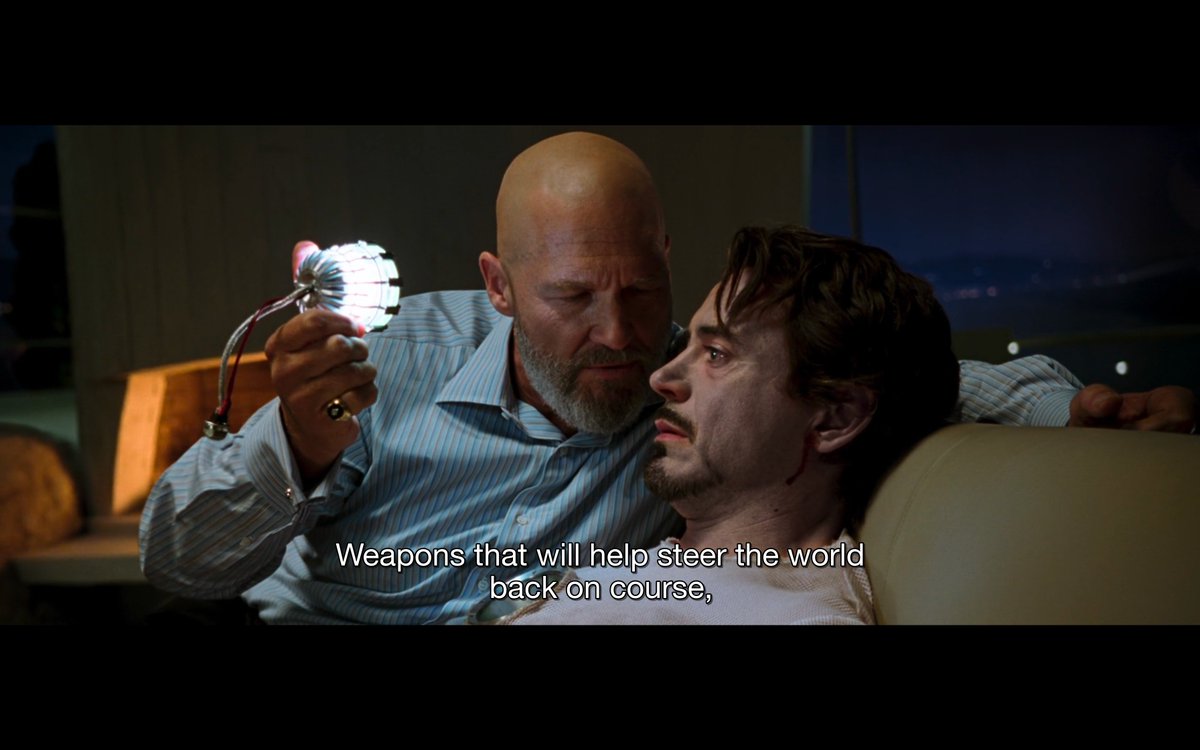
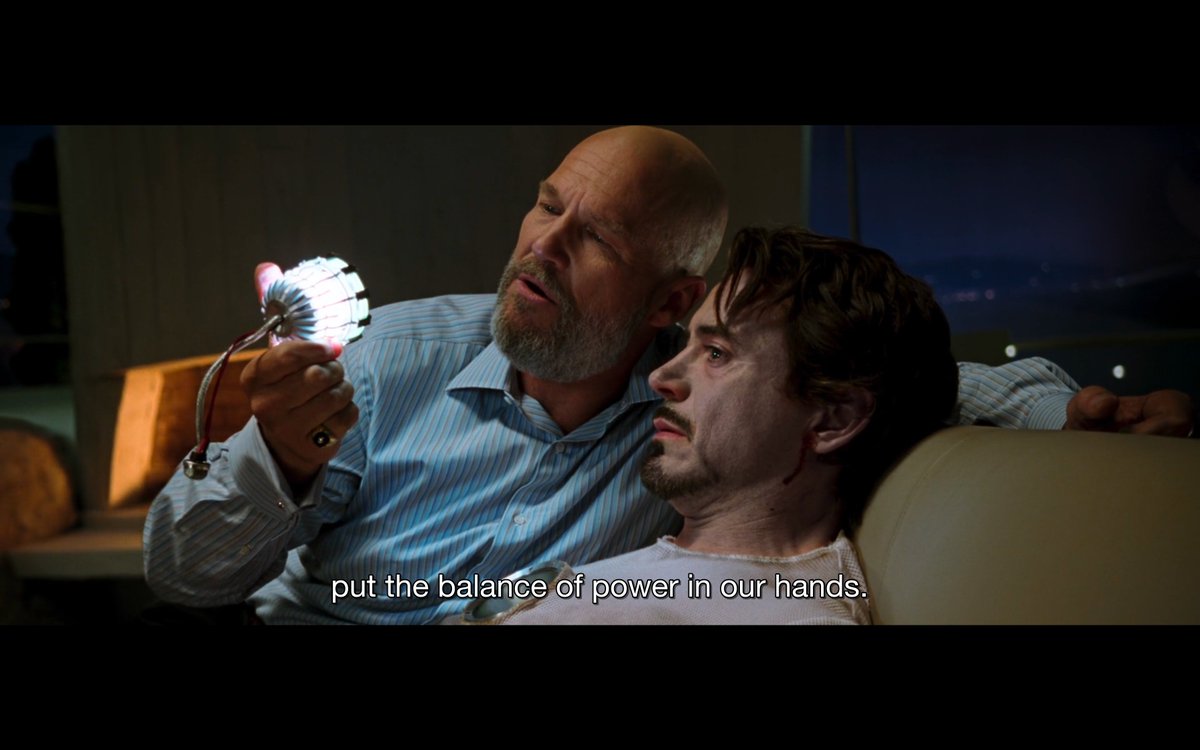
id235413983
There’s obviously a whole lot more to say about Tony Stark and his behavior but now it’s time for Iron Man 2 from 2010. This is the one where Tony makes a “don’t drop the soap” prison rape joke. sigh
id235413984
I’m reading this as I continue my 23 film MCU rewatch. The book was written back in 1993 but it’s still relevant and a useful companion piece for deconstructing manhood according to Marvel.
id235413985
Iron Man 2 (2010) directed by Jon Favreau is where the MCU really starts to coalesce into what can be seen as a coherent ideology, both in terms of its politics and its concepts of heroic masculinity. The themes embedded here can be followed all the way to End Game in 2019.
id235413986
I have 3+ pages of notes from my re-watch of Iron Man 2 so I won’t post all my observations here but I will quickly list some highlights.
id235413987
Iron Man 2 spotlights the MCU’s love affair with guns and gun culture. Odd for a franchise that A) is about superpowers and B) started with tacit criticism of weapons manufacturing. Even when bad guy Justin Hammer is showcasing an arsenal for War Machine, guns are framed as cool.
id235413988
In Iron Man 2 we start to see the MCU’s disdain for the idea of public oversight or accountability for what are really just paramilitary vigilantes with superpowers. Senator Stern is framed as duplicitous and roundly mocked by the film for holding public hearings on the matter.
id235413989
But the MCU is careful to reserve its distain only for the civilian side of government (I.E. the democratic side). Generally speaking the US military is shown in a positive light, even when they steal an Iron Man suit from Tony and create “War Machine” piloted by Col. Rhodes.
id235413990
The question of public accountability for superheroes will become a central theme later in the MCU (sorta-kinda) but even then it ends up splitting hairs and delivering wishy-washy messaging at best. But I’m getting ahead of myself.
id235413991
When it comes to depictions of male vulnerability, Iron Man 2 sets the pattern that we’ll see in a dozen MCU films to come. Tony is struggling with his own mortality and we see a handful of vulnerable moments but this ONLY happens in private. He hides his feelings from others.
id235413992
This is a classic bit of cinematic sleight of hand because we, as the audience, see male heroes experience moments of vulnerability but they rarely share those feelings with other characters or ask for help. If they do share, it’s usually after they’ve “solved it” on their own.
id235413993
Iron Man 2 also gives us our first of many fights between the male heroes. Basically all problems in the MCU are resolved via violence, even interpersonal ones. Tony is spiraling so Rhodes stages an intervention but because these are tough guys it takes the form of face punching.
id235413994
Iron Man 2 introduces the MCU’s first female superhero in Black Widow and wastes no time in having Tony, Happy, and especially the camera ogle her. This behavior is lampshaded in the dialogue but it’s ultimately played off as harmless, just “guys being guys.”
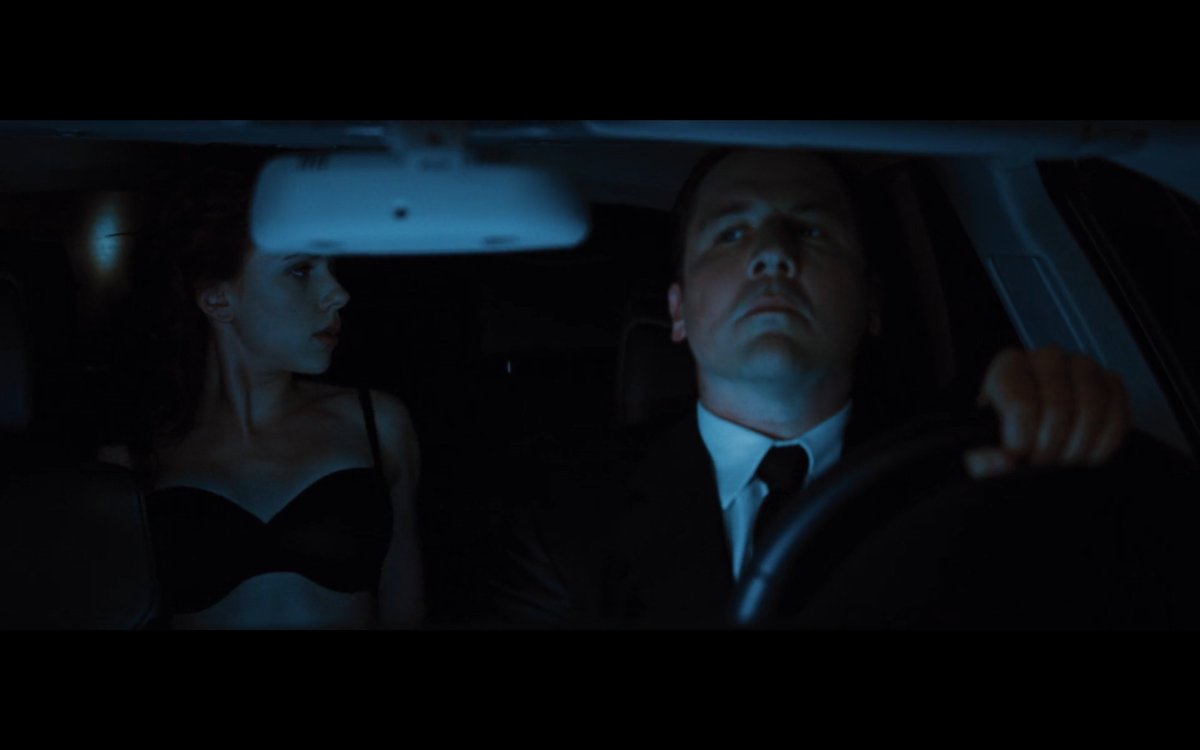
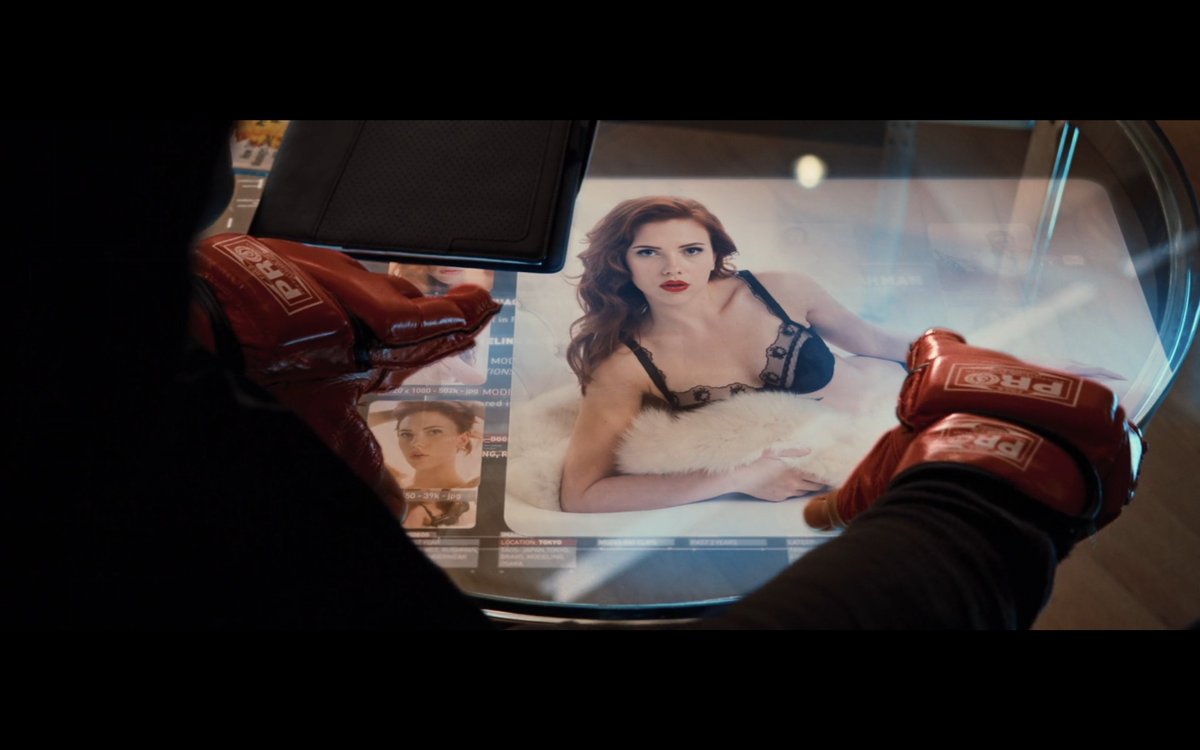
id235413995
I know I’m spending a lot of time on Iron Man 2 but as I said it really sets the tone for the MCU as a whole. For example, it gives us the first (of many) butt shots of a female hero. It wouldn’t make it any better, but you won’t see men framed this gratuitously by the camera.
id235413996
Another trend we see in Iron Man 2 has to do with how male friendships are depicted in the MCU. Tony and Rhodes mend their relationship and bond by the end of the movie but not through communication or mutual emotional support. Instead it’s through a joint exercise in violence.
id235413997
Admittedly this is a relatively minor aside but I hate that Tony treats his robot helper in an abusive way and then the robot makes sad pitiful sounds and movements in response and it’s all supposed to be hilarious.
id235413998
If there was any doubt about how the MCU views billionaires, Iron Man 2 features an Elon Musk cameo. In these movies the world doesn’t need public institutions or a functioning civil society, it just needs “great men” to fix everything for us (after they break it.)
id235413999
Let’s not forget this scene where Tony and Pepper mock Justin Hammer’s masculinity by shaming an investigative journalist for having slept with Tony in the previous film. Having Pepper join in on the shaming is especially ugly. It’s all played for laughs of course.
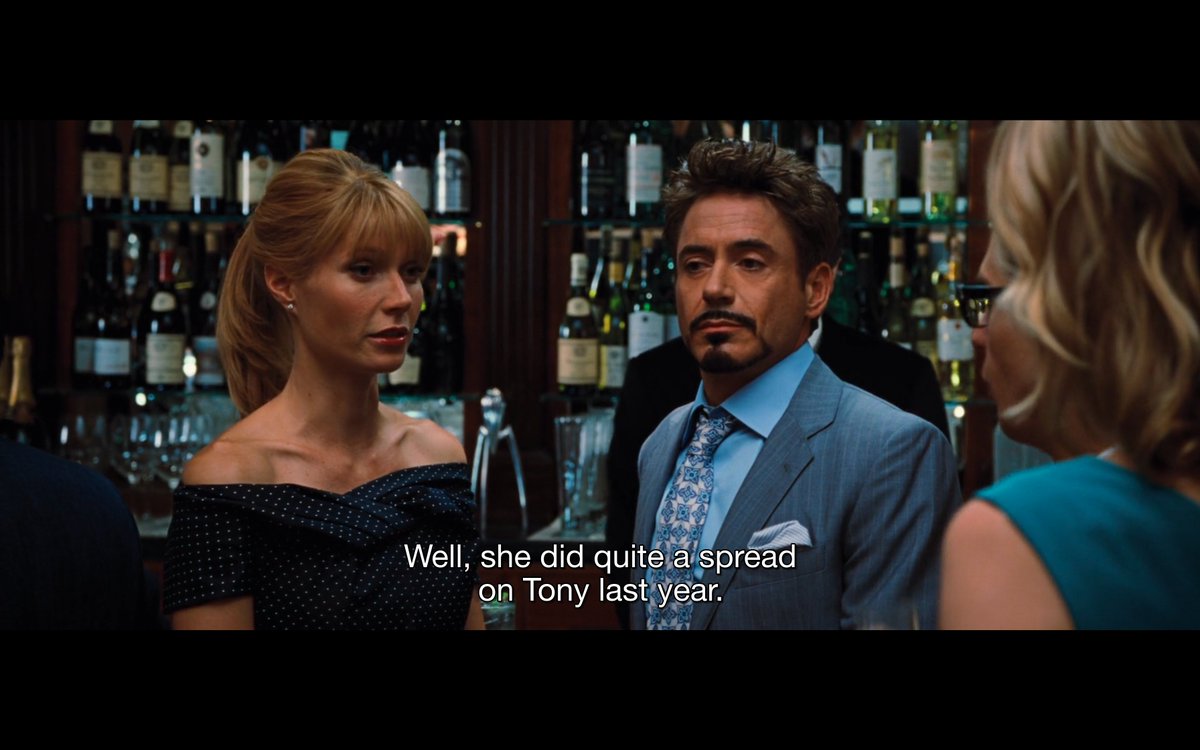
id235414000
Anyway there’s a lot more to discuss in Iron Man 2 (especially as it relates to the confused framing of Tony’s recklessness, his arrogance, and his continued terrible treatment of Pepper) but we’ll return to all that in later movies.
id235414001
Now it’s time for The Incredible Hulk (2008). This is an odd one because it feels so different in tone from the rest of the MCU.
id235414002
Before we go any further, I just want to reiterate that I’m not here to review these movies. That is to say, I’m not interested in telling you if they are “good” or “bad” cinema. I’m doing a critical investigation of sociological themes and messages embedded in the MCU.
id235414003
The Hulk is one of the most troubling MCU characters in terms of the masculinity messaging. He’s a thoughtful mild-mannered man who transforms into a violent monster whenever he gets upset. After his rampages he turns back into a “nice guy” who isn’t responsible for his actions.
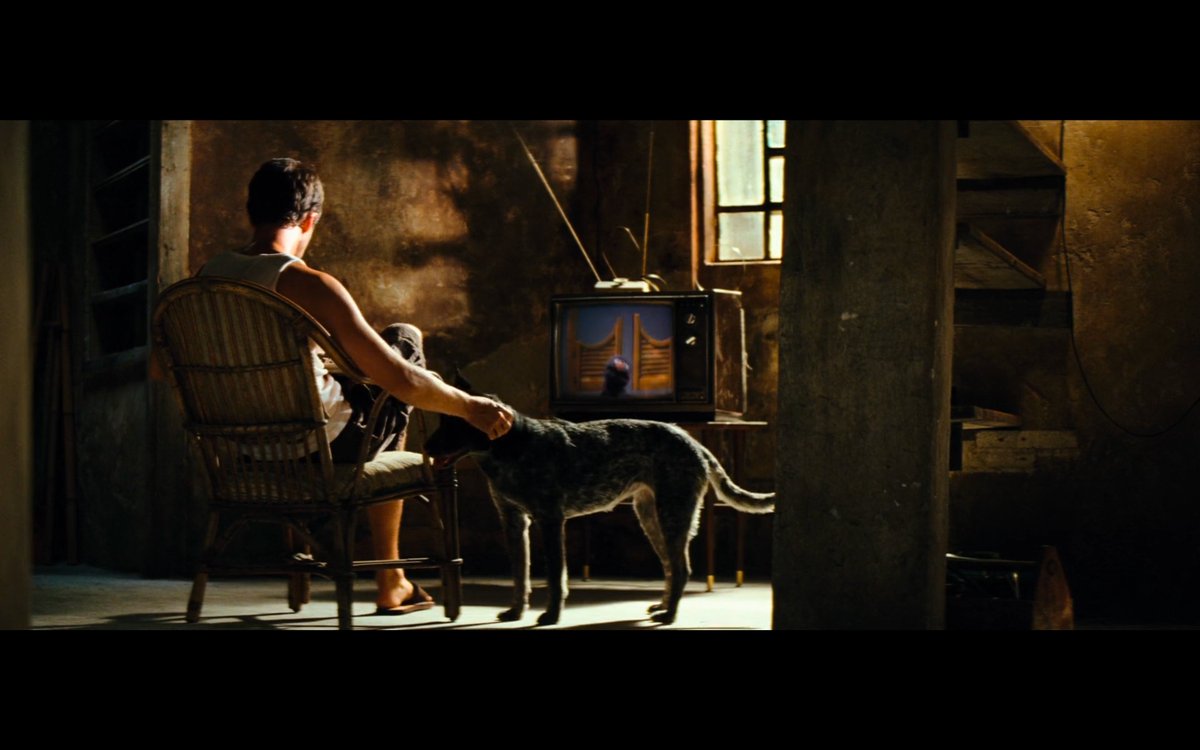
id235414004
It’d be one thing if The Incredible Hulk was just about a man learning how to manage his anger. But that’s not the story. This movie is about a man who learns to “aim” his violent rage in the appropriate direction. Male rage is framed as useful and even necessary to defeat evil.
id235414005
Bruce Banner, for his part, wants to find a cure for his Hulk side and feels remorse after each violent rampage. This framing reflects what’s referred to as the cycle of abuse wherein abusers will express regret after an attack before doing it again later. https://t.co/KSCW5BO3hO
id235414006
The narrative choice to have a “special woman” be the only one who can calm The Hulk’s violent rage is particularly disturbing. A common misconception is that women can fix men’s anger or violence with their love. In reality, those closest to abusers bear the brunt of their rage.
id235414007
In the last shot of The Incredible Hulk we see Banner going it alone again and trying to fix himself in isolation without anyone else’s help. This is framed as good and noble but honestly what he really needs is a therapist. We very rarely see men in therapy in Hollywood movies.
id235414008
A final note on The Incredible Hulk, I think this is the only MCU movie where the US Military is depicted in a negative light. I’m gonna guess Marvel hadn’t cemented their long-term partnership with the US Department of Defense back in 2007. Plus this one was filmed in Canada.
id235414009
We’ll return to The Hulk again later but I’ll leave it with these quotes from bell hooks fantastic book “The Will to Change.” She’s talking about The Incredible Hulk TV show here, which ran from 1978 to 1982, but I think her analysis could be applied to the MCU Hulk as well.
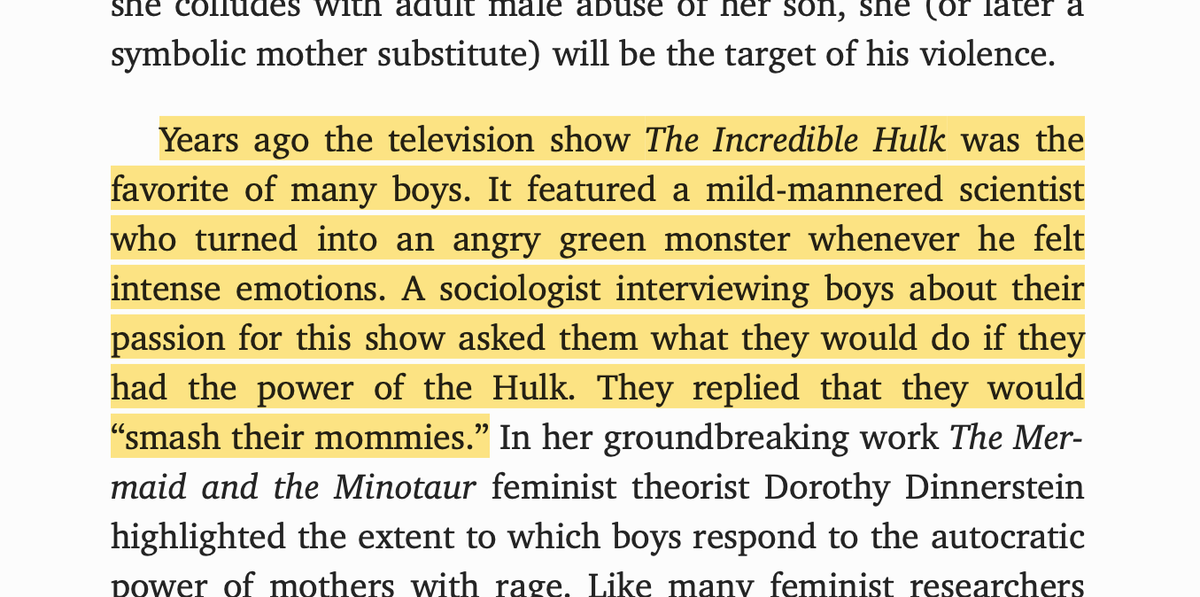
id235414010
Next up we have Chris Hemsworth in Thor (2011)
id235414011
The story of the 1st Thor movie is pretty standard stuff. An arrogant, selfish, and entitled prince must be humbled by having his station and power taken away until he learns his lesson, thus proving he’s wise enough to rule. It’s all about earning the right to wield power.
id235414012
Odin introduces Thor’s hammer as something that can either be “a weapon to destroy” or “a tool to built” but it’s just used as a weapon to bash people’s heads in like 99% of the time in these movies.
id235414013
It strikes me that this scene in the 1st Thor movie where Odin explains his philosophy on the use of force doubles as both the message of the movie and as an ideology of the larger MCU. Essentially “don’t strike first but always be ready to utterly dominate any challenger.”
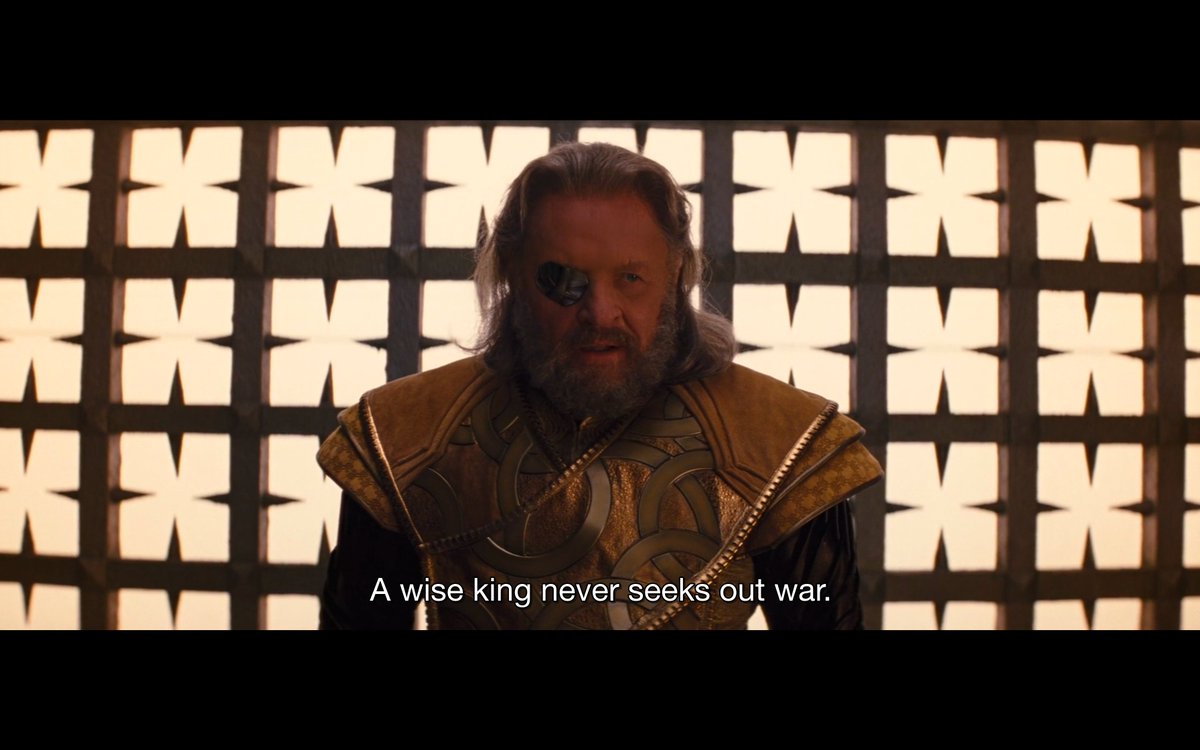
id235414014
Notice the ultimate message of Thor (and the MCU more generally) isn’t that no one should be given the authority to engage in the unilateral use of force. Rather the message is that only “truly great men” should be given the authority to engage in the unilateral use of force.
id235414015
It’s important to note here that the four main Phase One superheroes (Captain America, Iron Man, The Hulk, and Thor) are all framed as living embodiments of weapons of mass destruction. They are even explicitly described as such at various points in the dialogue.
id235414016
The problem, we are told by the MCU, isn’t weapons of mass destruction. The problem is weapons of mass destruction in the “wrong hands.” In the “right hands” those weapons can be tools of peace. Sound familiar? It’s a perfect distillation of US military/nuclear policy.
id235414017
So how do we know which men are truly great? So great they should be entrusted with the authority to engage in vigilante violence whenever they see fit? According to Marvel the answer is heroic suicide. Great men in the MCU all choose to sacrifice themselves for the greater good.
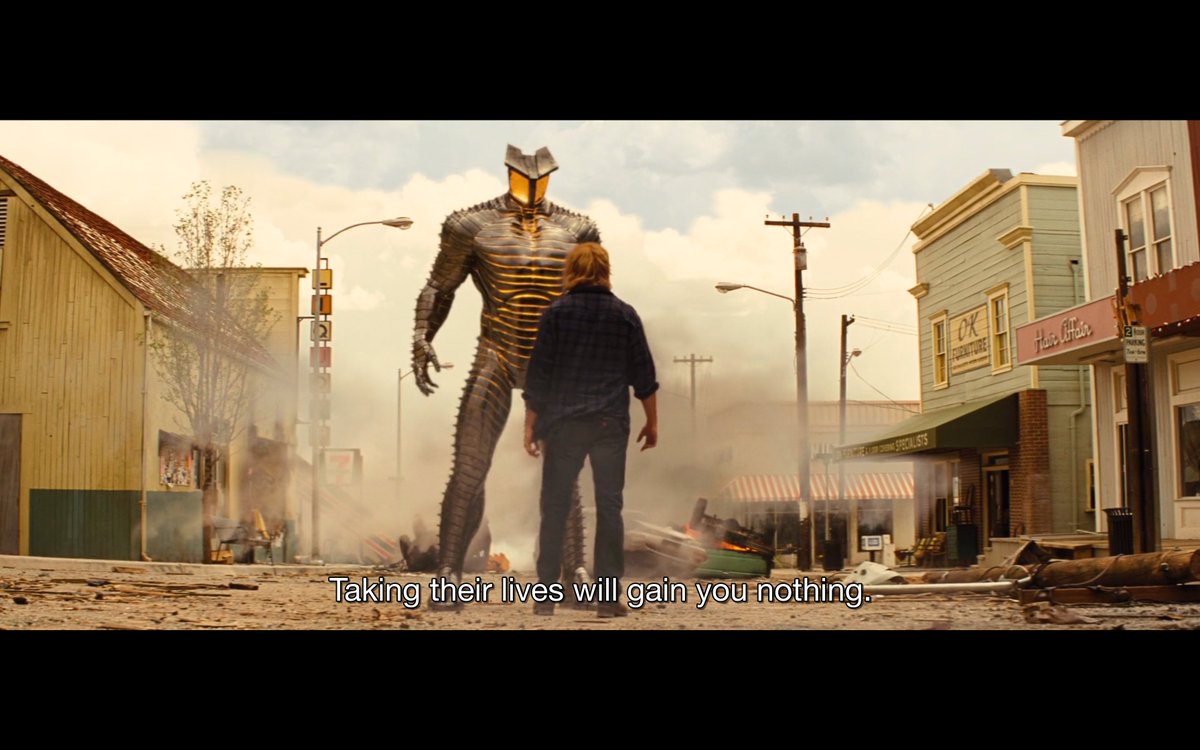
id235414018
Each MCU hero is given an elaborate scenario wherein they choose to sacrifice themselves. Thor gives himself up to The Destroyer. Steve goes down with the Valkyrie. Banner jumps out of a helicopter. Tony flies a nuke into the wormhole in Avengers…but I’m skipping ahead again.
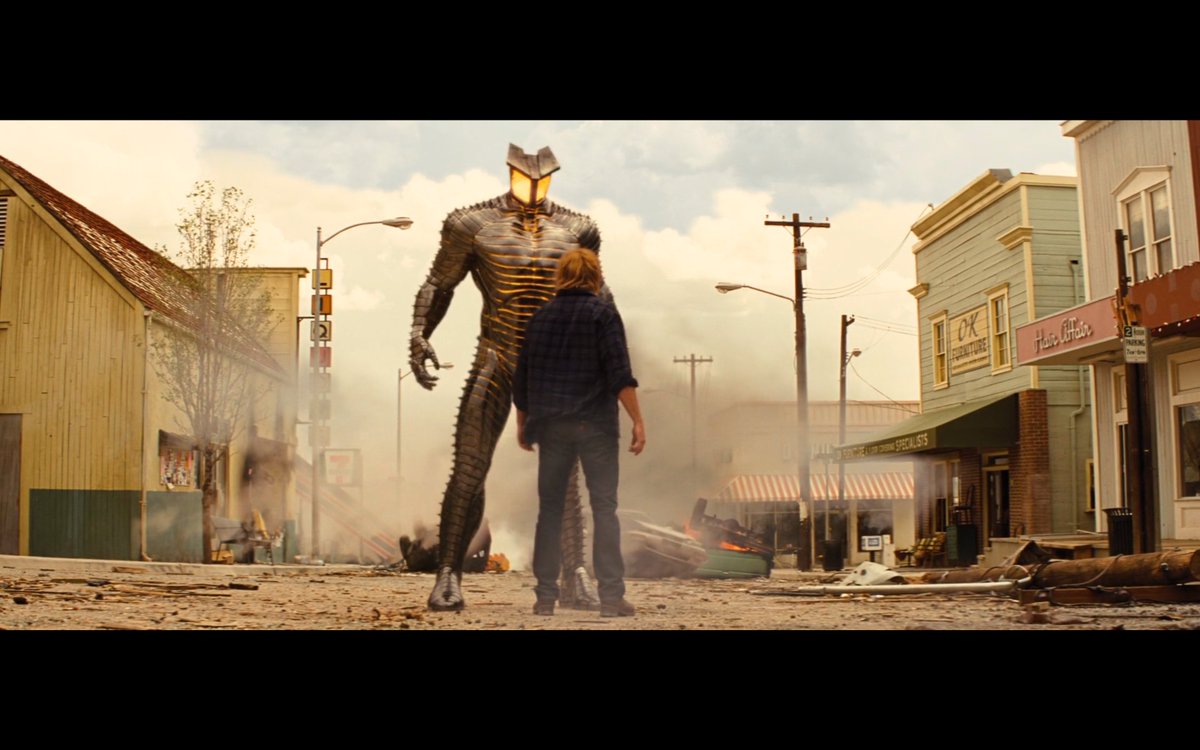
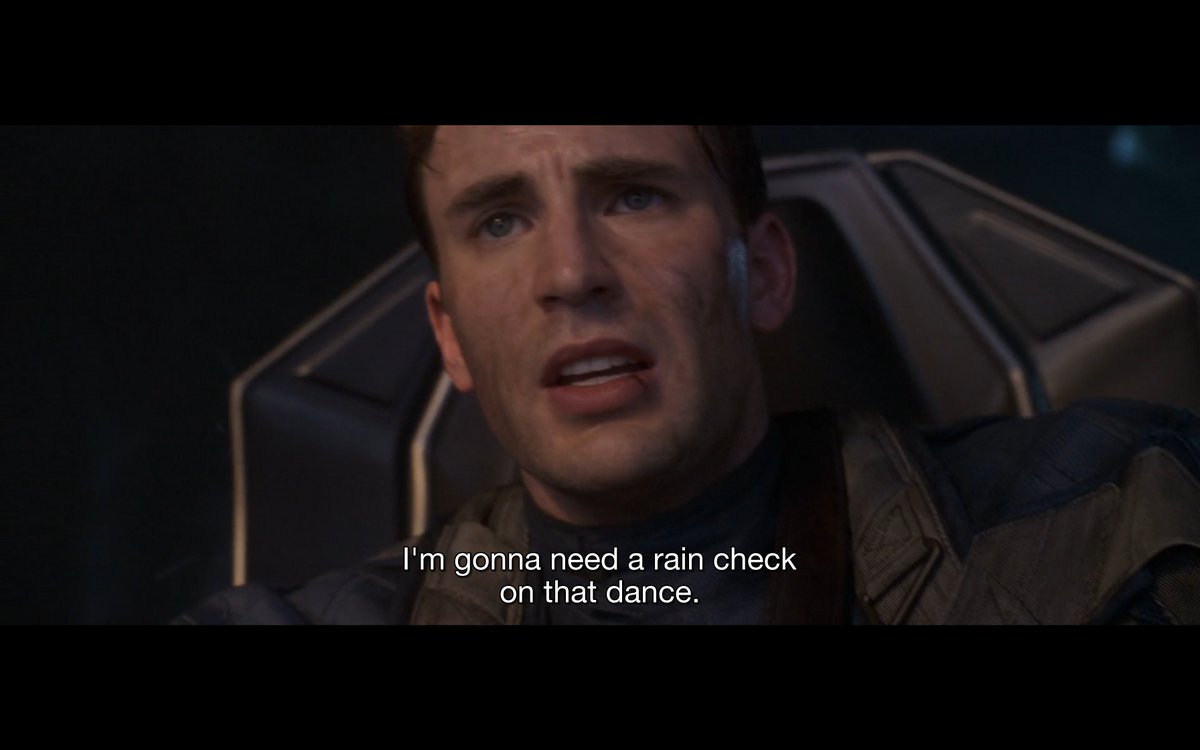
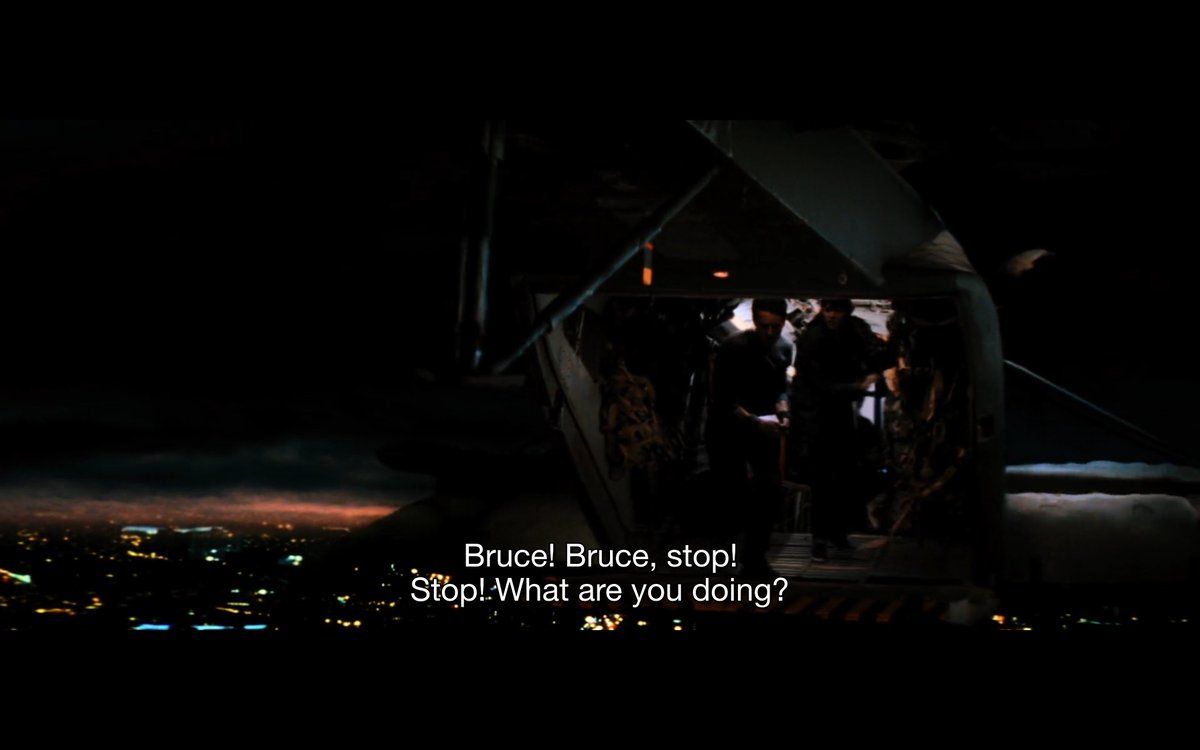
id235414019
Of course because these are Hollywood movies, the heroic self-sacrifice doesn’t actually kill these men. Instead it proves they deserve their power. And the act of sacrificial violence only makes them stronger and more powerful. (At least until the very end of their story arcs).
id235414020
To be clear, I’m not discounting all heroic sacrifice storylines but I do think we need to consider the implications of so closely tying men’s value, worth, and masculinity to one spectacular moment of suicidal violence. In the MCU there’s no other way to be a true hero.
id235414021
I’m doing a bad job of keeping these notes brief, huh? Anyway there will be ample opportunity for us to discuss Thor, as well as the heroic sacrifice, moving forward. Speaking of, it’s time for Joss Whedon’s blockbuster The Avengers (2012).
id235414022
Oh one last note on Thor. This throwaway joke glorifying men drinking to excess and getting into brawls caught my eye because it comes directly AFTER Thor supposedly learns his lesson about heroic responsibility. But drunken bar fights are just harmless male bonding, I guess?
id235414023
Took a little break from my MCU re-watch but now it’s time for The Avengers (2012). Like Iron Man 2, this movie is pivotal in setting the stage for the rest of what’s now called “The Infinity Saga” in terms of both politics and masculinity. In other words, I have A LOT of notes.
id235414024
The always charming Mark Ruffalo replaces Edward Norton as The Hulk. The casting change is accompanied by a distinct change in tone from the more menacing version in Incredible Hulk to this more fun humorous take on the character in The Avengers.
id235414025
Banner now refers to the Hulk persona as “the other guy,” which works to distance himself from responsibility for his fits of violent rage. Though not framed as such, it’s an unsettling mirror of how real-life abusers often dissociate from or rationalize their own behavior.
id235414026
Despite the humorous tone, there’s a seriously jolting moment in The Avengers where Banner admits to being suicidal (and acting on the impulse) but the line is just used to win an argument. The MCU never really returns to this again, which seems irresponsible to say the least.
id235414027
Again if the story was just about Banner learning to control his anger issues (which manifest metaphorically as The Hulk) that would be one thing but in the MCU The Hulk side is the hero. His violent rage is framed as cool, as useful, and worse as necessary to save the world.
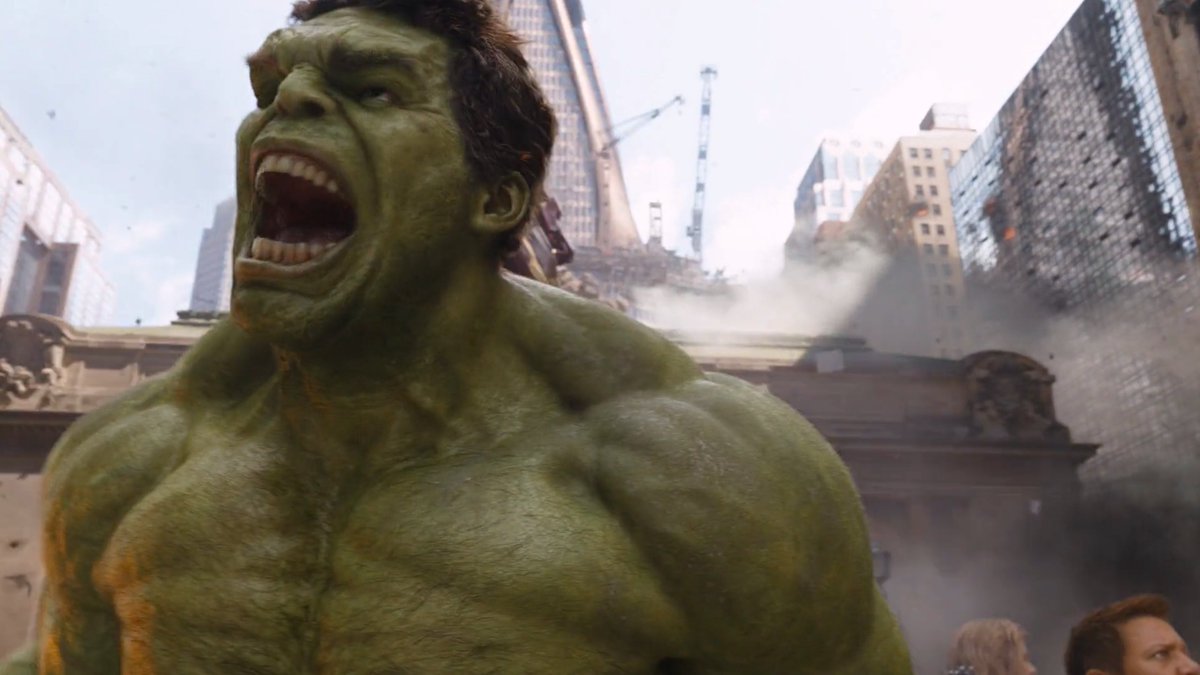
id235414028
Remember when I said essentially everything in the MCU is solved with violence? Well, it’s taken to extremes in The Avengers. So your best friend has been brainwashed by an Infinity Stone? Don’t worry, it’s nothing a little blunt force trauma to the head can’t fix.
id235414029
That’s right, the narrative solution to mind control in the MCU is the same as it is for a broken copy machine at the office. Hit it really hard and hope the internal mechanisms realign. This is famously how the human brain works.
id235414030
Most of the time Captain America fights with his shield or fists but in The Avengers we briefly see him using a modern assault rifle. The scene reads like another advertisement for real firearms. We’ve seen this trend with guns before in the MCU and we’ll see it again.
id235414031
Normal humans in the MCU (who aren’t super, per se) use guns to try to match strength with super beings. Coulson uses a futuristic firearm. Natasha, Clint, and Maria use Glocks. Fury uses an RPG etc. Guns continue to be framed as both badass and an effective way to project power.
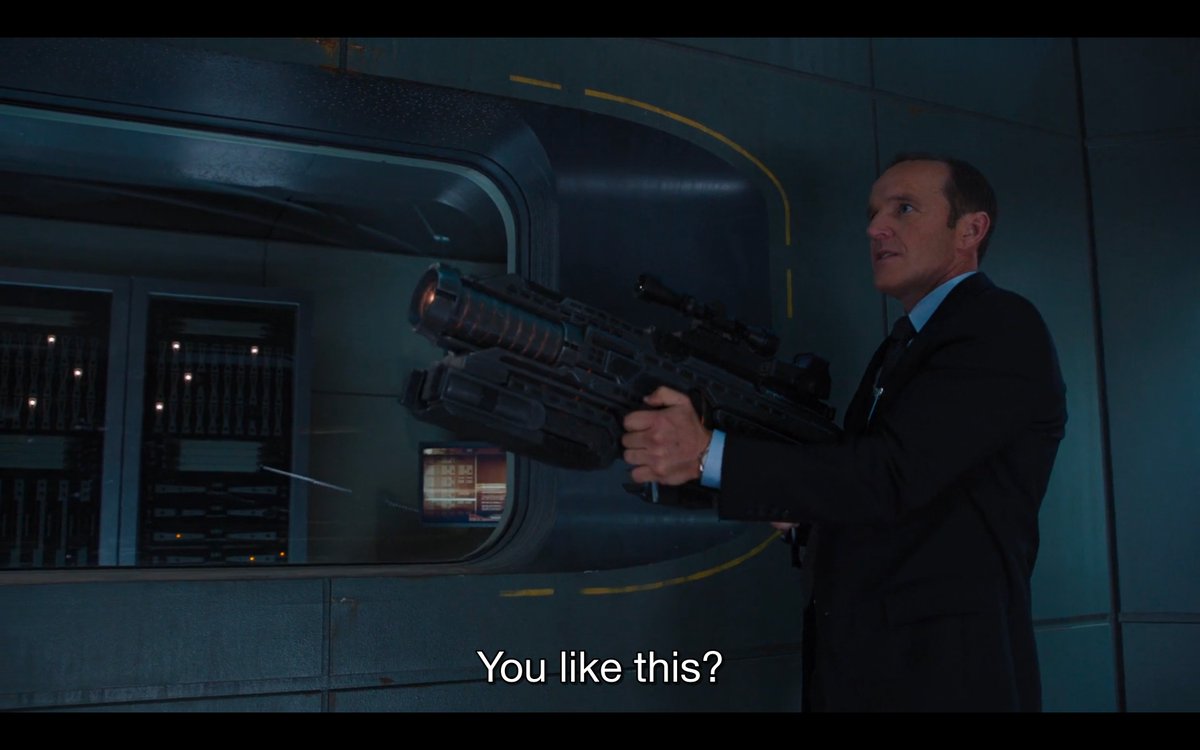
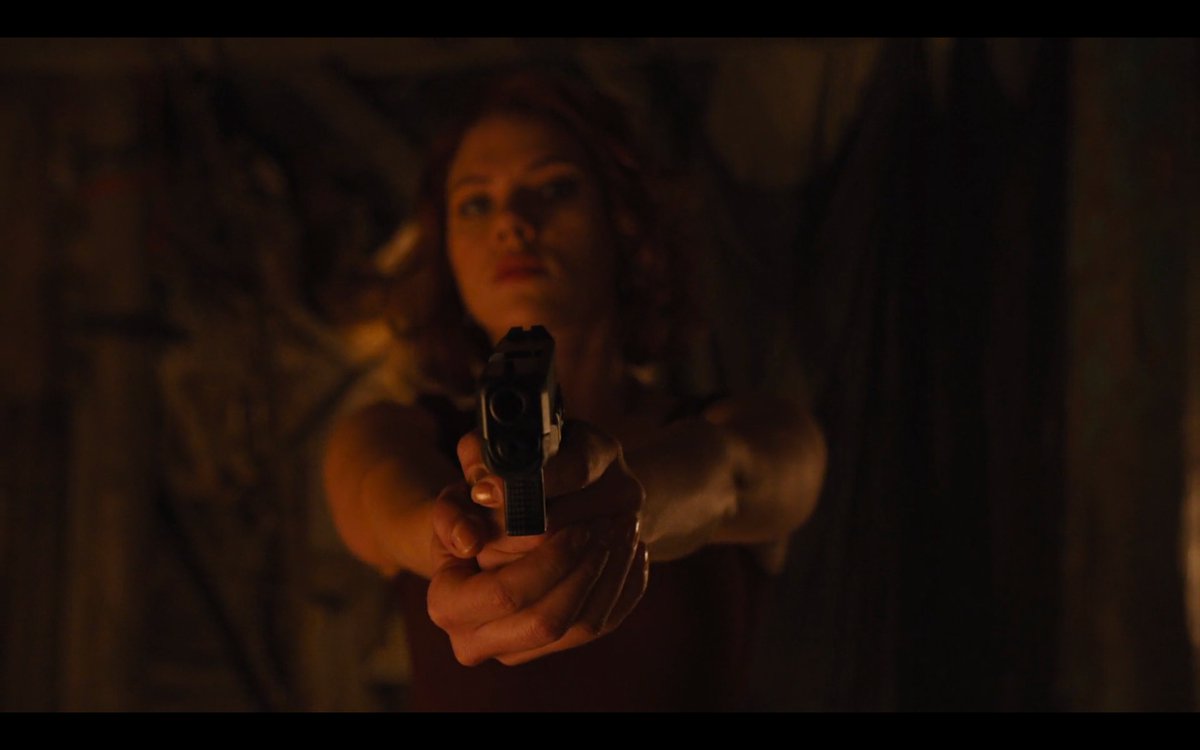
id235414032
Of course, most superheroes don’t need to carry guns because they ARE weapons personified. As I’ve said before, MCU heroes are written as direct metaphors for weapons of mass destruction. And The Avengers movie doubles down on that narrative framing.
id235414033
SHIELD is building alien-powered WMDs as “deterrents” to protect earth from galactic threats. There’s an argument over this but the core premise isn’t questioned because the writers have created a universe where the imminent threat is real.
id235414034
Fury continues to channel Donald Rumsfeld in talking about alien “unknown unknowns” in a galaxy brimming with imminent threats. The film’s ultimate solution is that The Avengers themselves will fill the role of WMDs by becoming deterrents in a galactic superhuman arms race.
id235414035
Parallels to the real-life “War on Terror” and 9/11 in The Avengers are striking and undeniable. The rationalizations and justifications for a new forever war are essentially the same but instead of foreign terrorists from the Middle East, it’s alien terrorists from outer space.
id235414036
SHIELD is a US government agency shown to operate an omnipresent surveillance apparatus capable of spying on any device connected to the internet. It’s a massive invasion of privacy that’s presented as necessary to stop the unique threat posed by super bad guys. Sound familiar?
id235414037
The MCU desperately needs their own Edward @Snowden
id235414038
The Avengers was released in May 2012. One year later, Edward Snowden blew the whistle on PRISM, a mass surveillance program designed to harvest citizen data. Jumping ahead, MCU writers didn’t learn anything from that scandal because Spider-Man is using mass spying tech in 2019.
id235414039
I’m getting way ahead of myself but just like WMDs, the ultimate MCU message seems to be that mass surveillance tech is good but only in the right hands. The “right hands” being unaccountable private individuals (like a tech billionaire) with good hearts and good intentions.
id235414040
This is a very telling scene in illuminating how power and authority are presented in the MCU. Captain America gives orders to a bunch of NYC cops. They don’t recognize his authority because officially he doesn’t have any…
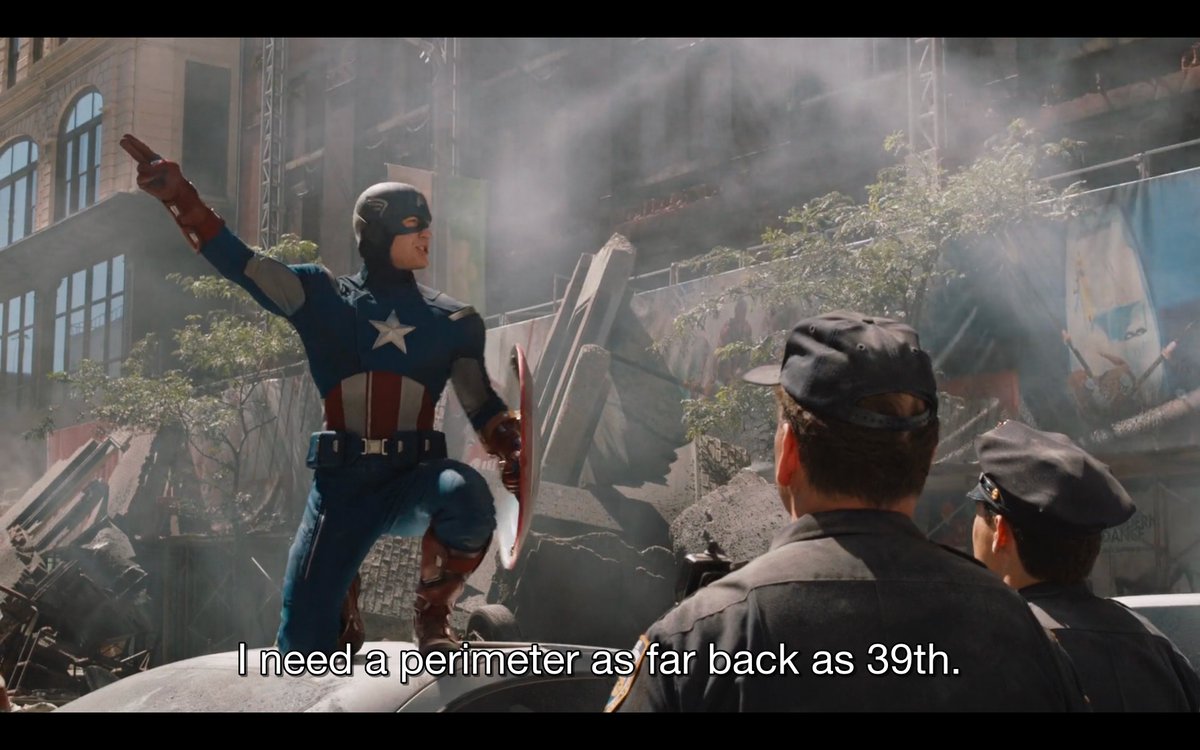
id235414041
…But then Captain America single handedly takes down a bunch of aliens in front of them. Seeing this, the cops suddenly follow his orders to the letter. The message couldn’t be clearer: masculine violence and swift acts of domination are what grant men authority in the MCU.
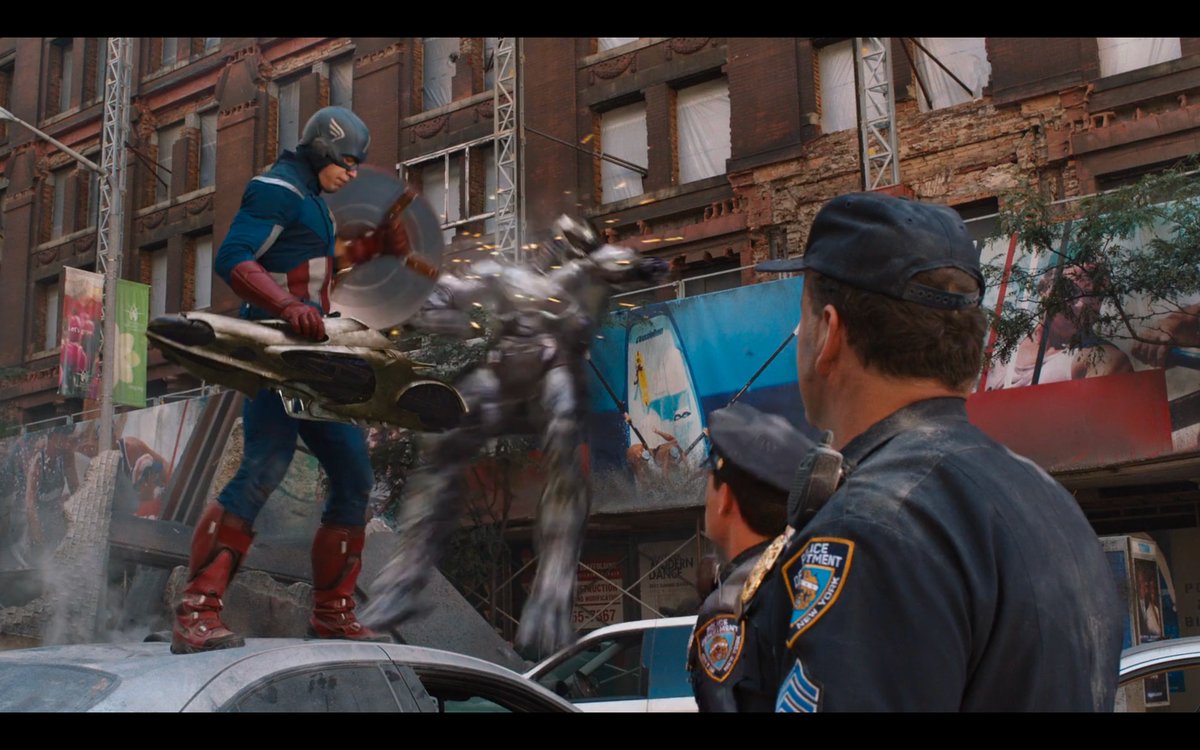
id235414042
There are terms for systems where authority is granted to the strongest or most violent individuals outside of institutional structures that could (theoretically at least) hold decision makers accountable. Democracy is not one of those terms. We’ll keep returning to this point.
id235414043
Throughout the MCU power and authority are legitimated via acts of violence and domination (against bad guys) and not by any democratic or institutional means. But what about public accountability for authority? Again, the very idea is dismissed as absurd, corrupt, or evil.
id235414044
Elected officials absurdly blame The Avengers for the destruction of NYC and call for investigations. Those in an oversight position for SHIELD are evil shadowy bureaucrats who tried to nuke NYC. The pattern continues: only unaccountable “great men” can be trusted with authority.
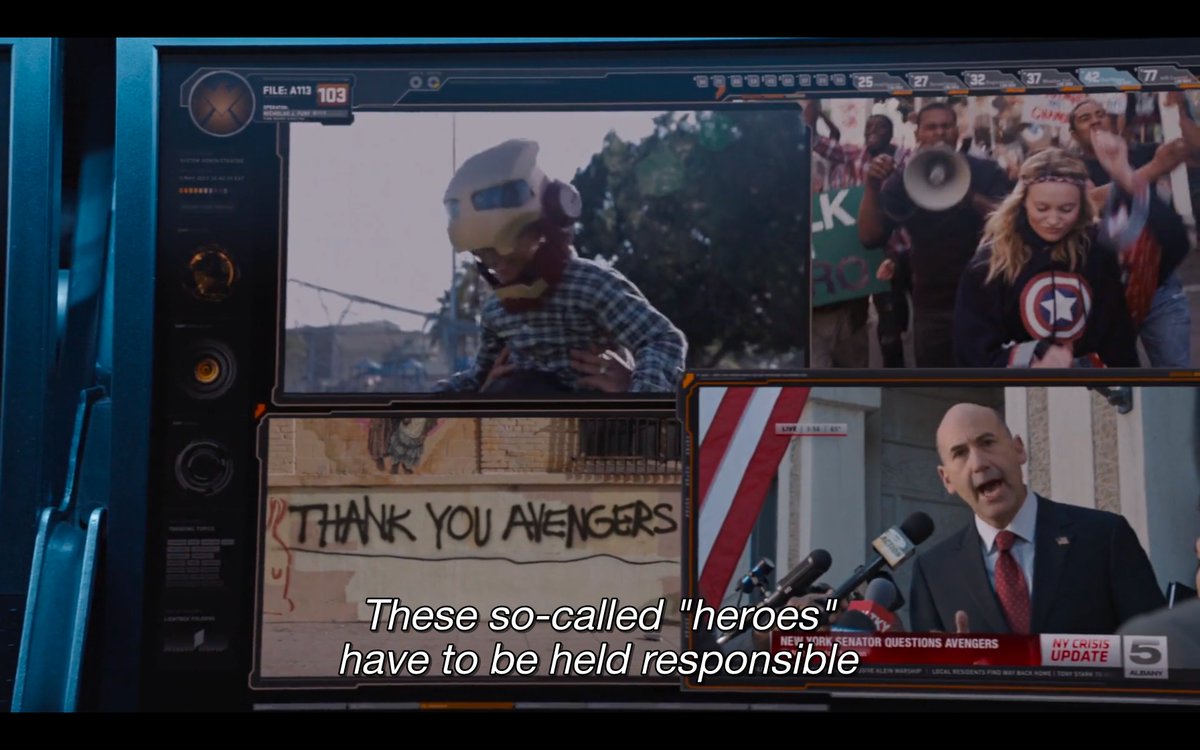
id235414045
I want to circle back to the representation of masculinity and male relationships in The Avengers because there’s a lot going on and almost none of it is good. Truly supportive male friendships are rare in movies. And when we do see them, they’re often forged in violence.
id235414046
We’re treated to a lot of macho posturing and dick measuring, especially between Iron Man and Captain America. The toxic behavior is lampshaded with a wink so audiences can keep enjoying it. Lampshading machismo is a staple Whedon writing trick that’ll get worse in the sequel.
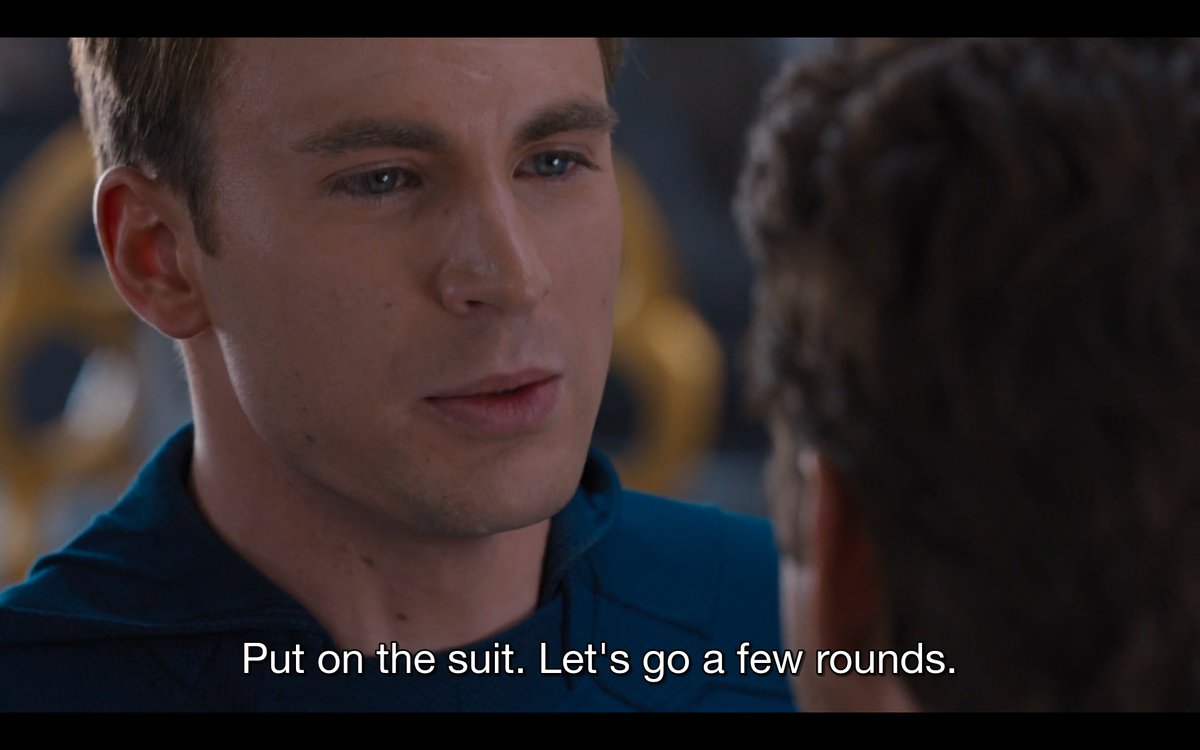
id235414047
Once again we see interpersonal violence between men framed both as conflict resolution and also as the default form of male bonding. Physical fights are how these men learn to respect one another. And respect of strength is a prerequisite for friendship in the MCU.
id235414048
The Hulk goes on what’s meant to be a scary rampage but Thor gives a little smirk of approval while fighting him. Thor appreciates Hulk’s raw display of physical power and enjoys going toe-to-toe with it. That smile mirrors how the audience is supposed to feel about this fight.
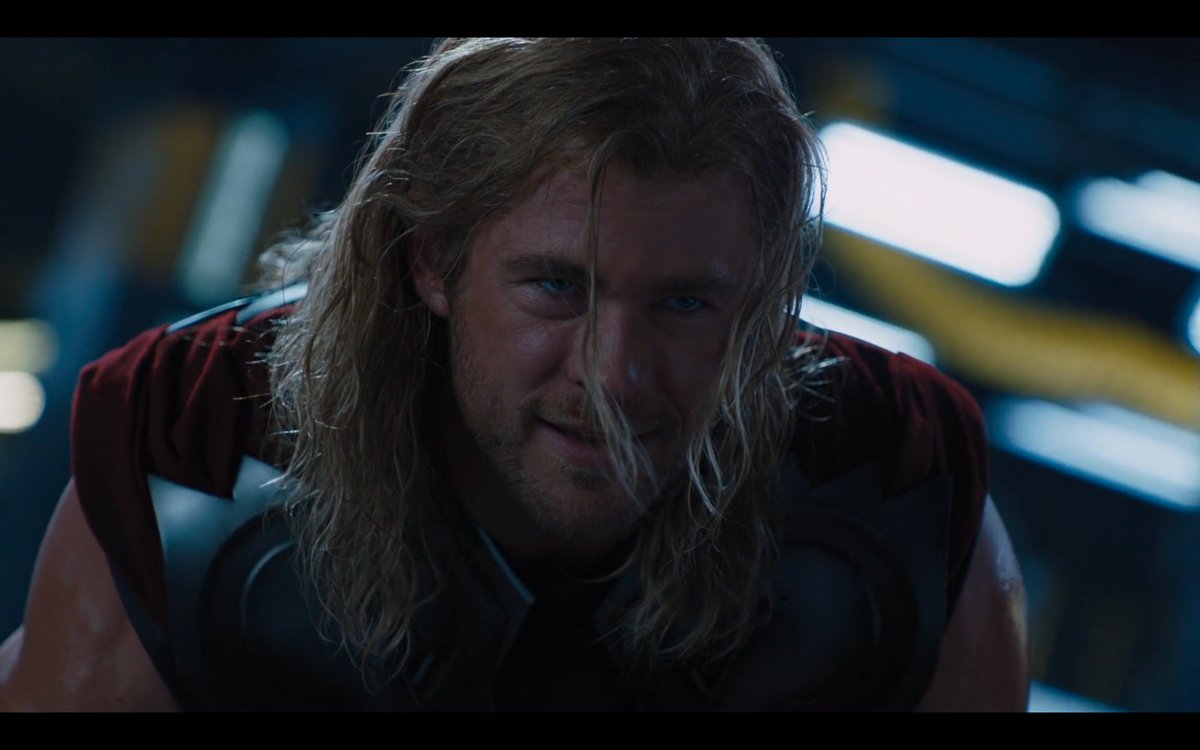
id235414049
I’m reminded of RW Connell writing about the “hierarchy of masculinities” wherein men compete in a never ending quest for dominance. Thor, Tony, and Steve fight each other to a draw thus proving they are relative equals in raw power. This makes their tenuous allegiance possible.
id235414050
Comic book media has long been obsessed with the question of “who would win in a fight” between men meant to be allies or friends. It’s not a coincidence that displays of raw physical power and acts of domination over others are valued above all else in a patriarchal society.
id235414051
There’s also this weird homophobic moment with Tony where he jokes about hoping none of the guys kissed him while he was unconscious. Dude almost died and he’s worried Chris Evans may have saved his life with mouth-to-mouth resuscitation? Get outta here with that bullshit.
id235414052
Speaking of Tony Stark, he acts like an arrogant asshole for practically the whole movie (again). He gets into a dick measuring contest with both Thor and Steve. He tries to goad Banner into hulking out for his own amusement, even though he knows it makes Banner feel suicidal.
id235414053
So how does Tony redeem himself for his awful behavior? The heroic sacrifice of course. Remember suicidal violence is the only way to prove you’re a true hero in the MCU (see above). Up until this point Tony was the only one of the four guys who hadn’t made “The sacrifice play.”
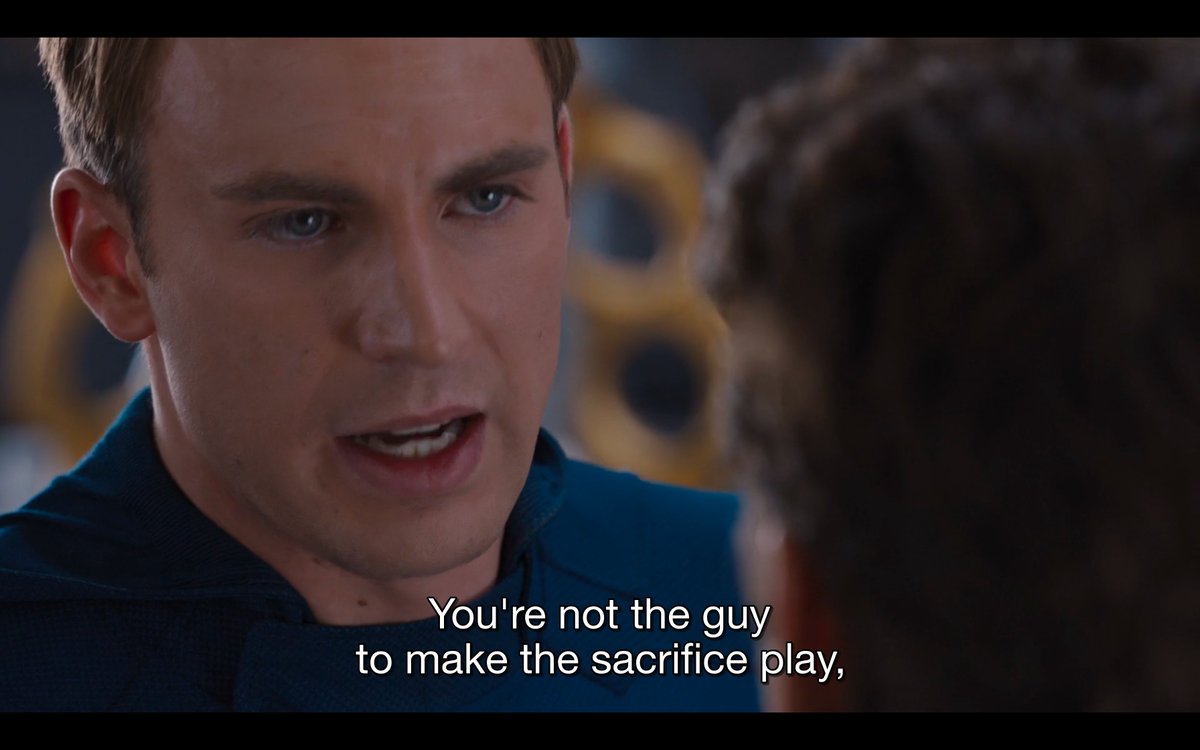
id235414054
It’s uncomfortable to think about but The Avengers ends with Tony’s Big Damn Hero Moment which is basically becoming a suicide bomb. Anyway, I told you I had a lot of notes on this movie. I have even more but I think it’s time to move on to Thor: The Dark World (2013)
id235414055
I hope you’re all finding these tweets insightful or at least interesting. Normally I don’t share my notes publicly. Also I’ve been taking a little break in between movies because making my notes presentable turns out to be a bit of work :P
id235414056
Finally getting back to this thread. My MCU re-watch is going slowly because I’ve been writing and recording a new video essay about depictions of men crying in media. It should be published in mid March. Anyway, time for Thor 2.
id235414057
Remember that whole lesson from the 1st Thor movie about how heroes shouldn’t enjoy going to war? Well, never mind all that! We’re 100% supposed to enjoy the hell out of Thor beating the crap out of a bunch of “savages” under the pretext of “restoring order” to the 9 realms.
id235414058
The enlightened futuristic Asgardians still solve conflicts with war, still have a monarchy, and still operate prisons? But we’re not supposed to think of their (mostly white) culture as backwards or authoritarian. It’s the damn dark ages, just covered in tech-infused gold leaf.
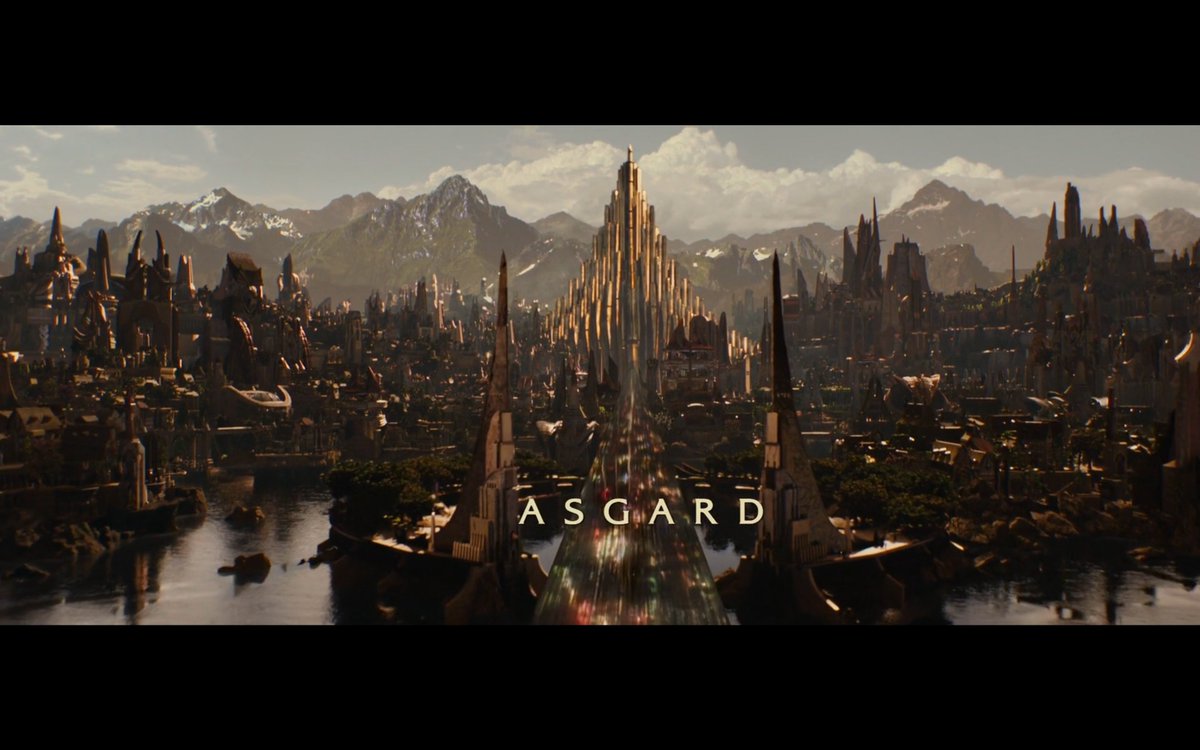

id235414059
THOR: “We need the king to appear strong and unchallenged.” Authoritarian ideology at its finest. I loathe fantasy stories that lionize monarchy. It’s fundamentally anti-democratic and a particular pet peeve of mine.
id235414060
I’ve pointed out before how the MCU worships raw physical power above all else (especially in men) but Dark World turns it up to 11. When Thor reduces a huge warrior to a pile of rubble, the rest of the rabble instantly give up and literally bow down before him.
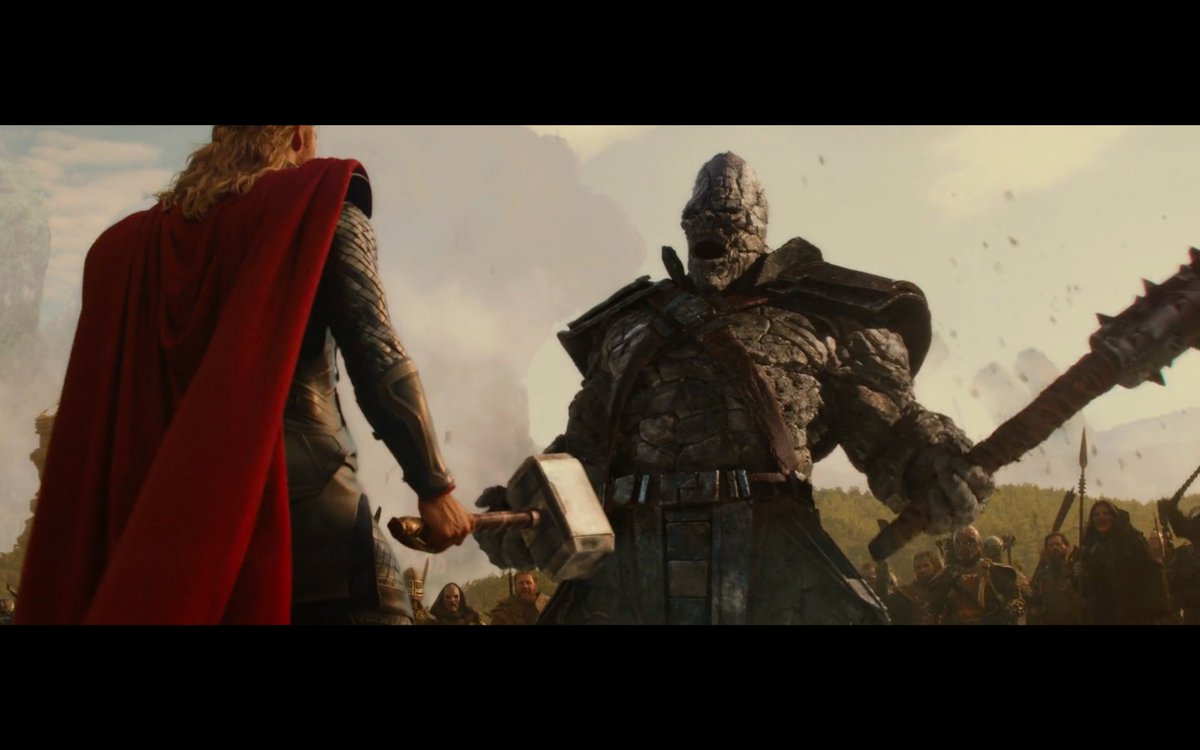

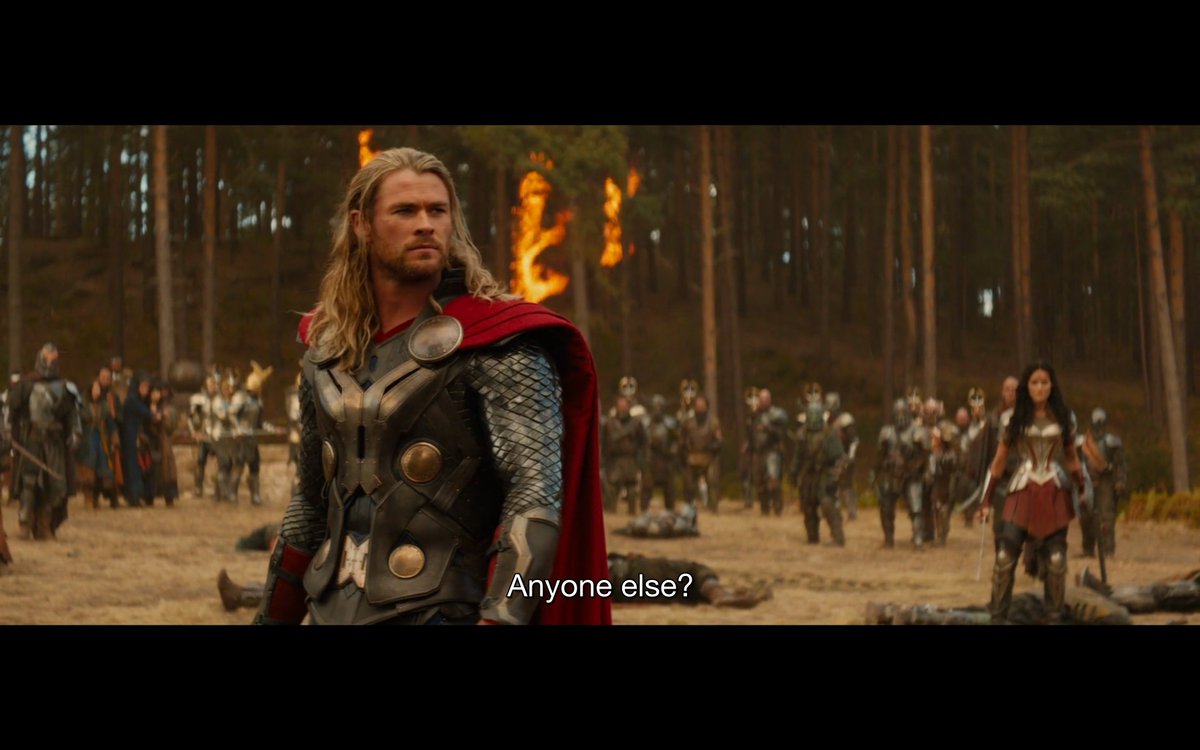
id235414061
So Thor and friends spend the first part of Dark World waging war, which is framed as unambiguously good. Later Odin wants to wage war on the Elves who invaded Asgard but now suddenly war is bad. Are the writers unaware of this contradiction? I don’t know but…
id235414062
It’s another example of the MCU’s “Great Men” theory. Thor’s war has only himself + an elite strike team putting their lives on the line. That’s good. Odin’s war would have normal citizens risking their lives. That’s bad. Only elites have the right and obligation to do violence.
id235414063
Revenge acts as a replacement for men’s grief in too many movies. Vulnerable feelings are transmuted into rage and violence. Thor and Loki don’t bond over shared grief after their mother’s death, they bond over a shared desire for vengeance. Obviously this is extremely unhealthy.


id235414064
When Loki appears to die, Thor’s eyes get damp. There might be a tear? I even zoomed in on the still and it’s hard to say. I’m watching in 1080p, maybe it’s clearer in 4k? We shouldn’t have to do forensic analysis to see if a man is crying or not. His anger is crystal clear tho.
id235414065
This BIG NO is the extent of Thor’s mourning process. His grief lasts all of about 20 seconds.
id235414066
There’s a running joke where Darcy treats her dorky “intern” with disdain throughout the movie, but when (due to magic nonsense) he saves her life by throwing a car - she’s suddenly attracted to him. Again, hypermasculine displays of raw strength are valued above all in the MCU.
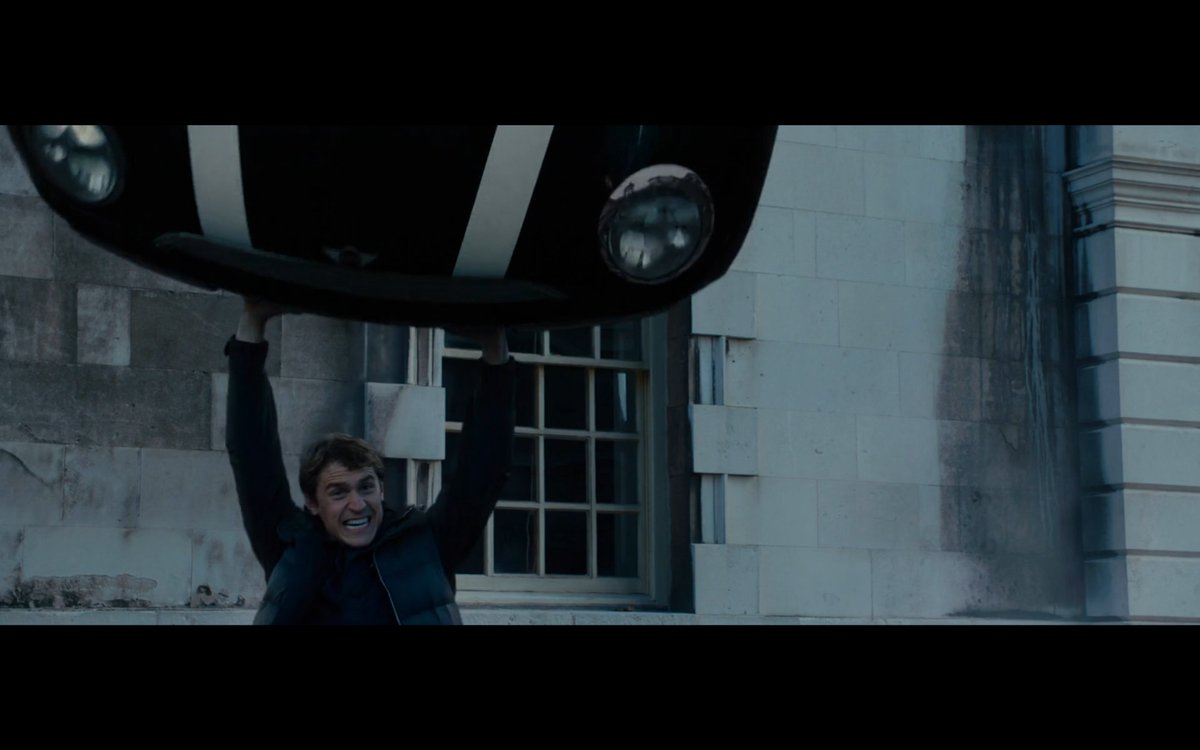
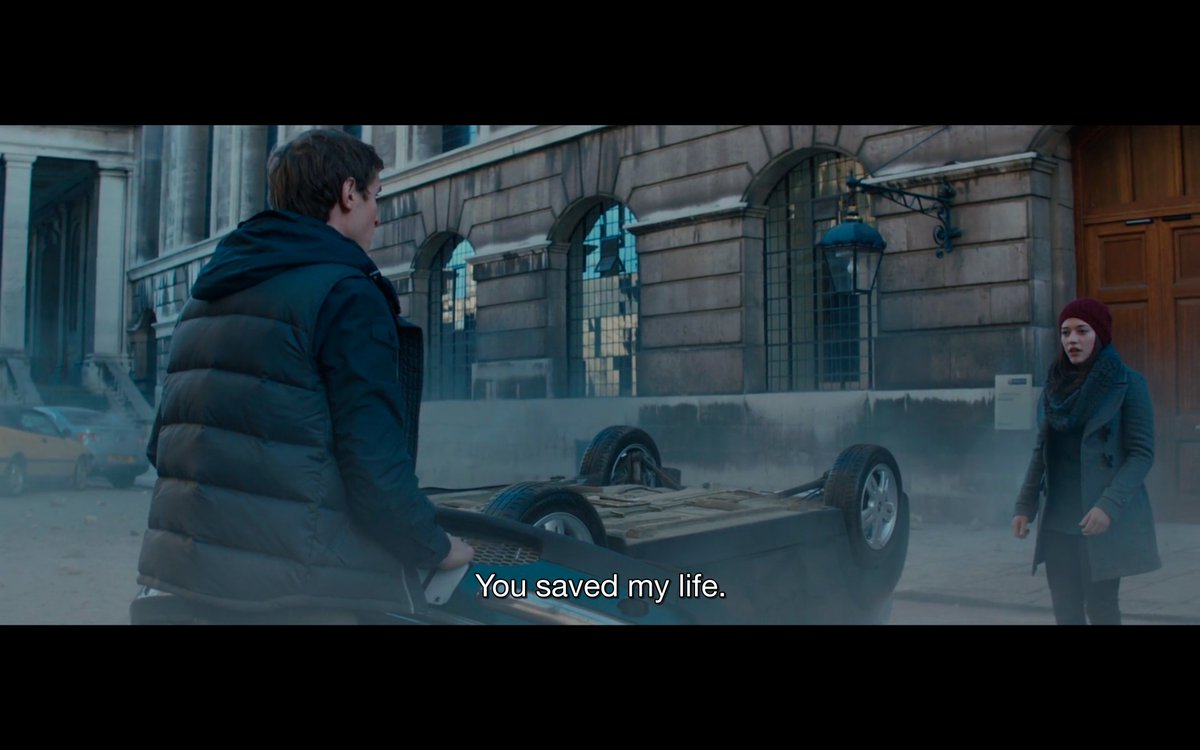
id235414067
Last small thing. Thor is depicted as being irresistibly hot, which is mostly fine. But twice women intentionally touch his chest without permission. Thor always holds power and both moments are brief and meant to be funny. Still, non-consensual touching shouldn’t be a joke.

id235414068
Next up will be Iron Man 3. I’ll try to add my notes about it sooner this time. Stay Tuned.
id235414069
I‘ve been putting off tweeting out my notes on Iron Man 3 because the movie is a minefield of interesting ideas that are executed so poorly it’d have been better if the writers hadn’t tried at all (especially in relation to PTSD and issues of physical ability.)
id235414070
Let’s check on Tony’s character progression. Still recklessly putting himself and others in danger? Yep. Not listening to anyone but himself? Yep. Still being kinda of a dick to Pepper? Yep. This is the 4th film starring Iron Man and he has yet to learn very much.
id235414071
I want to briefly talk about the class politics of Happy Hogan in the MCU.
id235414072
Happy is written to be a “normal working class guy.” The way the writers communicate this fact to us is by making him a little bit sexist and a little bit homophobic. I’m so very tired of casual bigotry being used as THE marker of “working class” in media.
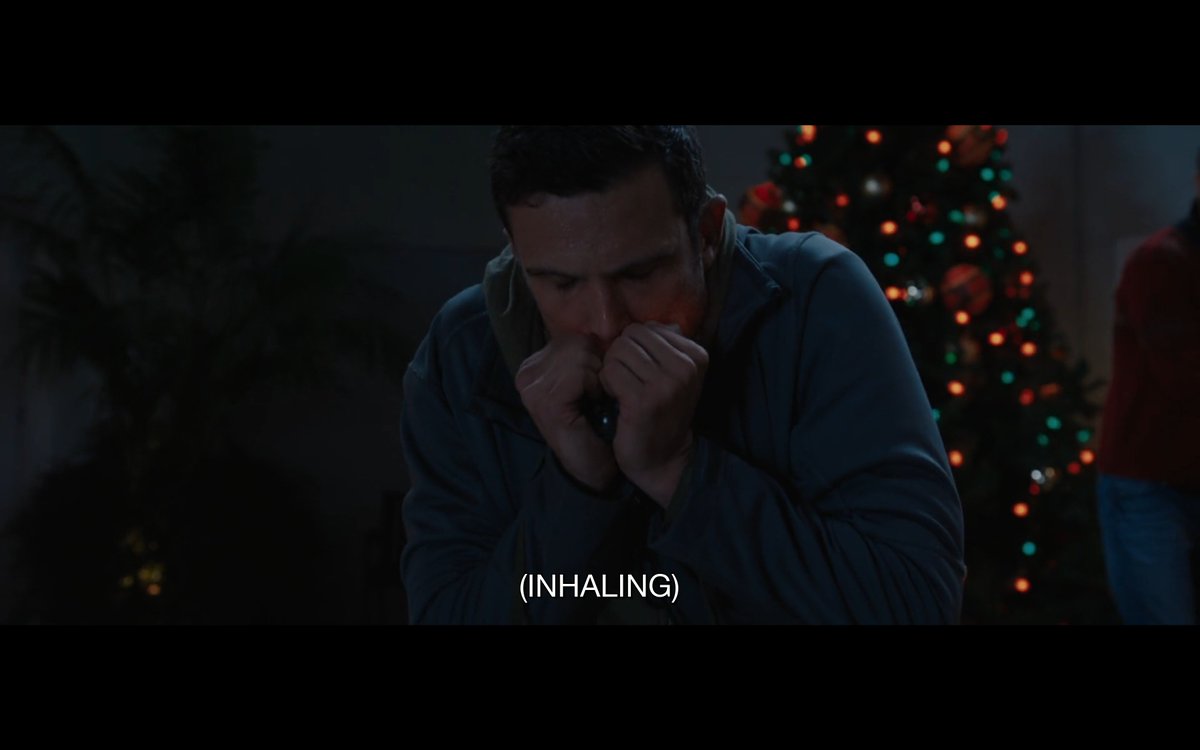
id235414073
Hollywood writers constantly use casual sexism and homophobia as the preferred way to indicate a guy is working class. I’m not a psychologist but considering the absurd number of bigoted assholes working within the Hollywood elite, it seems like a bit of distancing or projection.
id235414074
I grew up working class and sure there’s some sexism and bigotry but no more than you find among the rich and powerful. Difference is the rich and powerful can turn their bigotry into policy and institutional discrimination. Anyway, I hate the way Happy’s character is written.
id235414075
Throughout the Iron Man films Happy acts as an enabler for Tony’s sexism and womanizing. He’s the bro who goes along with it. This means, among other things, that women are the only ones who ever question Tony’s behavior. We need depictions of men holding other men to account.
id235414076
Last note on Happy. Another way he’s marked as a normal working class guy is he’s quick to brawl. He tries to use fisticuffs to prove his worth and his manhood. But since he’s not one of the MCU’s “great men” like Tony, Happy is comically bad at fighting most of the time.
id235414077
Marvel’s decision to cast Ben Kingsley as a character pretending to be The Mandarin (rather than The Mandarin himself) attempts to sidestep accusations of orientalism attached to that supervillain (for now). Still there are issues…
id235414078
As will become a pattern in the MCU, the villain’s stated goals reference real-life injustices or social issues. In this case it’s atrocities committed by the US government and US corporations. This is the MCU’s first “pseudo-social justice villain” but it won’t be its last.
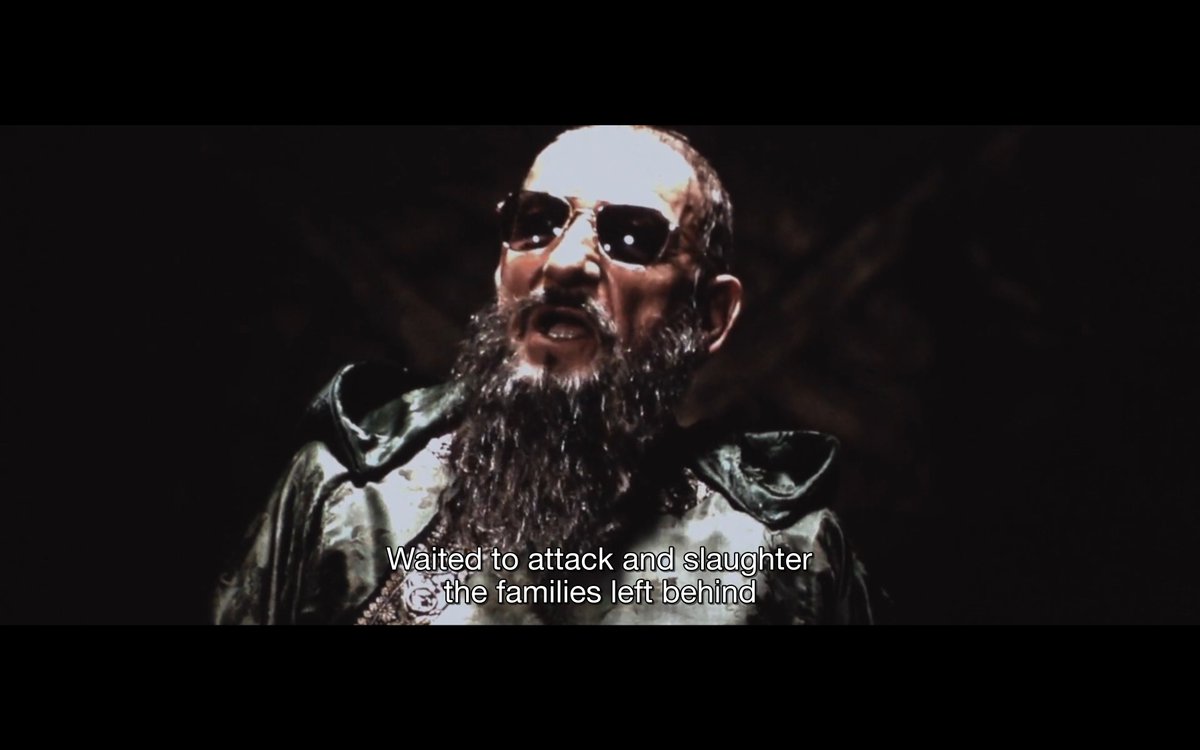
id235414079
The Fake Mandarin references the 1864 Sand Creek Massacre which is a real massacre of Cheyenne and Arapaho people by the US Army. It’s a horrific historical atrocity but of course the Iron Man 3 writers don’t care about that event, it’s just used as pretext and misdirection.
id235414080
So in Iron Man 3 we have a real critique of US foreign policy based in history but it’s voiced by the villain and it’s ultimately just a manipulative trick used as a pretext for terrorism (which is in turn just misdirection for some guy’s elaborate personal quest for power.)
id235414081
The atrocities mentioned (both real and fictional) are never addressed. The US human rights abuses are ignored. The oil company isn’t held accountable. The US president who protected oil executives isn’t held accountable. In short our heroes successfully protect the status quo.
id235414082
MCU villains are often transformative. Their stated goals identify systemic issues, which they try to do something about (of course that something is always mass murder). The heroes stop them and in so doing protect institutional power structures and preserve the status quo.
id235414083
MCU superheroes are reactive. They don’t use their powers to enact systemic social change. They use their powers to prevent others from enacting destructive change. In this way systemic social transformation in the MCU is nearly always framed as something villainous.
id235414084
There’s a weird offhand common from Trevor Slattery that reads as homophobic. This is the second homophobic quip in the Iron Man 3 movie. The “joke” seems to be that due to his drug addiction he had to resort to prostitution on the street.
id235414085
The MCU One-Shot “All Hail The King” doubles down on casual homophobia when Trevor quips about gay sex in prison, adding an exaggerated wink. This is meant to be funny because it implies he secretly likes it? Not a great look for a franchise with no LGBT characters to this point.
id235414086
Iron Man 3 starts with an intriguing premise: What if a superhero struggled with PTSD and associated symptoms like anxiety or panic attacks? There’s a lot of potential in that setup, unfortunately the movie fails spectacularly in how it represents PTSD (and other ability issues).
id235414087
On the one hand, it’s refreshing to see a male action hero displaying vulnerability both physical and emotional. On the other hand, the way Tony deals with, and ultimately overcomes, his anxiety is through even more unhealthy and self-destructive behaviors.
id235414088
Jarvis and Rhodes both try to help Tony but he ignores them. He finally tells Pepper he’s not doing well but then decides he must go off and “fix” the problem on his own. Tony admits to the kid he should probably be on medication but he doesn’t actually seek out help from anyone.
id235414089
So how is Tony able to “cure” his severe PTSD and anxiety attacks in this movie? Through therapy? Nope. Through medication? Nope. With the support of friends and family. Nope. All of the above? Definitely not.
id235414090
After the kid reminds Tony he’s a mechanic, Iron Man 3 tells us that Tony “cures” himself of PTSD and severe anxiety attacks by (drumroll please) building a DIY combat suit from stuff at Home Depot and then using it to single handedly storm the bad guy’s compound! All better!
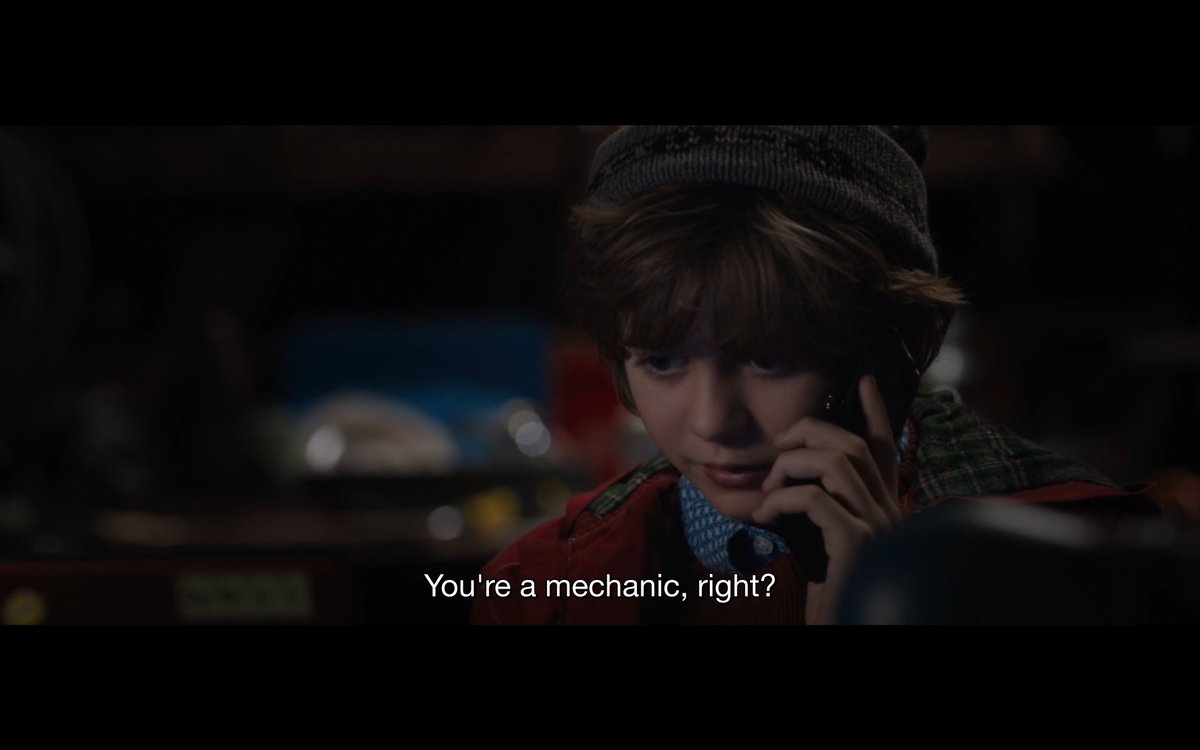


id235414091
Let me say that again. The Iron Man 3 writers decided to have Tony “cure” himself of PTSD by killing a bunch of guys with homemade guns and explosives, thus proving he’s a real superhero even without his suit. I can’t think of a worse way to address serious mental health issues. https://t.co/VGcNPsOQN0
id235414092
Acts of violent domination are again framed as restorative for men in the MCU. Violence (properly directed) is depicted as being synonymous with justice but also something that provides “great men” with status, absolution, and restoration. It can even cure mental health issues.
id235414093
All this is followed by my least favorite MCU post-credits scene. At first it seems like Tony is finally getting the therapy he clearly needs. But no, he’s actually talking to Banner (who isn’t even listening). So Iron Man 3 ends on an extended joke about men going to therapy.

id235414104
Tony isn’t the only one in Iron Man 3 struggling with ability issues. In fact “disability” is a theme running throughout the movie. Physical disability is the core reason why the main villain Aldrich Killian, his army of veterans, and the traitorous vice president all turn evil.

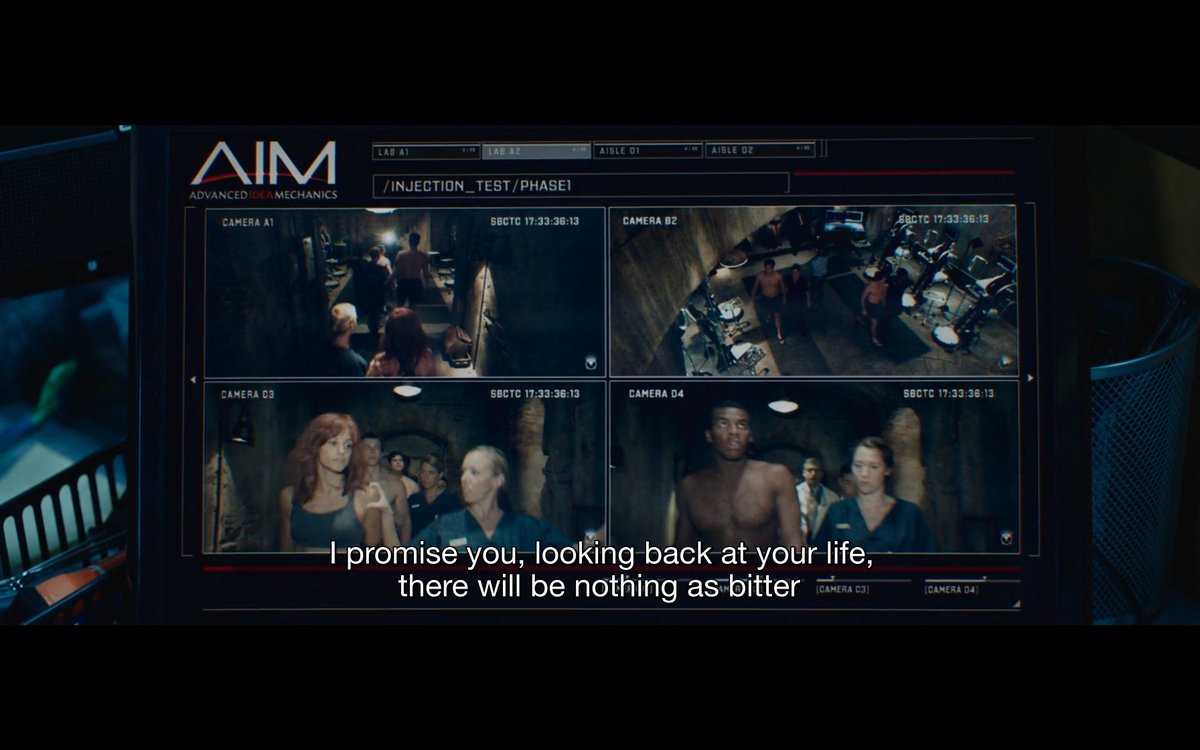
id235414105
Remember that physical strength and physical prowess are valued above absolutely all else in the MCU. It’s what makes a hero a hero. In that context, being a person with a disability must then be the worst possible thing imaginable.
id235414106
The Iron Man 3 writers frame disability as so terrible that we are meant to believe veterans would turn to terrorism to get their limbs restored. It’s supposed to make sense that the Vice President would orchestrate a coup against his own country just so his daughter could walk.

id235414107
There’s no moral at the end of the story here. This is not a “disability doesn’t stop you from being a hero” movie message. The idea that “disability turns people evil” is played straight. The exception is Tony, who alone is able to “fix” himself through sheer force of will.
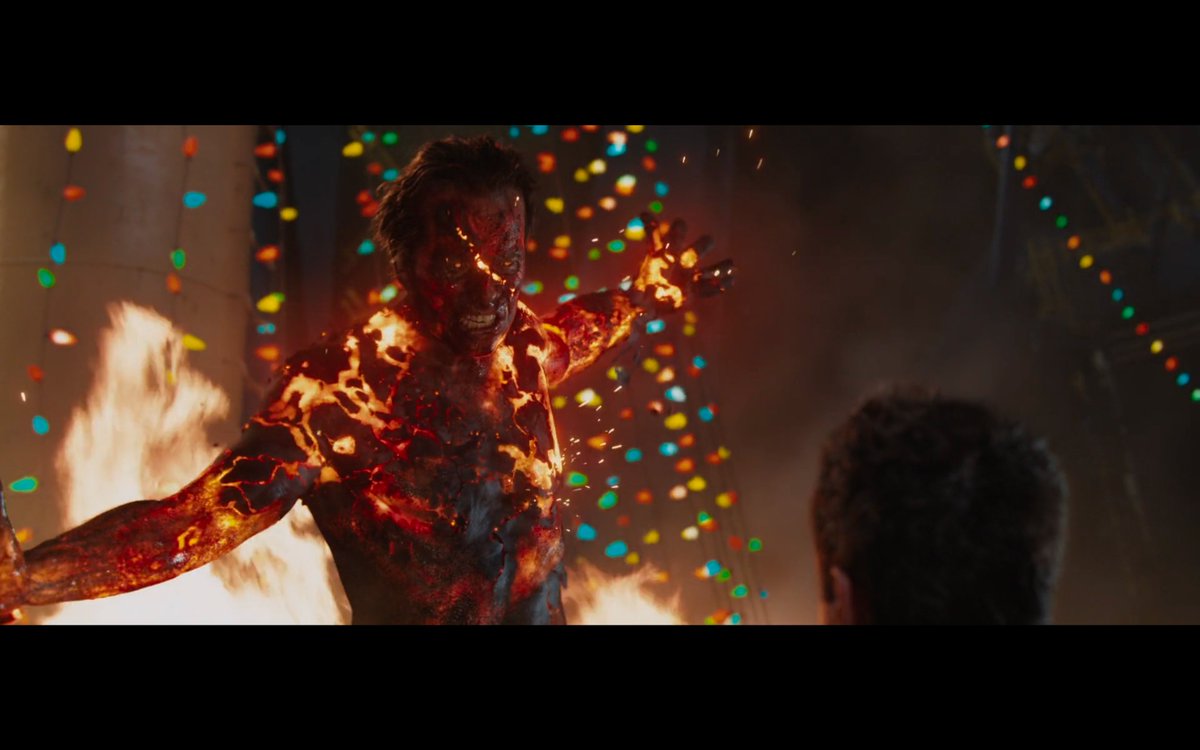
id235414108
I’ve got more notes on Iron Man 3 but since we’ve already spent way too much time on this movie, I’ll just leave you with a few more stray observations.
id235414109
Aside from Pepper (and Maya Hansen) women continue to be used as little more then objectified props just like we saw in the first two Iron Man movies.


id235414110
Guns continued to be celebrated as the best way to try to match power with super beings in the MCU. We are also treated to a scene where Tony (sans suit) kills a bunch of goons with an uzi.
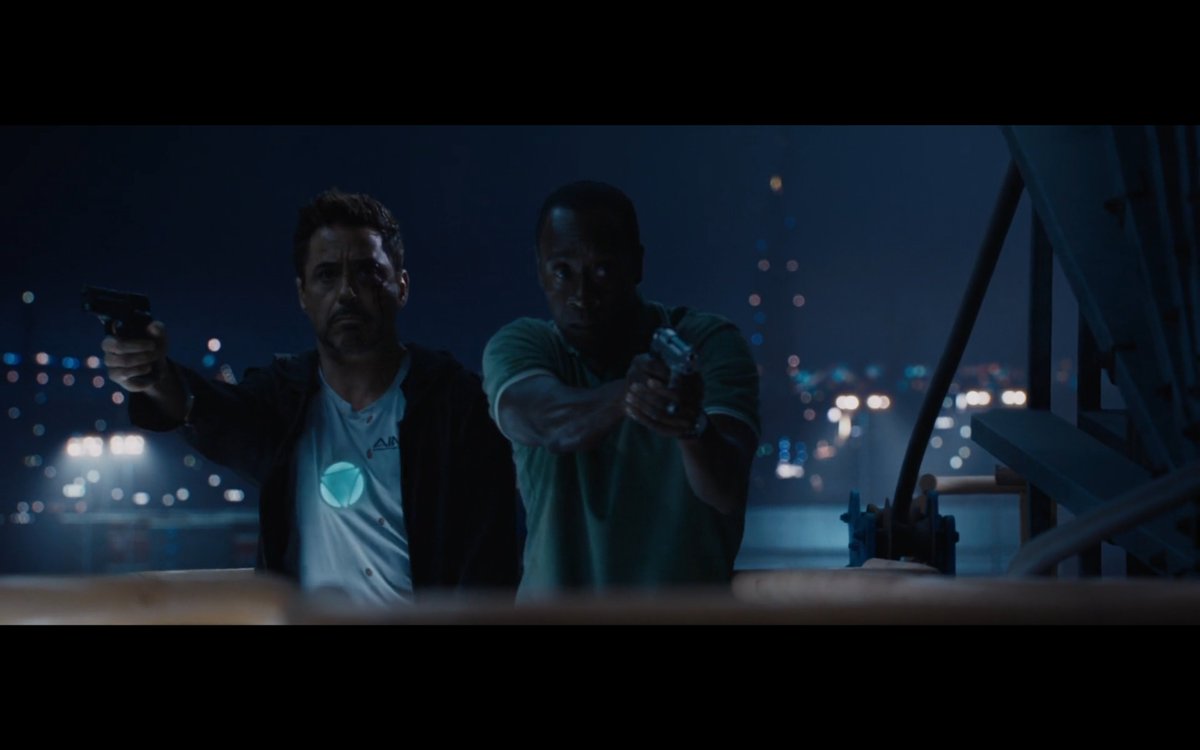
id235414111
Tony meets a kid without a dad and proceeds to treat him badly for most of the movie. It’s meant to mirror how Tony’s own father behaved. Except Tony is supposed to be better because he sends the kid gifts at the end. But gifts don’t excuse abuse, they’re often part of the cycle.
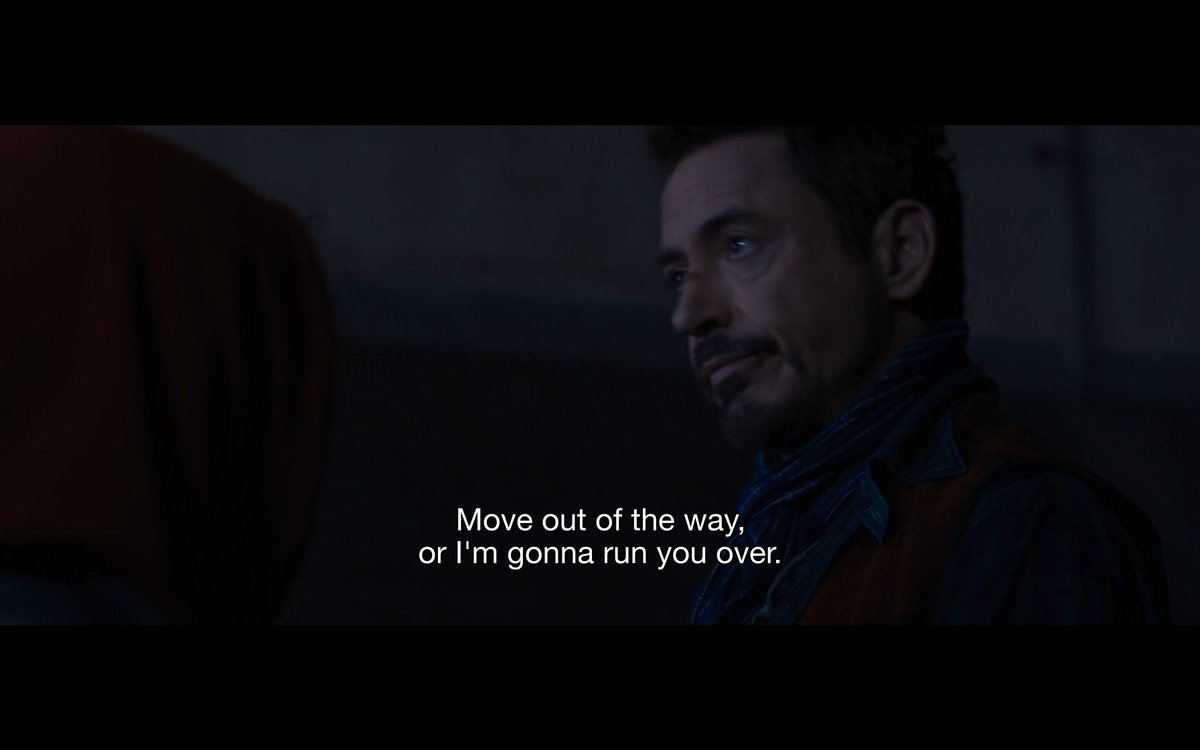
id235414112
Tony continues to use his resources and technology to spy on the whole world. This disregard for privacy is framed as good and necessary to stop really really bad guys. Again, this is the same justification the US government uses to spy on its citizens.
id235414113
Tony also continues to use his resources and technology to build weapons of mass destruction but this is again framed as noble because the weapons are only for his own personal use. Don’t worry, he’s a tech bro billionaire with a heart of gold!
id235414114
Next up we have Captain America: The Winter Soldier (2014) in which everything bad the US government has done since WW2 was actually not really their fault because of a vast conspiracy of secret nazis. Stay tuned.
id235414115
I haven’t forgotten about this MCU analysis thread BTW, I’ve just been extra busy with other projects. I finished a new mini-video essay about my larger @PopDetective project: https://t.co/VwJvkSC9dI
id235414116
I finished a new long-form video essay about where and when men are typically allowed to cry in movies and tv shows (including in the MCU): https://t.co/GGm2CCAhUC
id235414117
And I’m currently putting together a Pop Culture Detective podcast for more deep dives into the messages embedded in media (both positive and negative). We’ll almost certainly be doing a few episodes on manhood, politics, and ideology in the MCU. This thread will also continue.
id235414118
So the @PopDetective podcast is finally up and running! https://t.co/mHjd84v4aj (It took a LOT longer than I thought it would). This means I finally at long last have time to return to this thread on the ideological underpinning of the MCU.
id235414119
I’ve been putting off sharing my notes on Captain America: The Winter Soldier because it’s a deeply frustrating movie. The plot is built around a number of pseudo-critiques of US institutions but the writers are careful to defang each one as they go. I’ll try to explain how…
id235414120
The Winter Soldier initially seems like it has something critical to say about militarism, the surveillance state, police profiling etc. but not only does it fail to follow through on those critiques, it ends up exonerating real US agencies of wrongdoing (both past and present.)
id235414121
The Winter Soldier is a Marvel movie made by the Walt Disney corporation so the writers aren’t allowed to criticize real US institutions like the police, FBI, CIA, or military. There can be rogue individual “bad apples” within those organizations but no real systemic critique.
id235414122
It really is fascinating just how far The Winter Soldier takes the “bad apples” framing. The movie is a masterclass in what, for lack of a better term, I’ll call pseudo-critique.
id235414123
This scene is setup as a direct reference to police profiling of Black men in the United States. So is it a critique of police racism or brutality? Well, no because (as the script is careful to point out) these are not real police. These are HYDRA agents pretending to be police.

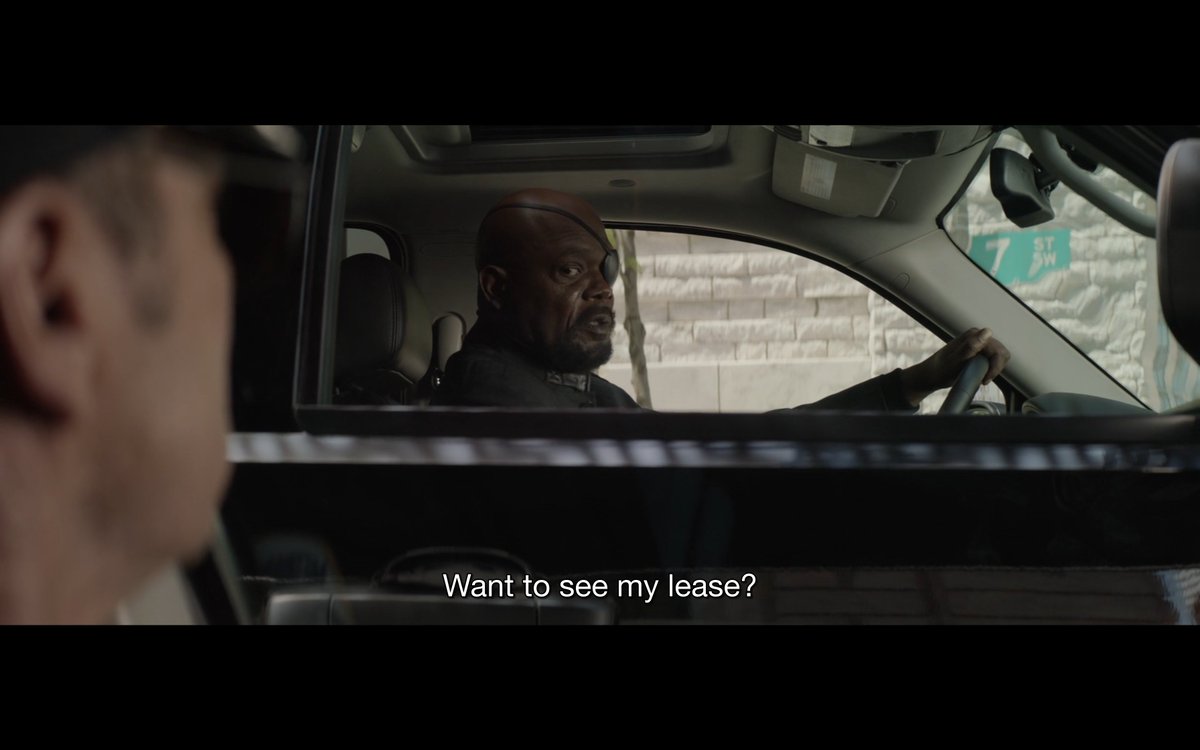
id235414124
Let’s unpack this scene a bit. Notice it’s not even a “bad apples” framing. They coulda been rogue cops sympathetic to HYDRA within the police. That woulda at least fit the real-world problem of some cops being sympathetic to white nationalism. But nope, they’re just fake cops.
id235414125
This “fake cops” framing implies “real cops” wouldn’t participate in an attack on a black man or anyone in the MCU. In fact the police are nearly always portrayed as allies to the heroes. But allies who don’t have enough funding, guns, or autonomy to effectively take on bad guys.
id235414126
To be clear it is absolutely possible to write critiques of real institutions using fictional proxies but that’s not what’s happening in The Winter Soldier. For one thing, real US agencies are also present in these MCU stories and they’re consistently presented as the good guys.
id235414127
In this scene we learn that the fictional spy agency SHIELD has apparently been overthrowing governments, backing dictators, funding terrorists, and committing war crimes for decades. All things real US spy agencies do. So is it a critique of US foreign policy? Short answer: No.

id235414128
Long answer: It’s not a critique of US foreign policy since we also learn the reason SHIELD has been destabilizing the world is because it’s been secretly infiltrated by secret HYDRA agents who are secretly behind most of the bad things the US government has done since WWII!

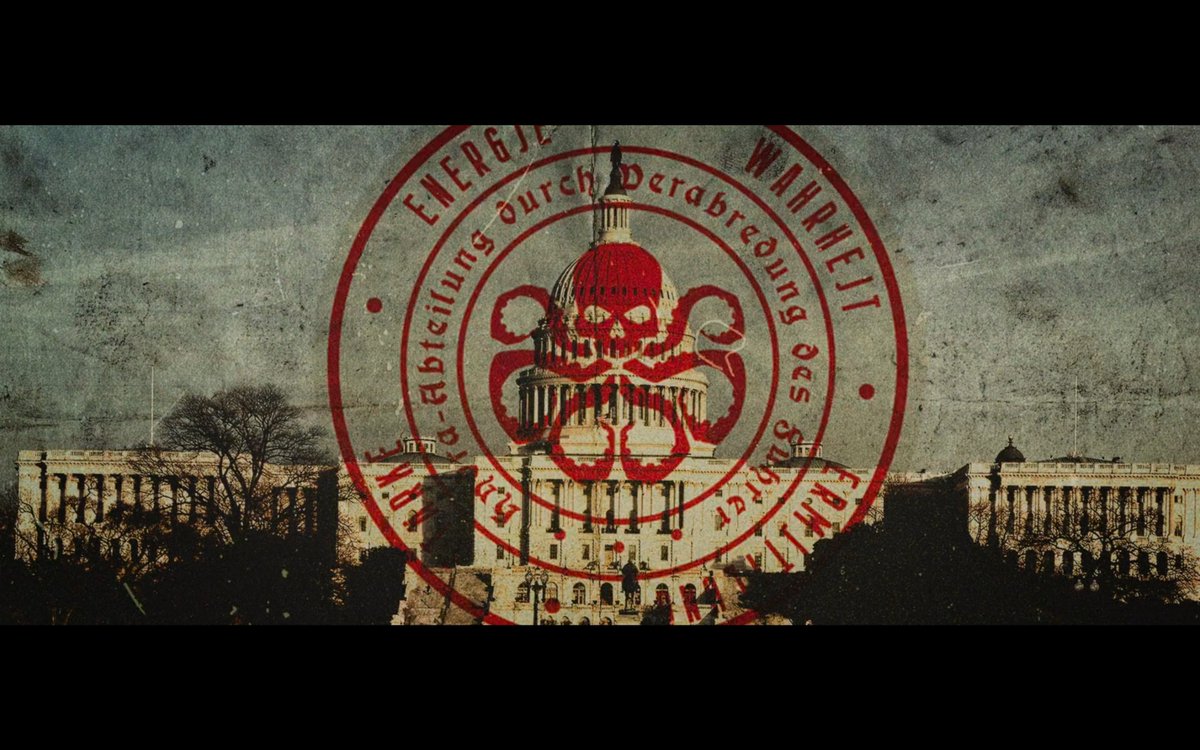
id235414129
This MCU plot point re-writes real moments in history to absolve the US government of their involvement with real crimes and atrocities. You see, it was all done by secret HYDRA nazis! How convenient. You can watch the montage for yourself here: https://t.co/XMx05H1i0h
id235414130
Here are some of the many historical moments included in Marvel’s revisionist history. According to the MCU, HYDRA was responsible for the 1st Palestinian Intifada, the Iranian revolution, the 1991 US invasion of Iraq, and (what looks like) the rise of Ortega and the Sandinistas.



id235414131
If you know your history of US interventionism, you’ll understand why re-writing these real events to blame the fictional HYDRA instead of the US government (and their clandestine spy agencies) starts to feel like straight up propaganda.
id235414132
The images of historical events flash on the screen so fast that, on casual viewing, it’s hard to place them. Still, the overall impression audiences are meant to take away is that In the MCU the US government, military, CIA etc. are the good guys and don’t commit atrocities.
id235414133
This image is also included, which implies Julian Assange is a HYDRA agent. Winter Soldier was released in 2014, well before his foray into Trumpism. (And I doubt it’s referencing the rape allegations.) Meaning he’s identified as HYDRA for publishing evidence of US war crimes.
id235414134
I’m very critical of Julian Assange for many many many reasons but publishing evidence of US military war crimes is not one of them. Anyway, the MCU framing of Assange as a HYDRA agent will be important later on in this movie so keep that point in mind.
id235414135
Before we move on it’s important to talk about why HYDRA is not a great allegory for fascism and, more specifically, an absolute failure of an allegory for naziism. (I’m mostly talking about the MCU here as I’m less familiar with the whole history of HYDRA in the comic books.)
id235414136
HYDRA is very explicitly an allegory for nazis in the MCU. (More than that, since they were a nazi devision during WWII in the first Captain America movie.) But while HYDRA has all the aesthetic trappings of nazism, Marvel completely depoliticizes that horrific ideology.
id235414137
HYDRA is the Disneyfied version of nazis. The poisonous ideology of racism and white supremacy has been erased and replaced with some vague cartoony nonsense about “hating freedom.” It’s hard to sell action figures and other merchandise featuring overt racists, I guess.

id235414138
Even within the messy confused politics of Harry Potter, the Death Eaters are a better allegory for the danger of nazism. It really pains me to say that since JK Rowling’s politics are a total trash fire, but at least her wizard-nazis used terms like “pure-blood” or “half-breed.”
id235414139
So why does it matter if Marvel sanitizes the racism out of their nazi allegory? Well, on one level it fails as an allegory and makes the story less impactful. On another level it’s especially harmful to lean on the nazi aesthetic while stripping away its white supremacist roots.

id235414140
Also, as others have pointed out, HYDRA is supposed to be worse than “normal” run-of-the-mill third reich nazis somehow, except again they express no racist ideology or any ideology at all beyond “freedom bad.” You can see how that’s a problem.
id235414141
Again, it’s not necessarily an issue when sci-fi stories use nazi allegories (lots of them do) but for heaven’s sake don’t depoliticize fascism or sanitize away the racism. We need more people to understand the true horror of nazism and that can’t happen when it’s Disneyfied.
id235414142
The movie also seems like it might have something to say about the modern surveillance state but in the end it’s a pseudo-critique. Turns out this is yet another sci-fi story about how “pre-crime” law enforcement is bad. Super challenging stuff that zero viewers will object to.
id235414143
I love Minority Report too but come on Hollywood, “pre-crime” isn’t really the reason mass surveillance and data collection is dangerous. It’s a privacy violation that hands enormous power to corporations or governments who can exploit our data, often in small but corrosive ways.
id235414144
Ultimately we learn that the problem isn’t really data collection or mass surveillance or even killer military tech (Stark continues to build and use all that stuff), the real problem is HYDRA’s pre-crime algorithm being used for mass murder. In the MCU, it’s always mass murder.

id235414145
Mass surveillance is a theme in a bunch of these movies but no lesson is ever learned beyond “bad in the wrong hands.” Remember that Tony Stark (post mortem) is still using mass surveillance tech attached to automated killer drones in Spider-Man: Far From Home (2019).
id235414146
Black Widow pulls a wikileaks and dumps SHIELD files onto the internet. Odd since Assange is framed as a HYDRA agent for doing the same thing IRL. Although this is a little different because while SHIELD files embarrass the US government, HYDRA was responsible for the war crimes.
id235414147
In the end SHIELD is dismantled (and HYDRA along with it) but does this outcome mean it’s a critique of the military-industrial complex? Well, not really because we also see the “good” SHIELD agents continuing their missions from other places like the CIA and private contractors.
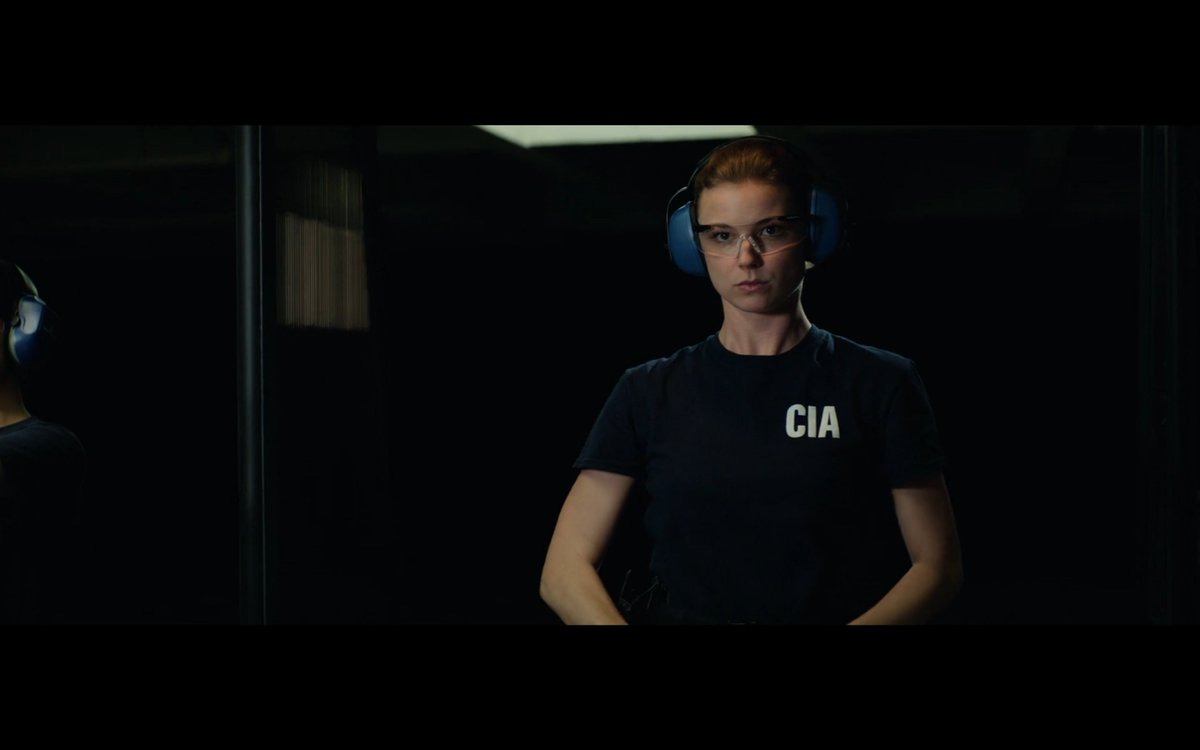
id235414148
What’s the message of this film then? Again we’re left with the idea that public accountability or oversight for super-vigilantes is bad because we need them to protect us from future threats. That’s eerily similar to what The Pentagon says to duck oversight and accountability.
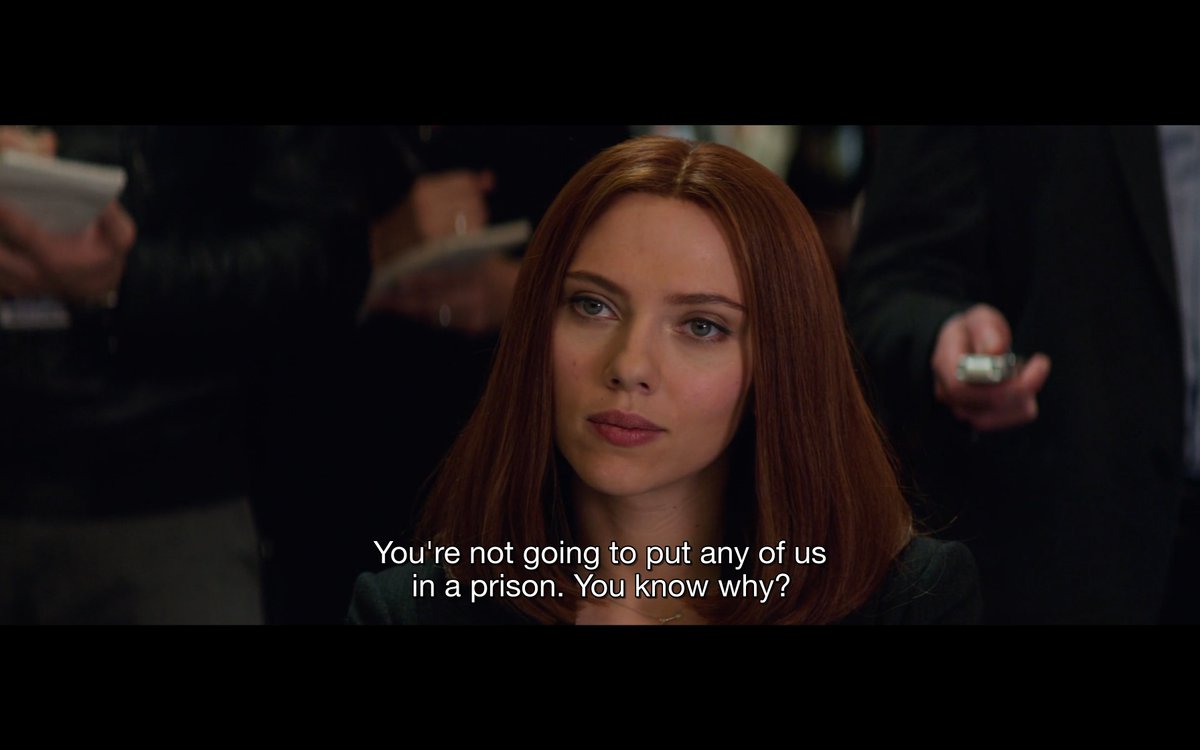
id235414149
Further reading: This essay by the late David Graeber on the problem of superheroes, public accountability, and constituent power is one of the best deconstructions of the genre I’ve read. https://t.co/AY8GwPQQ1a (A longer version also appears in his book “The Utopia of Rules”)
id235414150
I have a handful of other stray notes before we are done with Captain America 2.
id235414151
More gratuitous tracking shots following Black Widow’s butt. It’s ogling and totally unnecessary.
id235414152
Even though this statement just kinda hangs there in the air before Captain America quickly changes the subject, it’s still a nice little moment.
id235414153
At first I was impressed that Sam is shown leading a support meeting for PTSD, even though his work with them is never mentioned again. On re-watch though I notice his advice to the survivors is kinda terrible. It basically amounts to “learn to live with it, it’s your choice.”
id235414154
As expected the MCU continues to glorify firearms (even in movies where the main superhero doesn’t carry one.) The filmmaking here is absolutely in LOVE with guns.


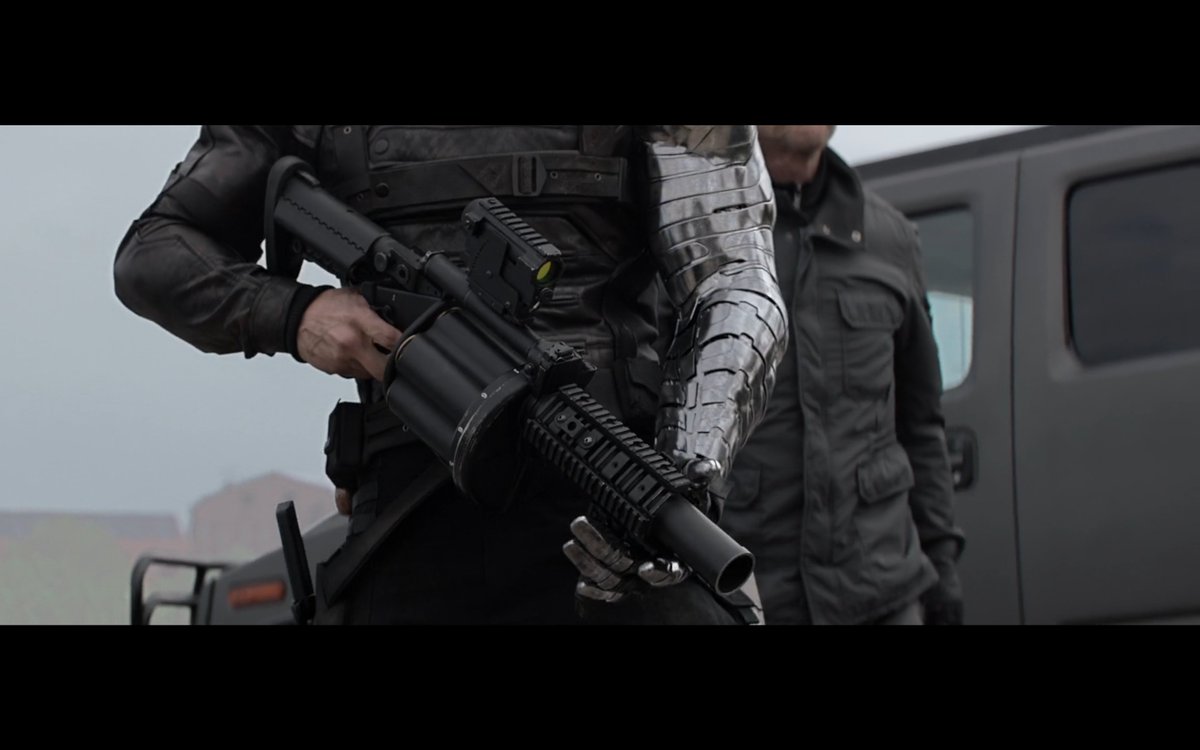
id235414155
I feel like Fury gets off way too easy in this movie, he basically admits to a career of committing atrocities for SHIELD/HYDRA, but it’s okay because he did it to “protect people?” Sounds a lot like the same BS excuse the CIA gives.
id235414156
“I’m not gonna fight you.” I’m sorry, I laughed out loud. You’ve been fighting him for like an hour already! Fighting is the PRIMARY way men (and some women) solve everything in the MCU. Physical fights are how conflicts are resolved, friendships forged, and emotions expressed.
id235414157
This is one of the few scenes where a male Marvel hero “wins” by allowing himself to be hurt, instead of doing the hurting. The other major example is Dr. Strange but we’ll get to him soon. Just keep in mind these conflicts are also solved with violence, it’s just self-inflicted.

id235414158
So Steve and Bucky beat each other to a pulp but the violence leads to a bonding moment between the two men and ultimately paves the way for them to rekindle their friendship. Classic MCU masculinity. sigh
id235414159
I’ll say this for Captain America: The Winter Soldier, there’s a hell of a lot to discuss. But I’m gonna stop here. Next up will be Avengers: Age of Ultron (2015). Chronologically it should probably be Guardians but I think putting Ultron first makes more sense for this thread.
